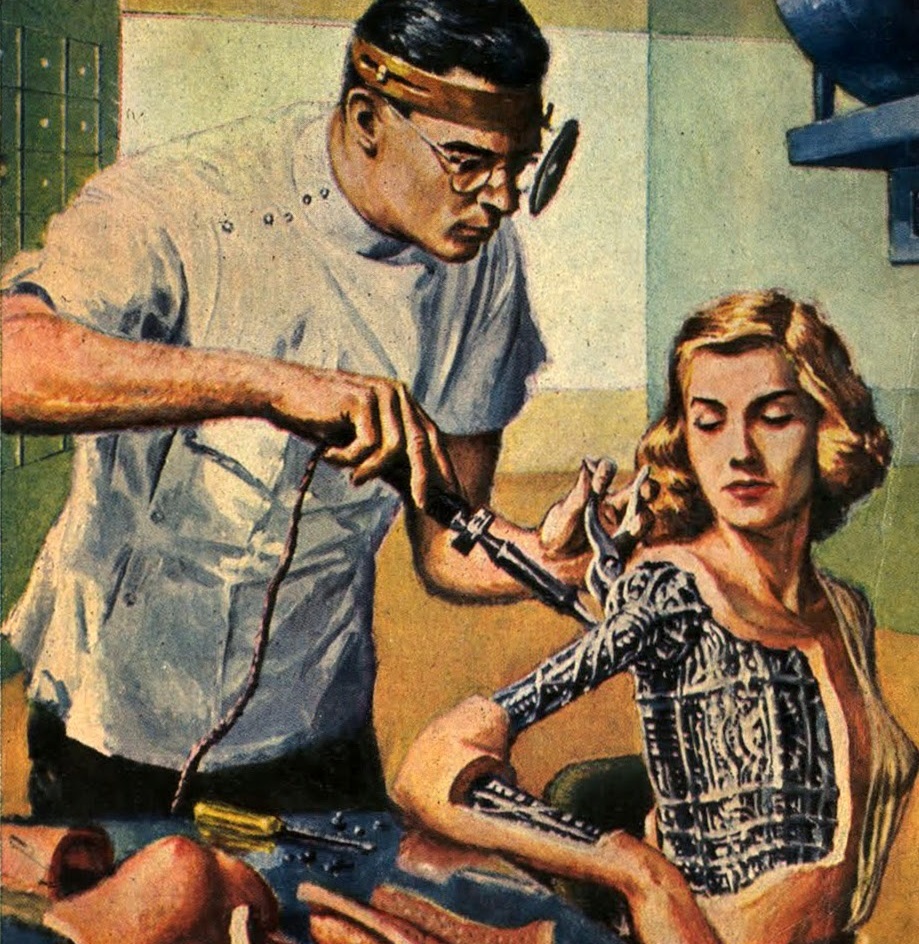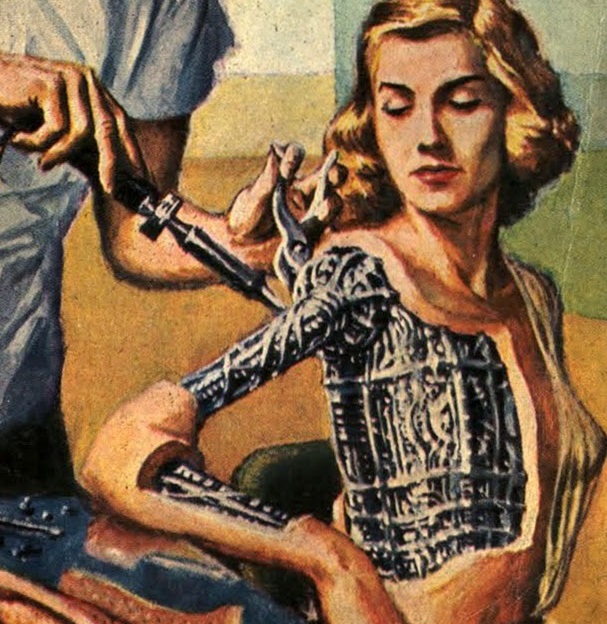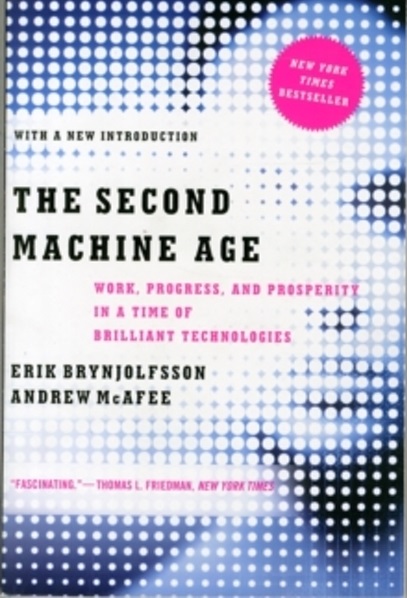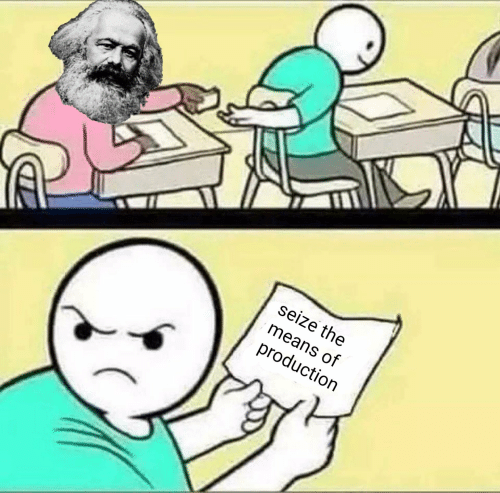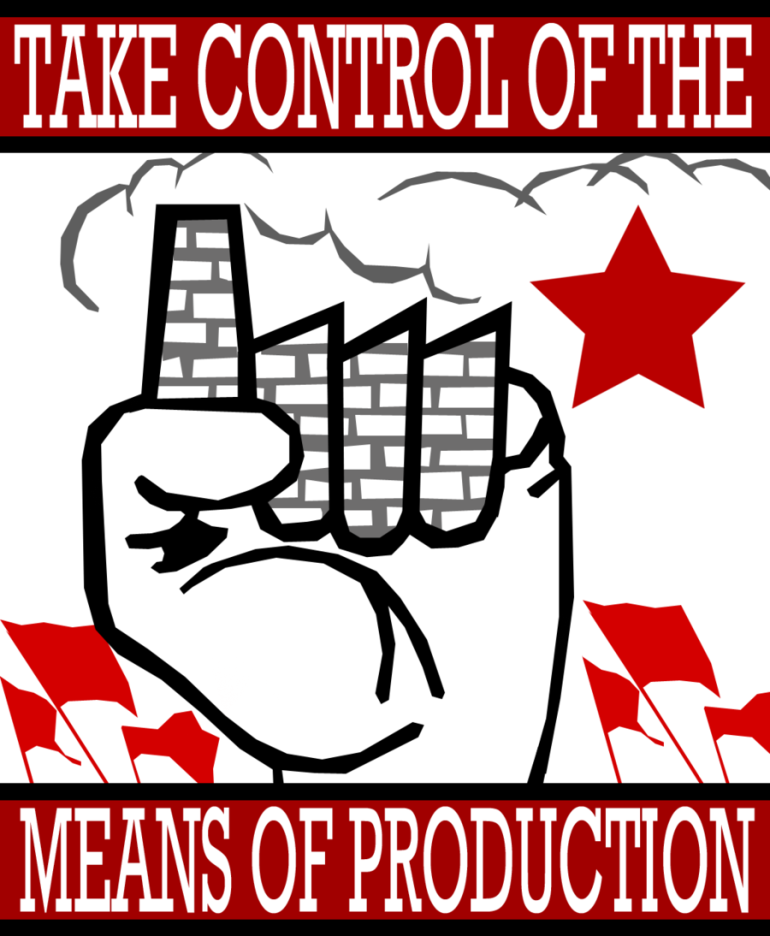|
NEWS FLASH !! -- After 15 years with no updates, Communism.org is back !
The previous page (last updated on November 6, 2004) can be seen
here.
The communism.com domain (of which I was also the custodian) has been hijacked, it appears, by means of identity theft. Please see the notice in the far right hand column (because I will need your help to get it back). For the launch of the new site, I will begin with the essay below, which discusses "Fully Automated Luxury Communism", the disintegration of the trotskyist cargo cults, some recent controversies in the left, the clear and certain path forward, and about 12 thousand years of history. ... Enjoy. Ben Seattle -- October 2019 your information theorist, and proletarian journalist. |
Reply to Louis Proyect regarding organization,
|
| http://communism.org/community/BenSeattle/2019/Proyect-FALC-Roche.htm |
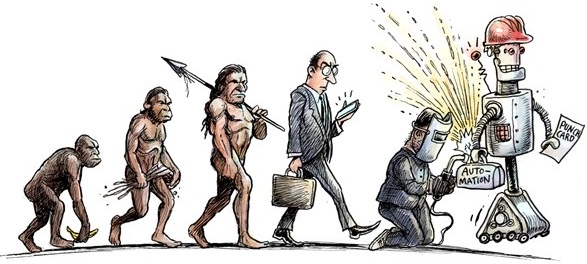

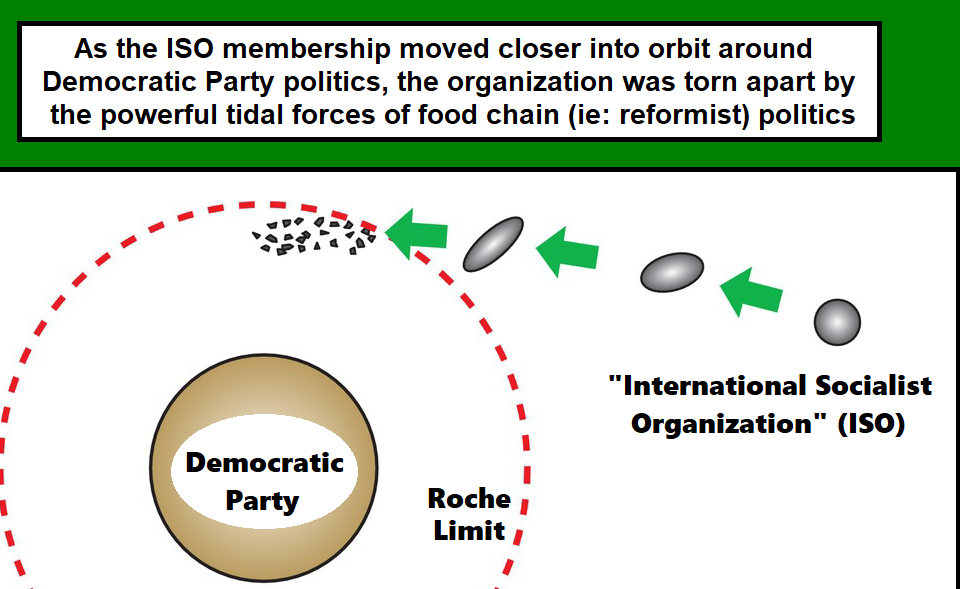
-- Chapter 1 --
|
Trump's election was a shock. Trump's attacks on and scapegoating of the "infestation" and "invasion" of immigrants, his naked incitement of racist attacks of every sort, his support for the brutal blockade and starvation of Yemen and his threats to use nuclear weapons against the peoples of Korea, Iran and Afghanistan have taken place at the same time as the rise of other rabid populist demogogues, including Duterte in the Philippines, Bolsonaro in Brazil, and many others. Meanwhile, China has emerged on the world stage, confident and assertive, to challenge the domination of U.S. imperialism in East Asia. An air and naval war between the U.S. and China is now being openly talked about, and prepared for. What is becoming clear, is that the Unites States, the world, and end-stage capitalism as a whole have entered a period of increasing instability, threats of war, and open reaction as the ruling classes in countries on every continent are sharpening their swords, intensifying their tactics of divide and rule, and preparing to drown in blood the revolts of the working class and oppressed which appear destined to break out in the decades ahead. |



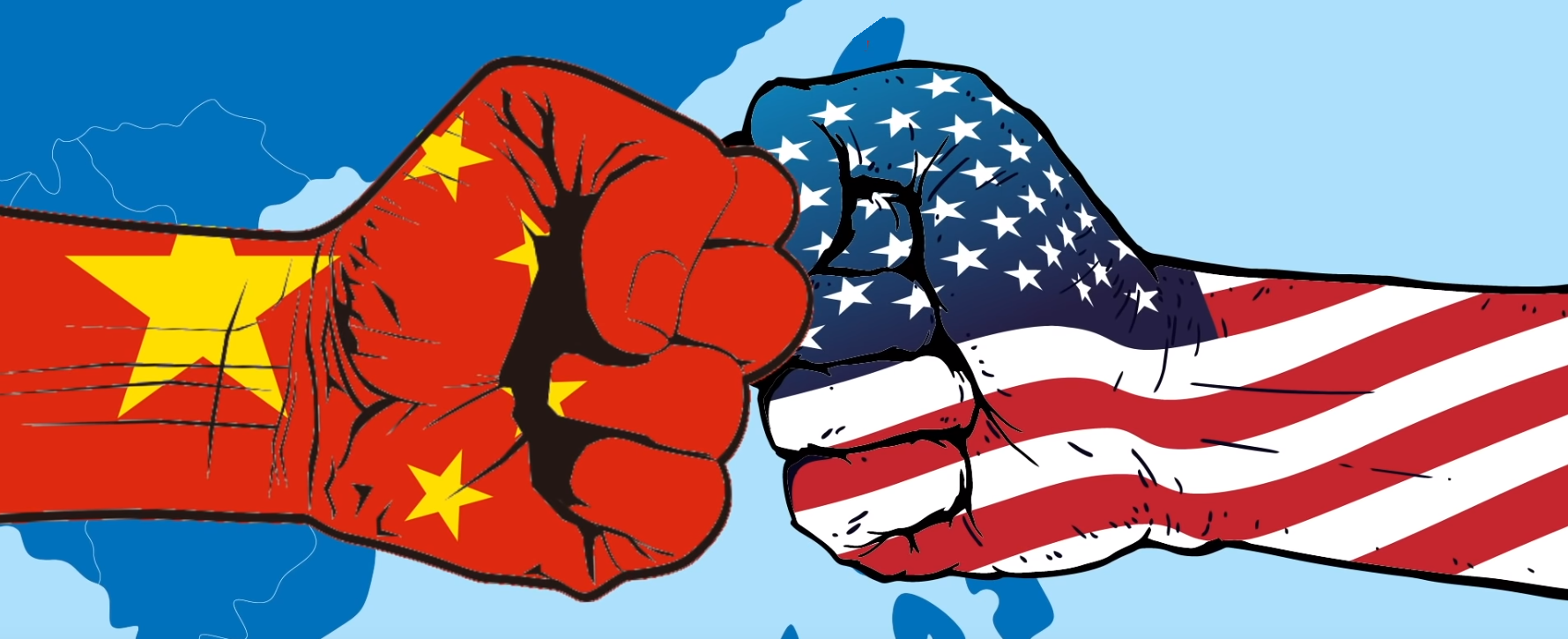
|
||
The 21st century has brought with it many glittering promises, including robots to do much of our work, and technology to give everyone a voice in the public arena. But the fundamental class forces which gave rise to the horrors and pain of the 20th century have not gone away, and the ruling classes of today are prepared to use even more terrible weapons in their desperate convulsions as they attempt to avoid their inevitable extinction. |

 

|
||
There are many political changes which are taking place at this time. Reactionary political currents are being nurtured, but progressive currents, also, are developing. In the United States, for example, there has been increasing discussion of the need to break the monopoly of the two-party system, split off the left wing of the Democratic Party, and create a nominally independent social democratic party. Such a supposedly independent party would in truth amount to little more than politics-as-usual (but on a longer leash) -- but the creation of such a party would both reflect and intensify the contradictions throwing millions of people into political motion, as existing political ideas and institutions give way to new ones. |
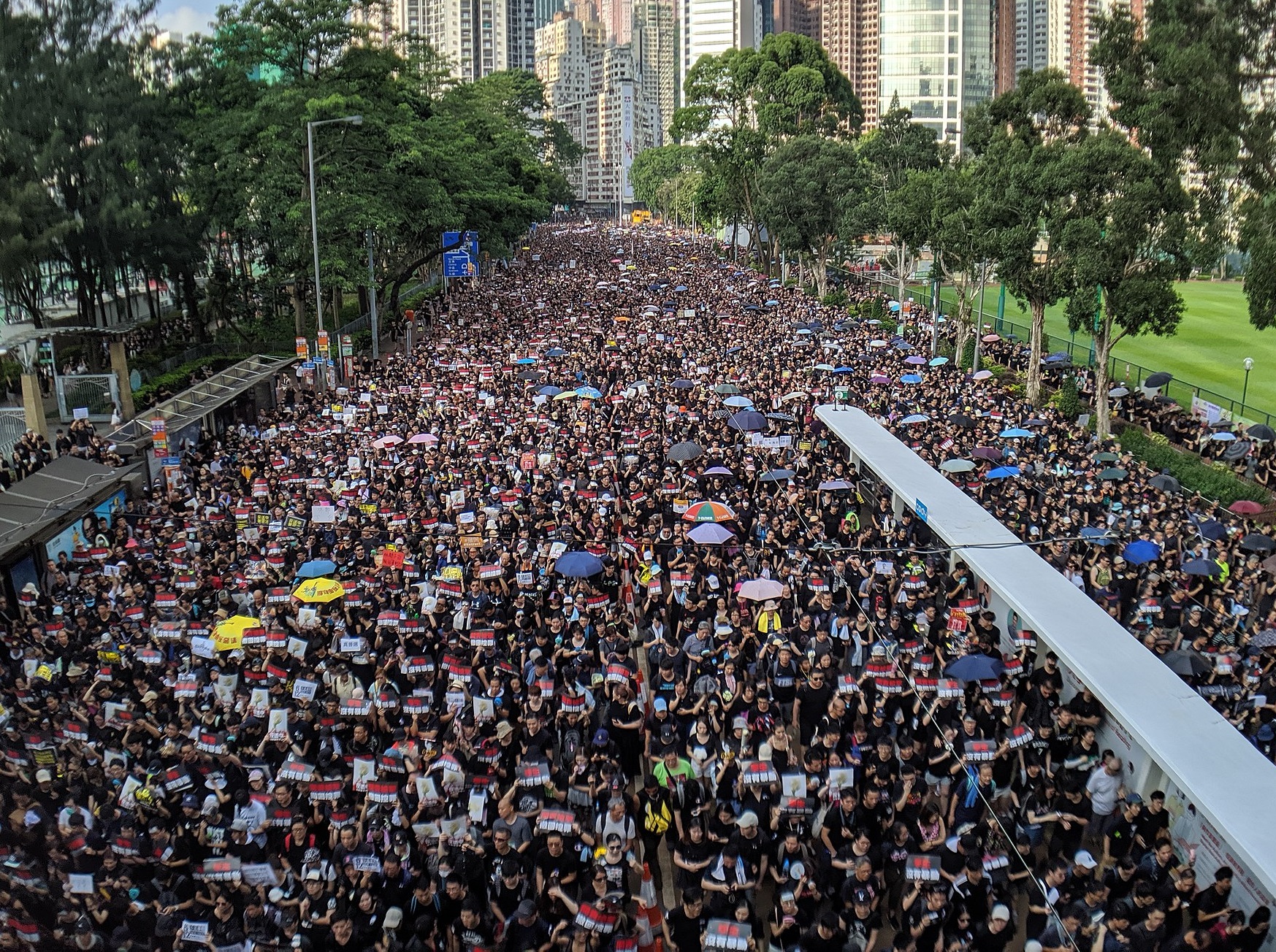
( Click on images to view full-size ) 
|
||
As new forces are thrown into motion, the struggle for guiding ideas will become intense. I was thrown into motion 50 years ago, during the Tet Offensive in Vietnam, in 1968, when I was facing the draft at the same time as it was gradually becoming clear to me that the struggles of the peoples of the world against U.S. imperialism were just struggles, and demanded support from everyone who had the ability to think. |
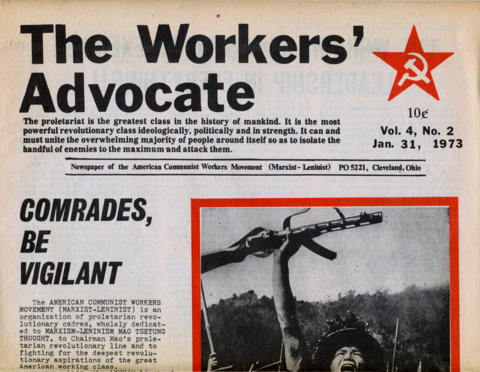
|
||
But thinking is difficult when all existing and available ideas that we use to understand the world fall short in some fundamental way. I remember the turmoil of that time, and the desperate search for ideas that would allow one to make sense of the dramatic events unfolding on a daily basis--and the need, above all--for a clear and certain path forward. All sorts of crazy and wrong ideas were widespread at the time, as one crazy and wrong idea would come up to oppose and replace another. Do we need to build co-ops, try to push the Democratic Party to the left, or build a Maoist cult? These were all examples of popular ideas at the time. |




|
||
Karl Marx observed that, except in periods of acute crisis, the ruling ideas of society will nearly always be the ideas of the ruling class. This is because these ideas are essential to the smooth functioning of society, much like lubrication is required for an engine with moving parts. Millions of people got upset not long ago, for example, when a character in the popular "Games of Thrones" cable series turned into a war criminal and massacred the population of an imaginary city. Meanwhile, in the real world, the blockade of Yemen has pushed 14 million people to the edge of starvation, creating the world's biggest humanitarian crisis, as part of the criminal war which Obama initiated and Trump escalated. But on the popular news sites, the imaginary war crimes against an imaginary city got more than a hundred times as much coverage and attention than the real war crimes against millions of people in Yemen. Some will claim, of course, that this kind of outrageous and unconscionable "news" is simply a reflection of people's ignorance, but such claims reverse cause and effect. The substitution of escapist entertainment for news--is part of the machinery by which capital rules society, and an example of how we are kept ignorant. |
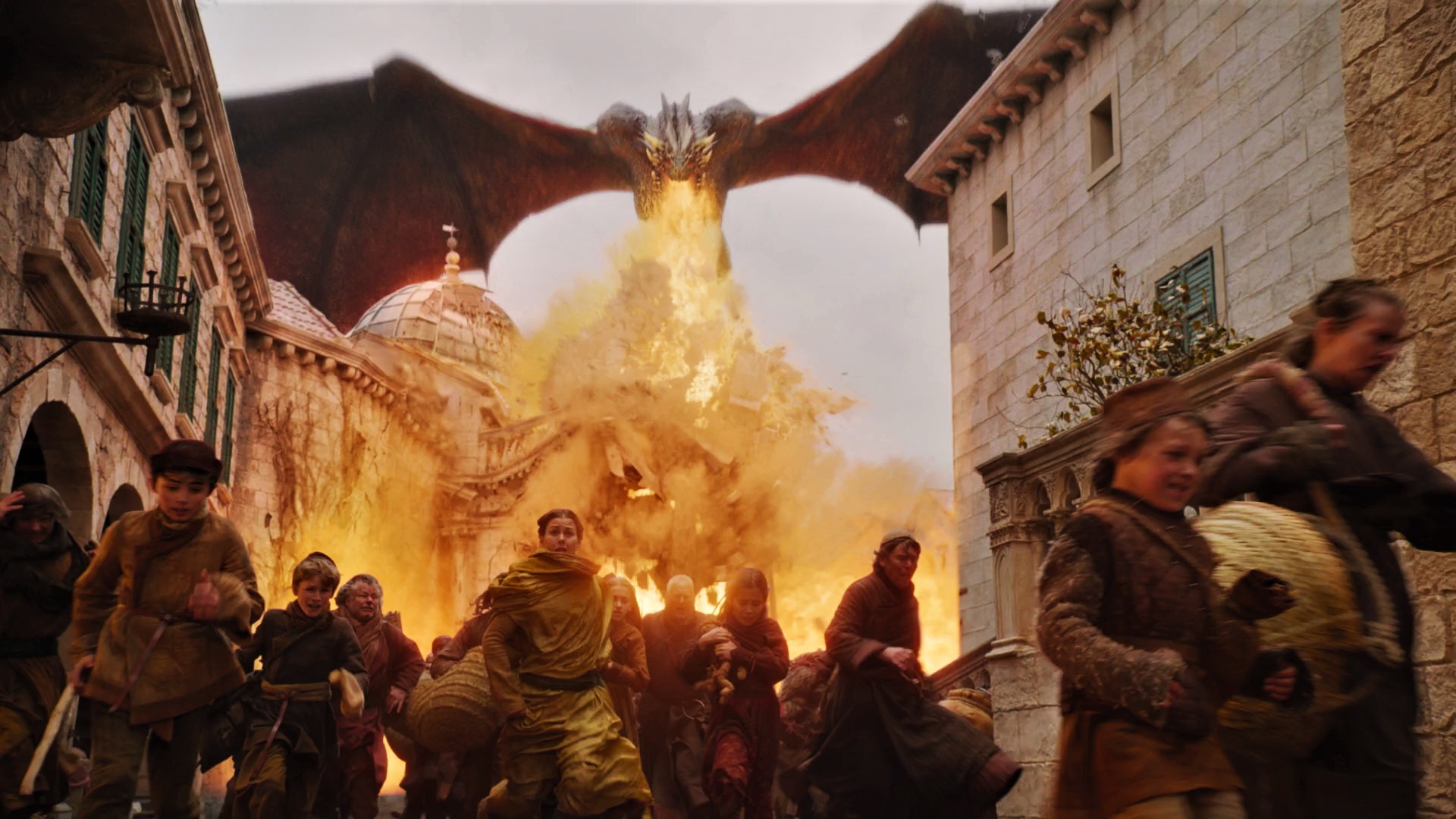 The imaginary war crime committed by a dragon (above)
The imaginary war crime committed by a dragon (above)
got more than 100 times as much media coverage as the real war crimes of US imperialism in Yemen, where 14 million people are being systematically starved. 
|
||
Within activist circles, of course, ideas are taken more seriously, and there is far more effort to sort and sift truth from falsehood. But this only goes so far. If we mix a pound of honey with a pound of shit--we still end up with little more than two pounds of shit. Activist circles include many of the most dedicated, selfless and self-sacrificing people in society--but even the best activist circles remain saturated with wrong ideas of every kind and, in spite of the best efforts of so many, the fundamental answers to the fundamental questions remain elusive. |
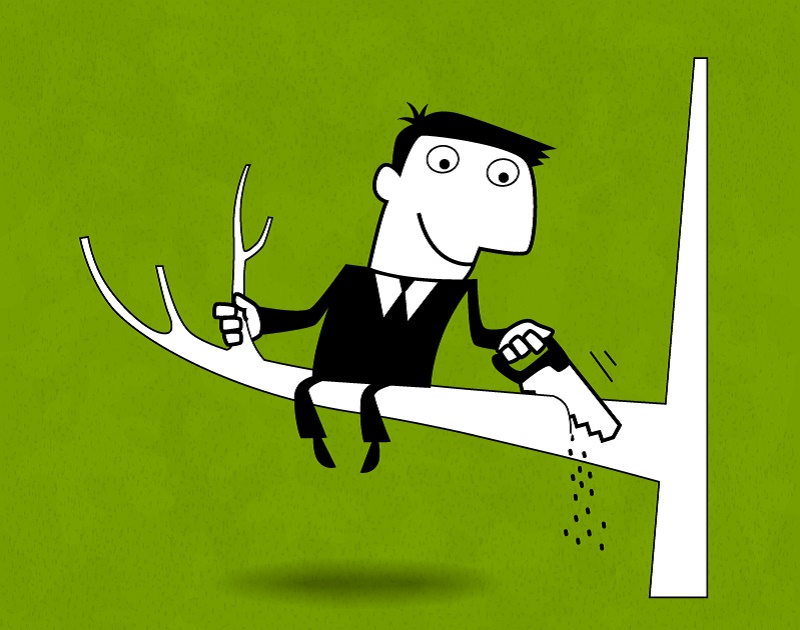
|
||
Both in society as a whole and in activist circles, we lack the ideas that are necessary to understand the world in which we live and struggle. We live in a period in which the clear and certain path forward that we need--seems to be as far beyond our reach as the stars themselves--or entirely non-existent. There is a name for this kind of situation: it is called a "crisis of theory". Today, resolving this crisis of theory is the key to both defending ourselves against the increasingly reactionary attacks we face--and bringing an end to these attacks for once and for all. |
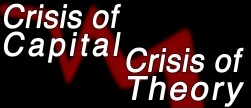 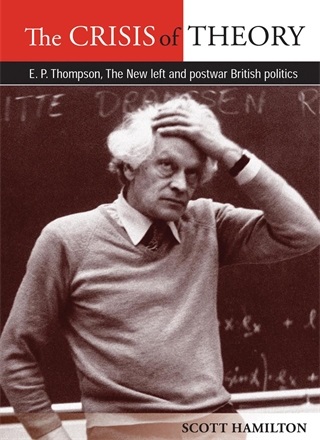
|
||
Because of the crisis of theory, the progressive movements are saturated with confusion instead of clarity, and many activists have given up on the effort to discover, develop and spread, with unyielding integrity, the fundamental ideas that will make it possible to understand where we are, how we got here, and the clear and certain path forward. The effort to develop and spread these clear ideas has simply been abandoned in favor of an exclusive focus on "whatever seems to work" -- in other words, "practical activity" that aims to create visible progress. The exclusive focus on whatever seems to work is understandable in light of the current crisis of theory. But the fact remains: until we have the clear ideas we need, our struggles will be far more easy to manipulate and channel into the usual dead ends. | 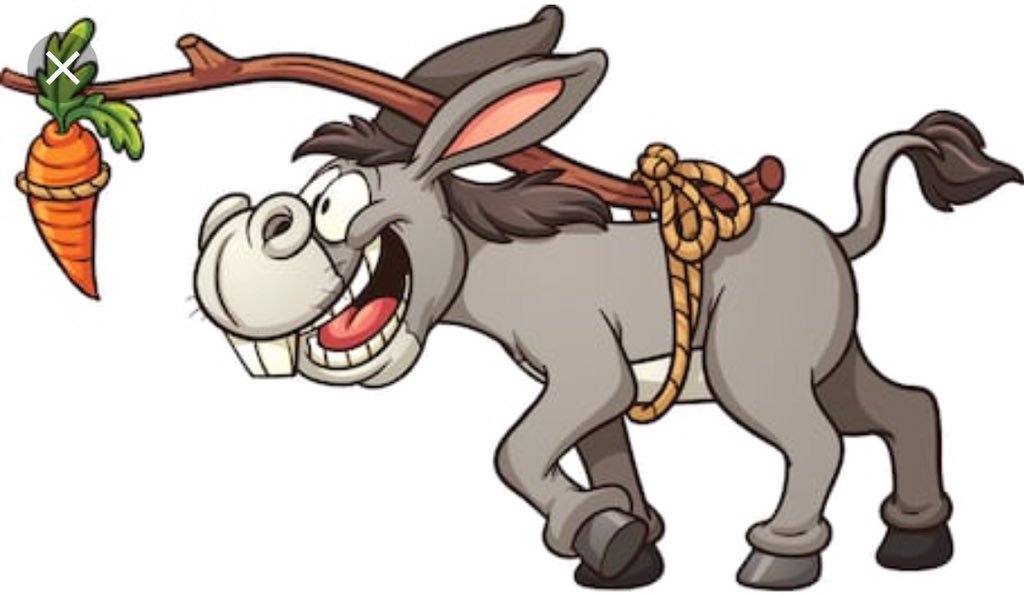
| ||
It may seem obvious that if we lack the clear ideas we need, that we should just go forward with practical activity and see what we can do. Either we will accomplish something valuable--or we will at least learn what does not work. But this ignores the fact that people have been trying this for more than 150 years. In that time, there have been many victories. But there has also been one collapse and betrayal after another. At this time, after more than 150 years of sacrifice and struggle, the working class and oppressed have not been left with a single solid organization that has its feet on the ground and a clear perspective of what needs to be done. |
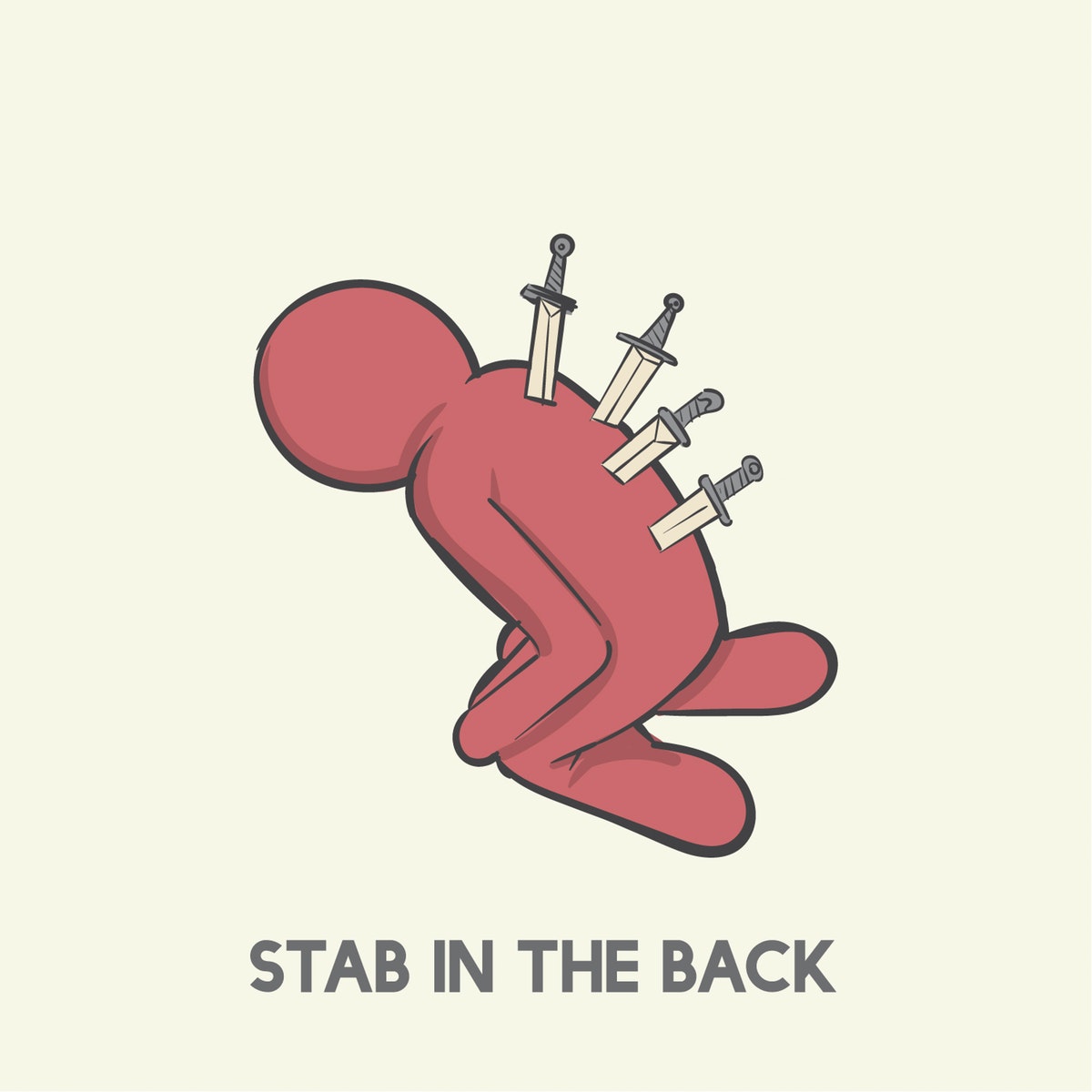
|
||
The exclusive focus on "whatever works" eventually leads to what I call the "Ozymandias trap". Behind this trap is a logic that appears to be based on simple common sense: if no one can agree on what ideas and principles are necessary--then everyone should simply experiment with whatever approach looks promising--and, after some time, those activists (or groups) that are "doing the right thing" will achieve some kind of visible success--and will gradually earn increasing support. In this way, the most useful principles will (supposedly) eventually win out. In this way, activist organizations recruit and are built on the basis of "visible success". If these organizations are achieving useful results--then they must (supposedly) be doing the right thing. As they say: "the proof of the pudding is in the eating". |
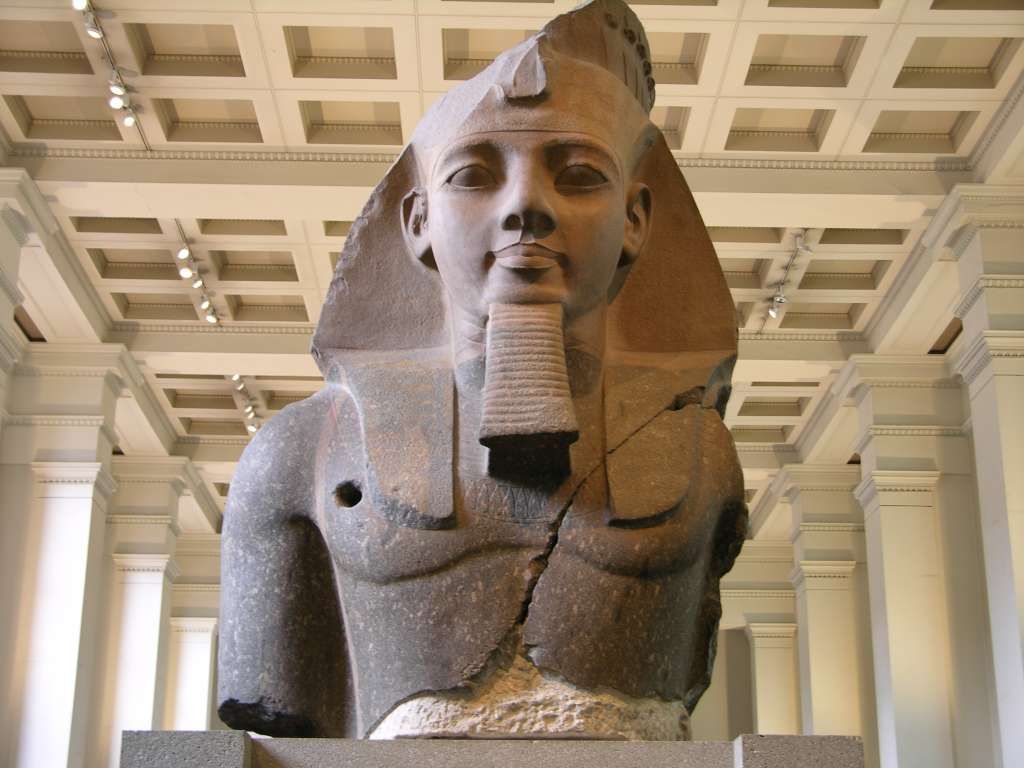 ( Click on images to see full-size )
( Click on images to see full-size )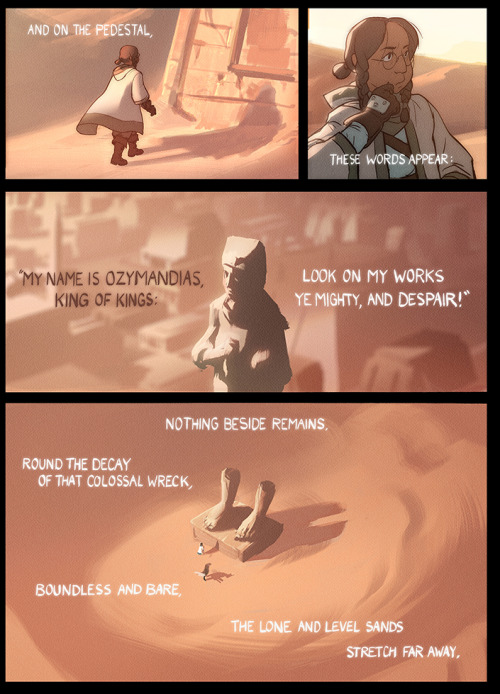
|
||
The problem with this "common sense" approach is that we live in a class-divided society, in which nearly all institutions (including progressive ones) have evolved to become part of a "food chain" in which political support flows up (eventually to the ruling class) in exchange for forms of patronage (ie: publicity, recognition, reputation, respectibility, resources) which flow down. A layer of liberal-labor politicians, trade union bureaucrats, non-profit honchos, religious misleaders, "opinion leaders" and so on have become part of a political ecosystem which serves the rule of capital. Activist organizations that need to recruit on the basis of visible success--find themselves in need of support from these so-called "natural allies" and, in order to get this support, must give up political militancy and any trace of class independence. In simple terms, activist organizations find they must sell out in order to recruit and grow. A good example of food chain politics is the organization called "Socialist Alternative", which organized inspiring mass actions against Trump the day after he was elected. But this was the very same group which channeled their supporters into supporting Bernie Sanders--who, in turn, channeled his supporters into supporting Hillary Clinton--who in turn told her supporters to "give Trump a chance". At the bottom of the food chain is hot air about "socialism". At the top of the food chain is the rule of capital. Food chain politics are sometimes (for historical reasons) called "social democracy" or "reformism". These kinds of politics are confusing to activists--because they do a lot of good in many circumstances--but they are also encouraged and supported by many ruling class institutions because they rob the oppositional movements of militancy and class independence--which means that what is won today (when the movement is conscious and powerful) can and will be taken back tomorrow (when the movement has been liquidated). This is why food chain politics often lead to little more than an endless treadmill. |
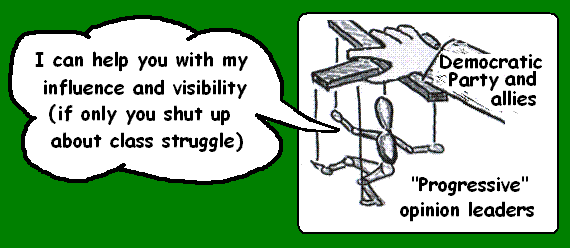 ( Click on images to see full-size )
( Click on images to see full-size )

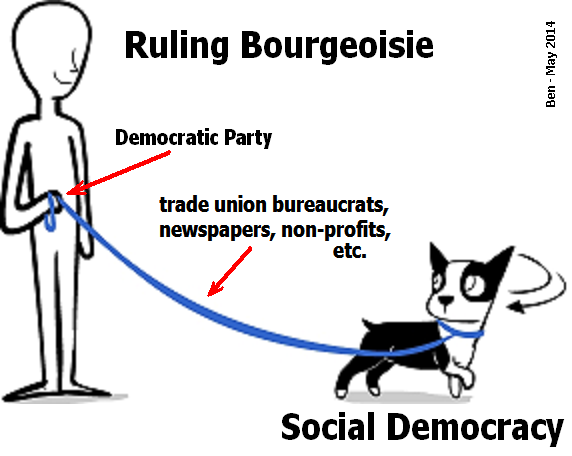
|
||
Activists who reject food chain politics face the other common problem in our movement: the proliferation of what I call the "cargo cults". Organized groups find themselves in a dog-eat-dog competition with one another for the warm, living bodies of activists who are new on the scene and looking for some kind of group to hook up with. These groups are notoriously manipulative and work to keep their supporters isolated in a bubble, where it will be easier to maintain their special belief system (ie: the "glue" that holds their little tribe together). Cargo-cult politics are usually called "sectarianism" and, like food chain politics, are also a dead end. |
 Click to view full-size |
||
The working class and oppressed cannot build the organization they need on a foundation of sand. Without solid and reliable ideas that give us the ability to see things clearly we will remain blind and easy to manipulate by those with experience, skill and treachery. The lack of clear and reliable ideas will eventually lead to increasingly desperate and convulsive actions in the future as things steadily get worse. It is becoming increasingly clear that end-stage capitalism has no solution to the problems of our time other than divide and rule, austerity, racism and war. An important factor that led to the French Revolution of 1789 was the development of ideas that gave people confidence that there was a better way to run society than to place supreme authority in the hands of a king. We are in need, today, of clear ideas that will give millions confidence that there is a better way to run society than to place supreme authority in the hands of capital. |
 Louis XVI -- before the French Revolution -- and after
Louis XVI -- before the French Revolution -- and after 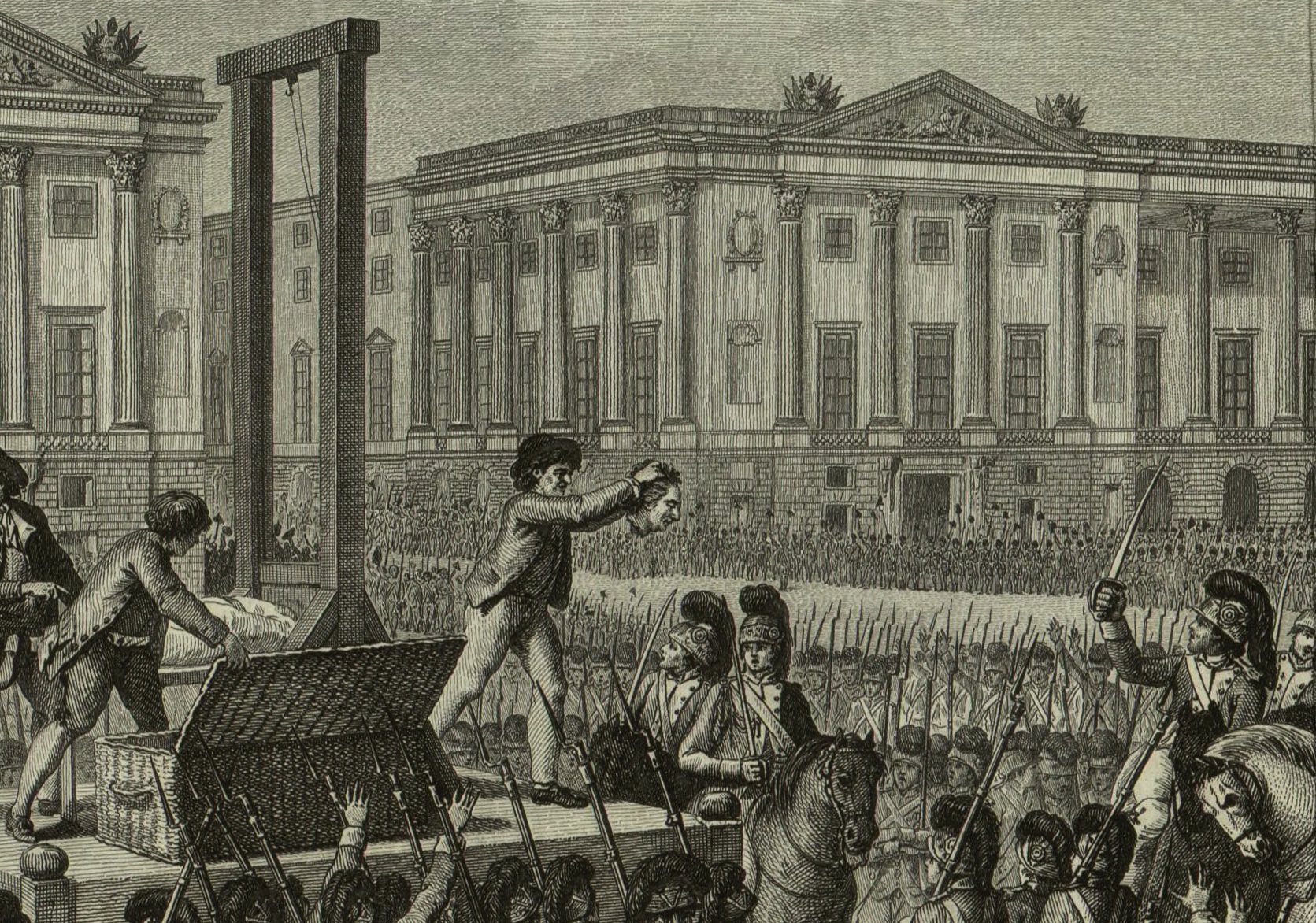
|
||
Capital, of course, is inanimate, but it rules by means of a social class (ie: the ruling one percent, the bourgeoisie) which is dependent on and must serve capital as meat puppets--in exchange for its status and privilege in relation to the rest of society. Capital, like cancer, knows only that it must increase, even if this requires keeping all of humanity in a state of war, racism, poverty, alienation and ignorance. Under the rule of capital, humans are reduced to objects, lied to and manipulated like objects, and conditioned to relate to one another as objects. And we are conditioned to think of the rule of capital as the natural and eternal order of things, to the point where, as the polar icecaps melt, it remains easier to imagine the end of civilization than to imagine the end of the rule of capital. This is what must must change |
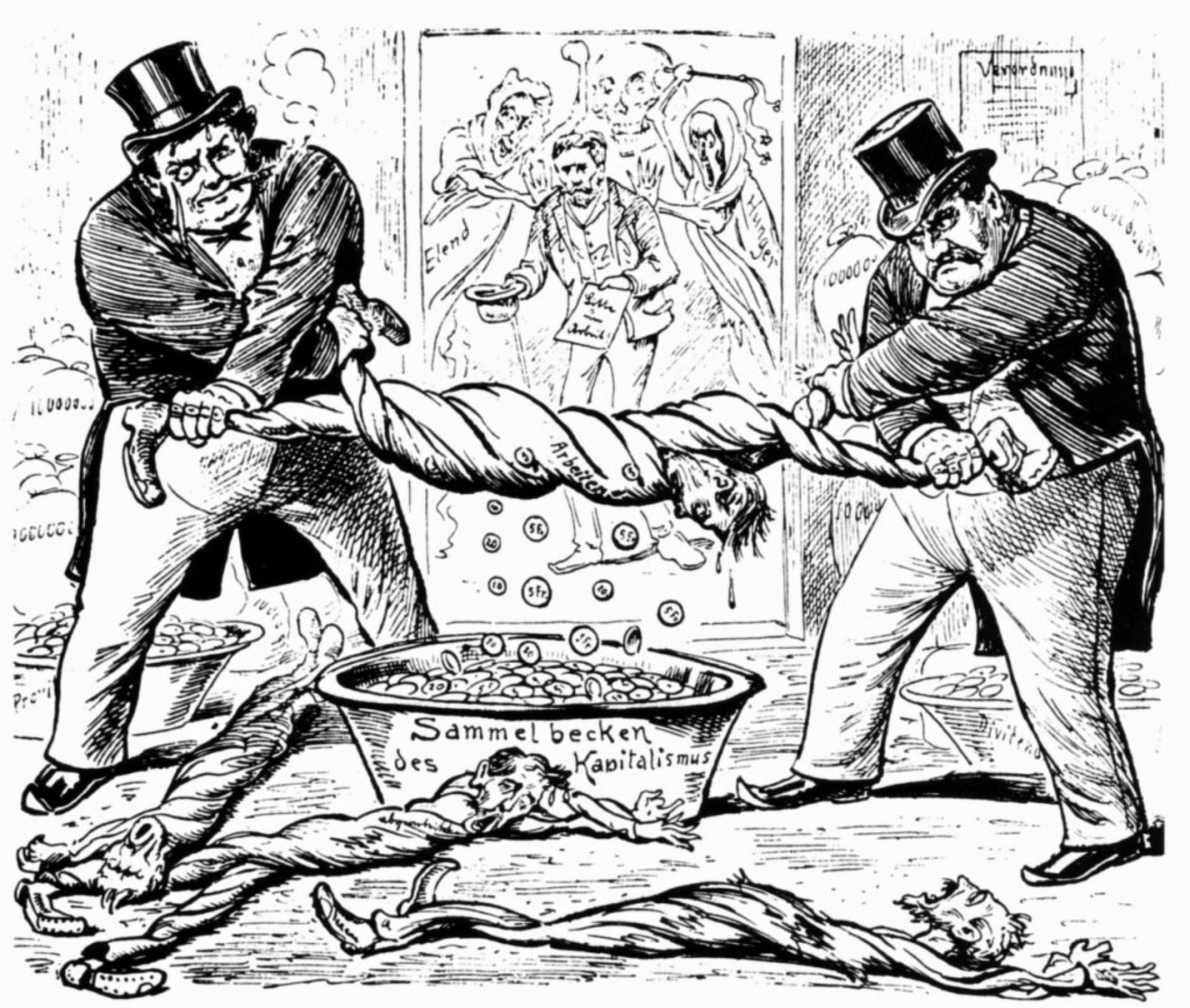
|
||
The following twin principles are the starting point in sorting out the path forward: (1) The source of war, racism, poverty, alienation, and every other misery in society is the rule of capital. (2) The working class must organize itself, both to defend its immediate material interests, and to overthrow the rule of capital and create a world of peace, abundance and genuine community for everyone. |
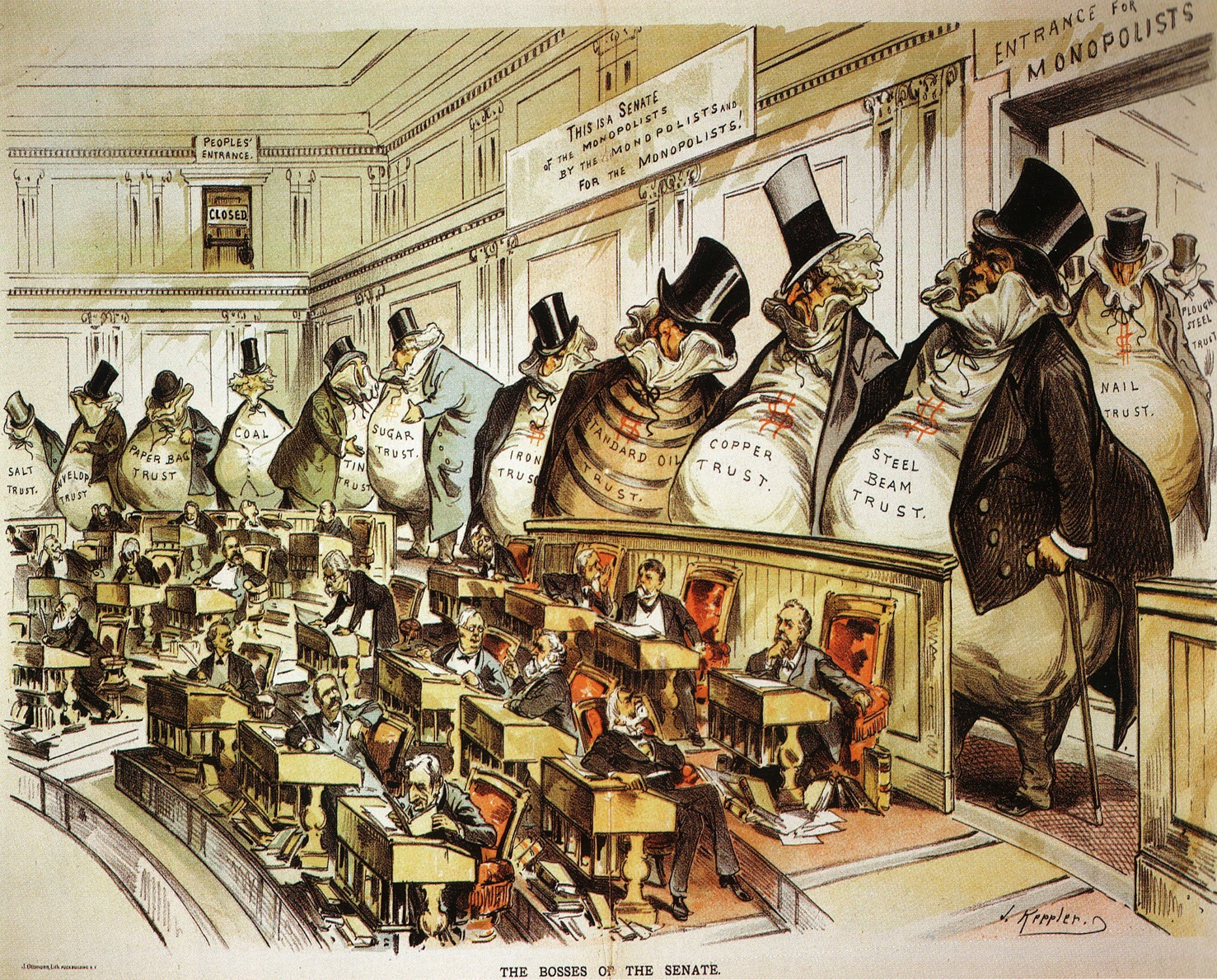 (Click to view full size)
(Click to view full size)
|
||
It was Karl Marx who first recognized, in 1848, that it was inevitable that the working class would overthrow the rule of capital. In the 20th century, the Soviet and Chinese revolutions were carried out in the name of Marx. These revolutions did not liberate the working class or create "scientific socialism" (as they claimed). Rather these revolutions took place in semi-feudal countries and resulted in an economic and political system that might be best described as a rat-bastard combination of "state capitalism" and "scientific feudalism". In many ways the outcome of both these revolutions represented an improvement over what existed before, but these revolutions also resulted in repressive police states and terrible famines that killed millions of people (an estimated 7 million in Ukraine in the 1930's, and 20 to 40 million in China in 1959-1961). These revolutions did not lead to the most essential requirement of working class rule--that the working class has the fundamental democratic rights of speech and organization necessary to run society. Instead of democratic rights, working class rule, or "socialism" -- these revolutions prostituted the name and ideas of Marx in the service of a state religion and the rule of a new exploiting class. |
 (Above) The propaganda showed abundance, but the reality, for many, was famine. (Below) A new ruling class emerged which suppressed the organization of independent political life
|
||
It is the legacy of these revolutions that is largely responsible for the crisis of theory we are facing today, although we should also recognize the role of the many (supposedly) "marxist" groups today which have become cults or surrendered to "food chain" politics. Today, most of what we are told about marxism is nonsense, whether this comes from right-wingers or self-declared "marxists". And resolving the crisis of theory will require that we, so to speak, rescue the ideas of Marx from the "marxists" and come to terms, fearlessly and honestly, with what happened in the 20th century. |
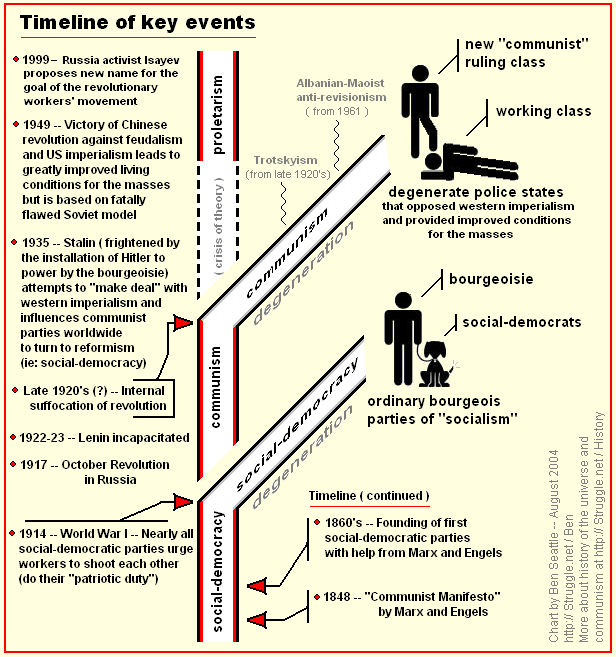
|
||
Today we are surrounded by and bombarded with manipulative lies, distortions, ignorance and confusion on all sides. Of course, with the internet at hand, we can reach out to others, and oppose the lies, manipulation, ignorance and confusion as best we can, but it often feels like a losing battle. There is a reason for this. The algorithms (ie: software robots) that determine what posts we see, and determine who sees our posts--are designed to manipulate us, to keep us watching ads and feeling like we can only be happy if we buy shit that we can't afford or don't really need. I have been studying the evolution of internet since before it was the internet, from the time that it was called the "arpanet" and connected a total of 6 computers, each located at a different university campus. The current situation (ie: where what posts we see, and who can see what we post -- are controlled by software robots in ways that are kept secret from us and designed to manipulate us) will not last. It is only a matter of time before we see the development of a universal, democratic and independent social media platform that is beyond the control of any corporation, government, political party or self-interested organization or group of individuals. |
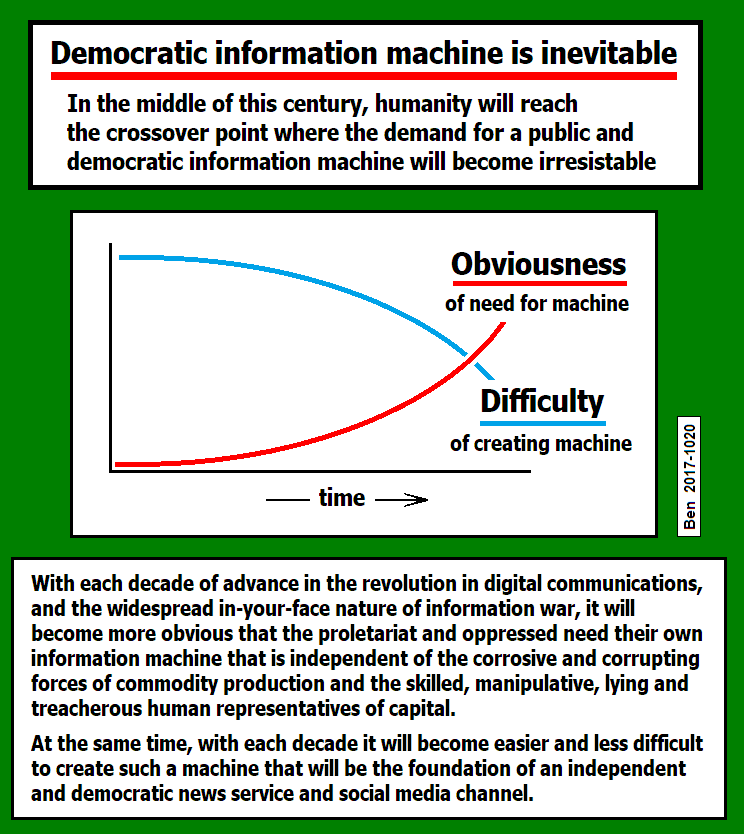
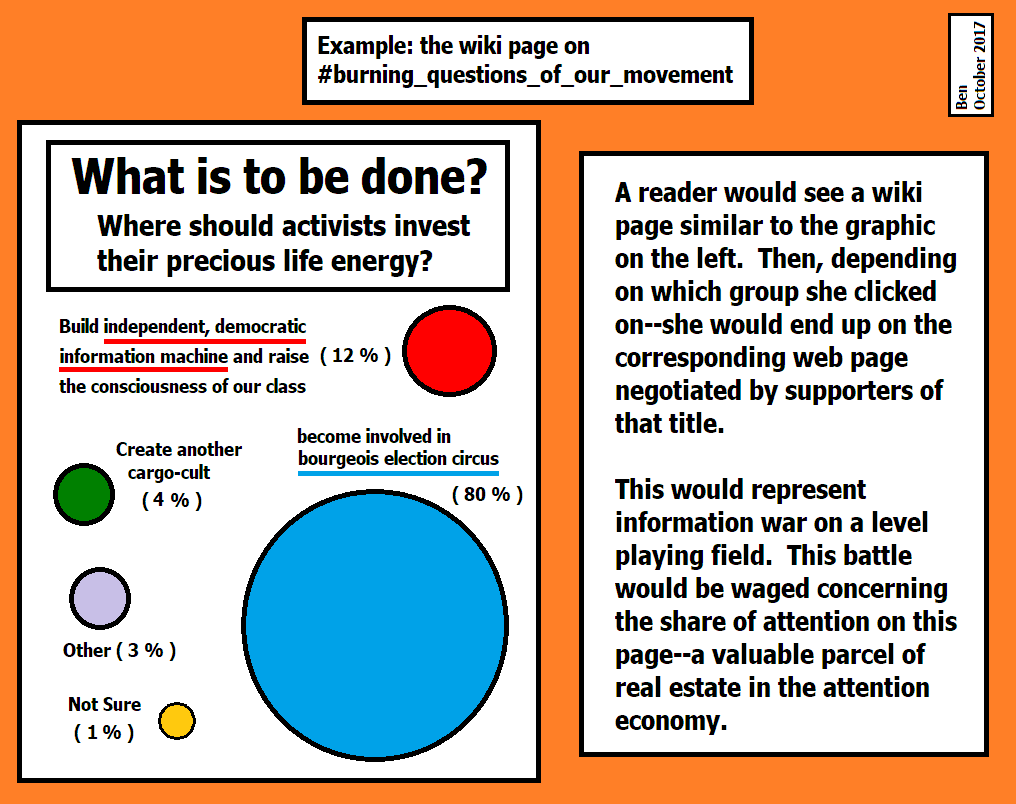
|
||
Such a democratic platform will not use secret algorithms to manipulate us--because the algorithms (and everything else about this platform) will be public and anyone will be able to change these algorithms as they see fit. Instead of our attention being controlled by software robots that serve the profits of huge corporations--we will make use of democratic software robots that serve our will--and serve the cause of the liberation of the working class and all humankind. We need to be thinking about this. We need to be talking about this. We need to sort out how we can make this happen and how this will work--and how such a thing will need to work -- to actually be democratic, to actually be independent, and to actually be beyond the control of corporations, governments or any force which needs to manipulate us or fuck with us in any way. The sooner this happens the better. We must recognize that humanity has entered a century of information war. It is the creation and growth of a universal and democratic platform -- independent of the direct or indirect control of capital and its flunkies -- that will lead to the principled collaboration between experienced activists (and the clarity that will flow from this) that will be necessary for the emergence of the class independent organizations that the working class needs. I have written about this at length in various places, including Spartacus Ex Machina (November 2017). |
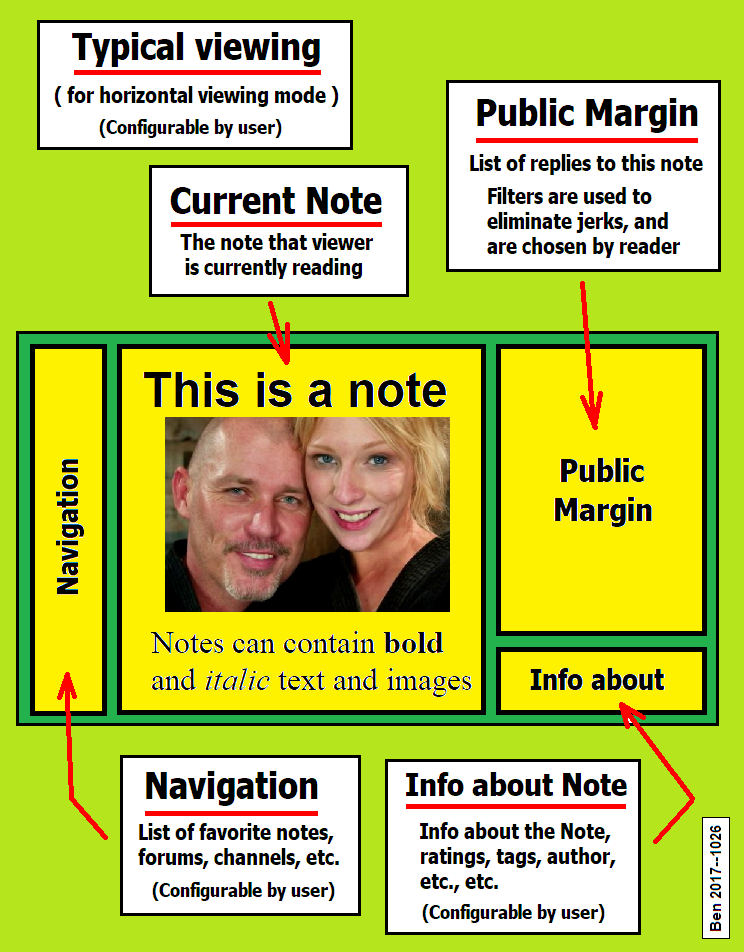 ( Click images to view full size ) 
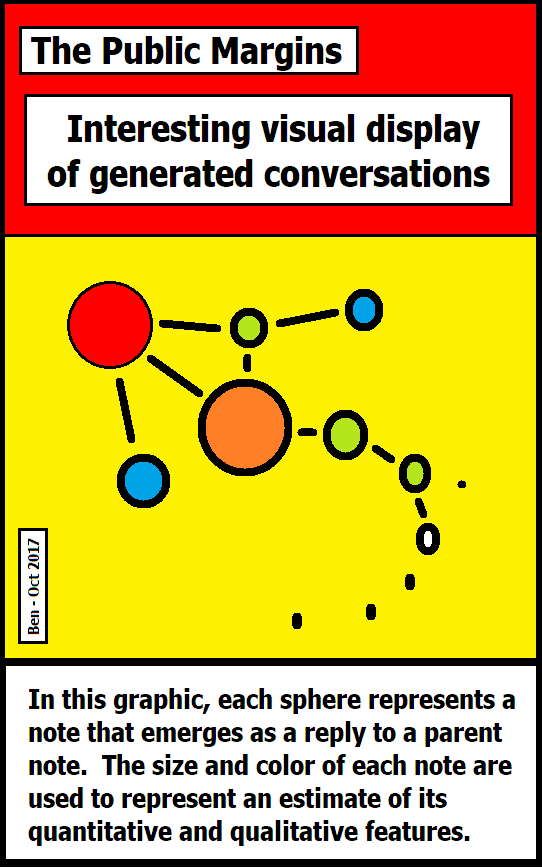

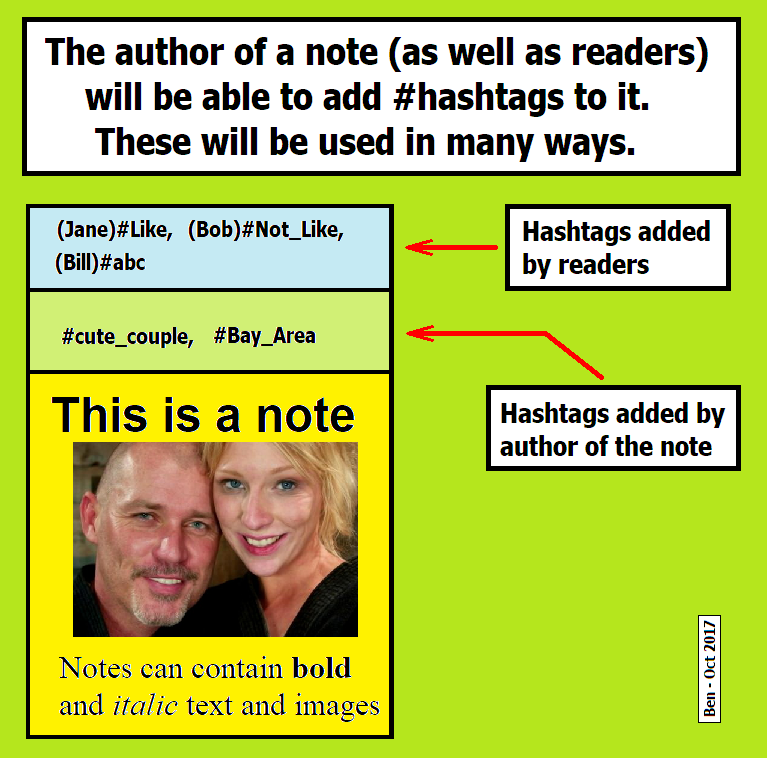
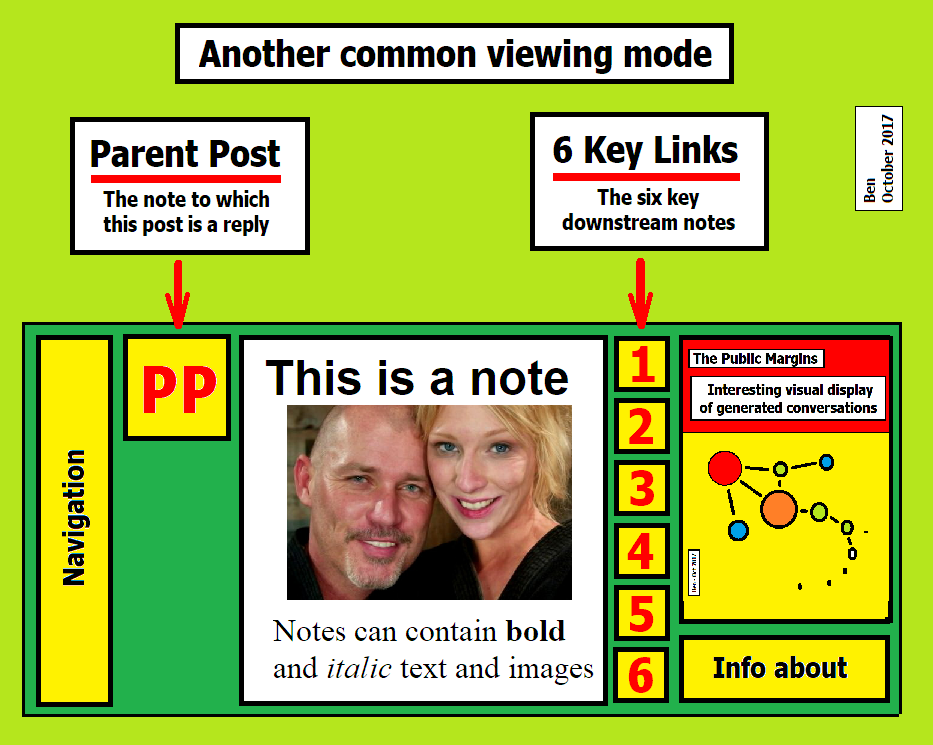
|
||
We can also recognize the need--today--to engage with other activists in the context of an unrelenting focus on the most important question of our time--how the working class and oppressed will be able to create the independent and democratic organization they need. At this time activists can make use of scattered forums on wordpress, reddit, facebook, and a few other platforms, but there is no generally recognized democratic forum in which activists can discuss and debate the most important questions. Nor is there even significant recognition of the need for such a forum--nor agreement on (or even discussion of) what would be required for a forum to be "democratic". For example, if any person can post anything they want, at any time, the forum would be flooded by idiots and have a low signal-to-noise ratio--driving away anyone who was serious. So rules of some kind and moderation are needed. But rules and moderation require some person (or group) to make and enforce them--and this group eventually abuses its authority and silences critics. This is a problem that has never been solved. |
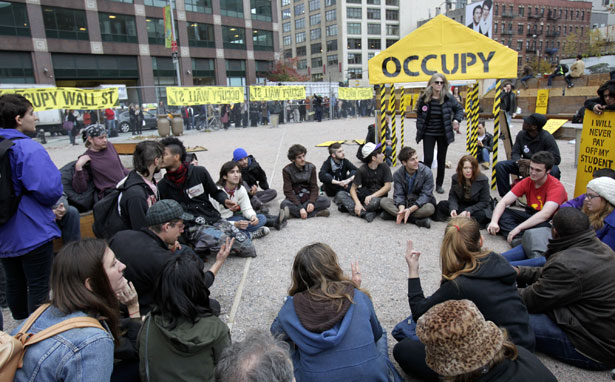



|
||
We need to break free of the Ozymandias trap and, for at least part of our time, engage with the important ideas -- independent of the need to "do something now" that will build our reputation and impress or recruit people to our organizations or projects. Getting rid of the rule of capital, and creating a world of peace, abundance and genuine community for all will require the coordinated mass actions of many millions of people in a common struggle. Many on the left wrongly believe (if they think about this at all) that such a common struggle will somehow magically, or naturally or spontaneously grow out of the merger of the many struggles for partial demands. But that is not how class-divided society functions. Rather, the many struggles for partial demands all tend to spontaneously fall under the control of the layer of (so-called) "natural allies" who are experienced at liquidating any trace of militancy or class independence. Nothing fundamental is going to change in the absence of what we need: a clear guiding vision of where we need to go and how we will get there. |
 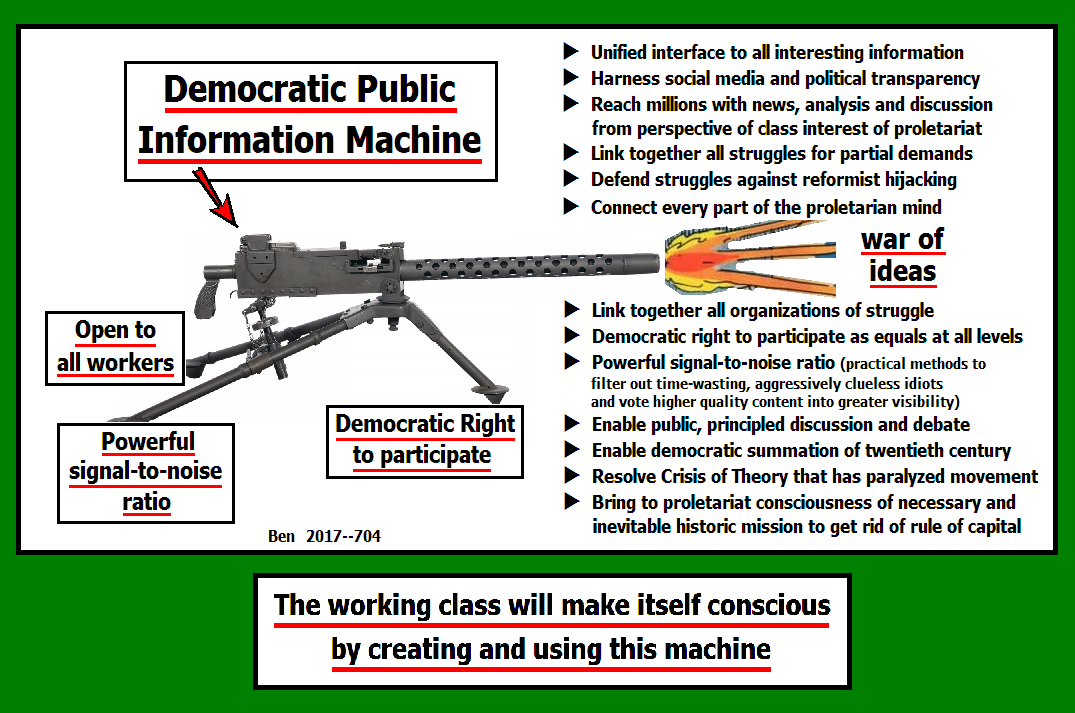 ( Click to see full-size ) |
||
Under the conditions of our current crisis of theory, when the left is saturated by so many garbage ideas, a philistine cynicism can easily develop, which holds that the words and ideas that we use and promote do not matter beyond the here and now -- because they are "not material" -- and the only thing that counts is our deeds and the "facts on the ground" we create. It is true that ideas, themselves, are not material. But, when correct ideas are grasped by the masses, they can become the most powerful material force in the world. There are times in history when the role of ideas becomes decisive--because these ideas correspond to the material interests of an entire social class and are in alignment with what needs to be done. At such times, certain ideas are worth fighting for, and worth dying for. They are certainly worth studying. This is one of those times. |
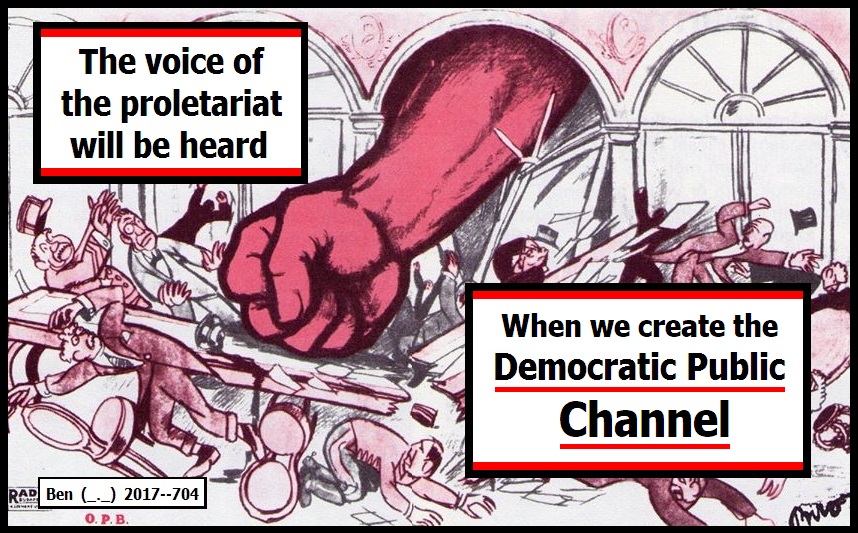
|
-- Chapter 2 --
|
This essay was inspired by a number of recent posts by Louis Proyect. An activist for 50 years, Proyect (who blogs as the unrepentant marxist) has an informed opinion about many controversies within the left. He is also somewhat of a personality, and events in his life were illustrated in a collaboration with celebrated cartoonist Harvey Pekar, known for his stories about the extraordinary lives of ordinary people. Proyect's writing is concise, informative and entertaining, and rather than hide his bias or emotions--they are sometimes featured front and center. I have had my own run-ins with Proyect, as have many, and have found him to be completely wrong on many fundamental questions. But I have also learned a lot from him on an entire range of vital topics, and his consistent work has lifted the fog on a number of essential questions. In particular, Proyect has created clarity for me and for thousands of activists regarding the civil war in Syria, in conditions where most of what is known as "the left" has, unfortunately, fallen into the bankrupt position of unthinking support for the butcher Assad, who can best be understood as a modern version of the fascist Franco, who was backed by Hitler during the Spanish civil war in the 1930's. | 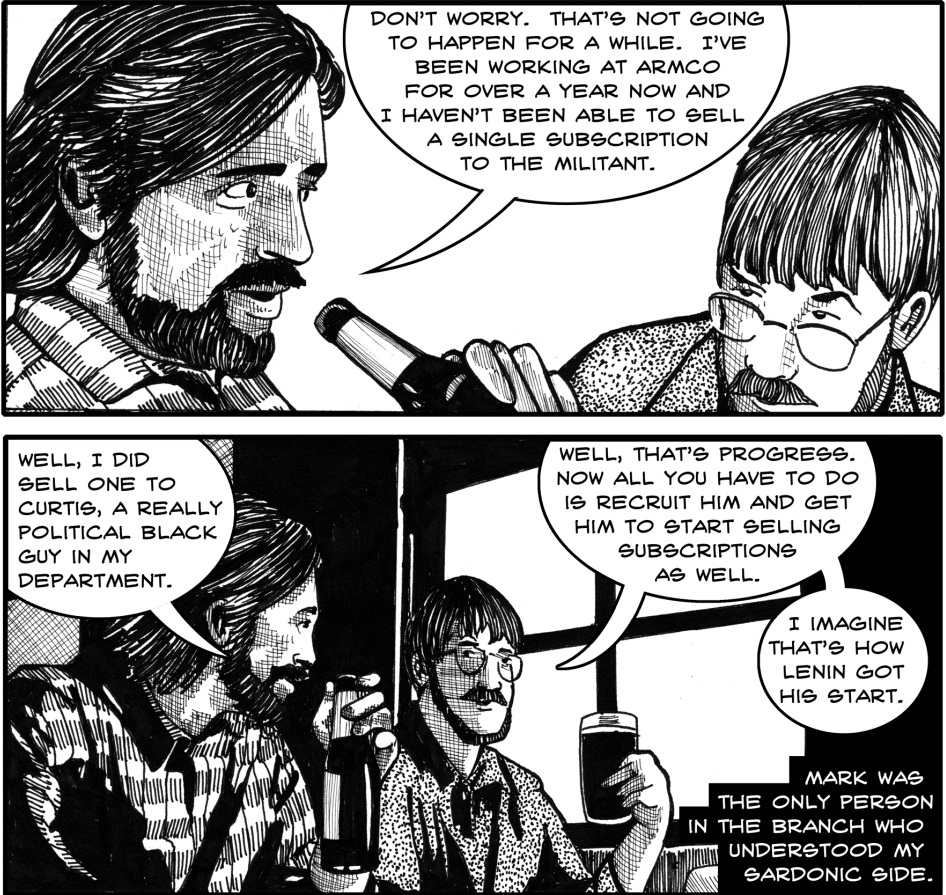
Some of Proyect's better articles are tagged with DSA and/or parliamentary cretinism. 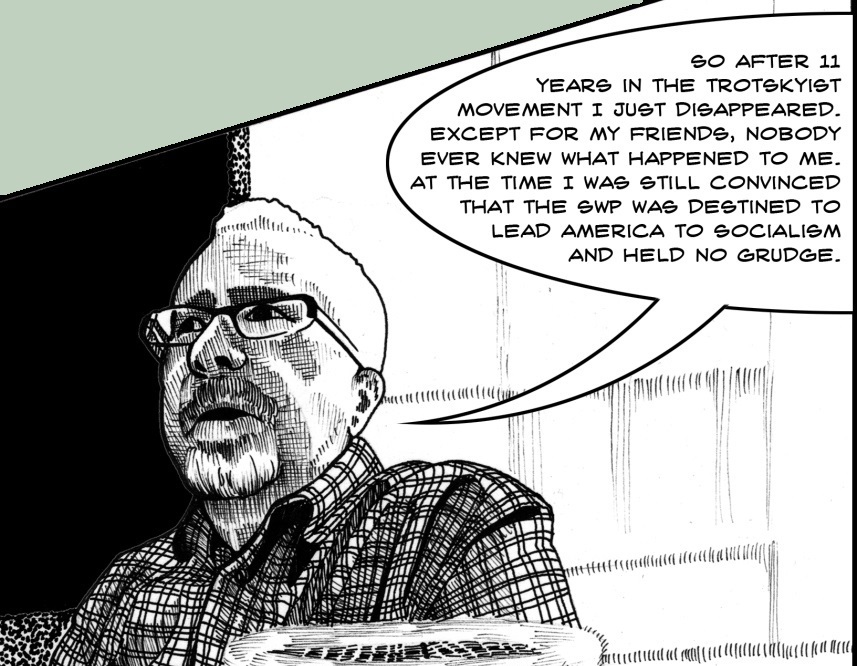
| ||
On June 11 of this year, the New York Times published an op-ed by Aaron Bastani, the media spokeman for the British Labor Party leader Jeremy Corbyn. Bastani's article was titled: "We need fully automated luxury communism" and, naturally, this idea (popularly abbreviated as FALC) caught quite a bit of attention--from The Atlantic magazine to the British Guardian to Counterpunch. 1. Doom and gloom --
2. Refusing to be gloomy --
3. Bastani is correct --
| 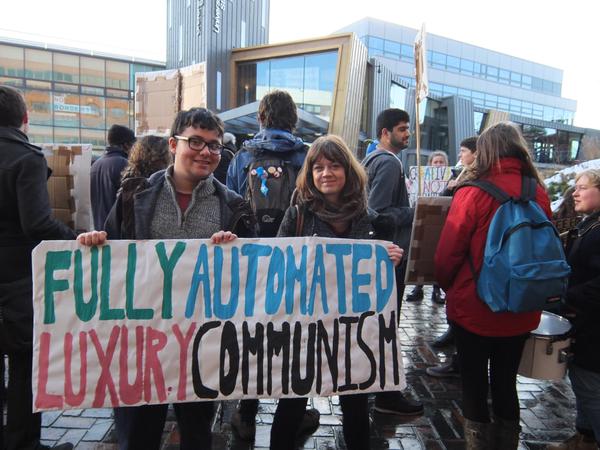
Links: ("local cache" = copy liberated from paywall) (NYTimes, Bastani, June 11, 2019) (local cache) A new book proposes we let robots do all the work (Atlantic, Annie Lowrey, June 2019) (local cache) (Counterpunch, July 1019, Dan Corjescu) (Brian Merchant, May 2015, Guardian) Supporters believe fully automated luxury communism is an opportunity to realise a post-work society, where machines do the heavy lifting and employment as we know it is a thing of the past (Paul Mason, 2015, Guardian) (local cache) (1858, from The Grundrisse, pp. 690-712) | ||
The weakness in Bastani's ideas is that he has little idea of how any of this will actually come about. In other words, Bastini cannot answer these 2 questions: (1) How will the working class get rid of the rule of capital? And how will the working class create the independent organization it will need to organize the struggle for the overthrow of the rule of capital? (2) How will the working class organize an economy that, step-by-step, replaces commodity production (ie: the creation of goods and services for the purpose of sale or exchange) with a system of production for direct distribution and use? | |||
Bastani himself, as the media spokesman for Jeremy Corbyn, is a reformist social democrat. This is what I have described earlier as food chain politics. This kind of politics has the aim of gradually reforming away the worst abuses of life under capitalism--but historical experience makes clear that these kinds of reformist trends are only "independent" of bourgeois control--until they reach the end of their bourgeois leash. In other words--reformists like Corbyn are limited in what they can do because they need to be acceptable to capital. Reformist social democrats, in general, are unable to see beyond the restrictions of the bourgeois electoral system with all of its limitations--including the need for "allies", favorable media coverage, resources and "respectibility" in the eyes of the institutions in the bourgeois political ecosystem. | |||
The ideas of FALC include quite a lot of speculation about such things as asteroid mining, synthetic meat, genetic engineering, renewable energy, and so on. And this is a big part of the reason they have captured attention. This kind of speculation serves to illustrate some of the potential of a world of abundance for everyone, but is peripheral to the core idea of FALC - which is that the enormous and growing productive potential of modern technology has the ability to meet human needs--once we get rid of the rule of capital. | |||
But in spite of the total disconnect between the idea of "Fully Automated Luxury Communism" and his status as a reformist social democrat, it is useful that Bastani has drawn attention to the idea of a world that is not ruled by capital, and in which the productive potential of science and technology fully serves human needs. This stands in stark contrast to the "can't see past the end of their nose" horizon presented by most of the supposedly hard-core "marxist" groupings which are based on food chains and cargo-cults. One might think that groups on the hard left would recognize and welcome a reasonable attempt at a modern restatement of the ideas of Karl Marx. But the simple truth is that the ideas of Karl Marx are quite often unwelcome within large swaths of the left--because these ideas represent a threat to the established thinking and practice that has become the foundation for the existence of many of these groups. | |||
5 days after Bastani's article appeared in the New York Times, Louis Proyect posted on his blog a sharp response to Bastani's article with the title: "The empty promise of utopian futurism". Proyect begins by addressing what is probably the first question that would have come to the minds of most activists who saw the article: why the fuck would the New York Times be printing an article with a favorable view of any kind of communism? | (Louis Proyect, June 17, 2019) 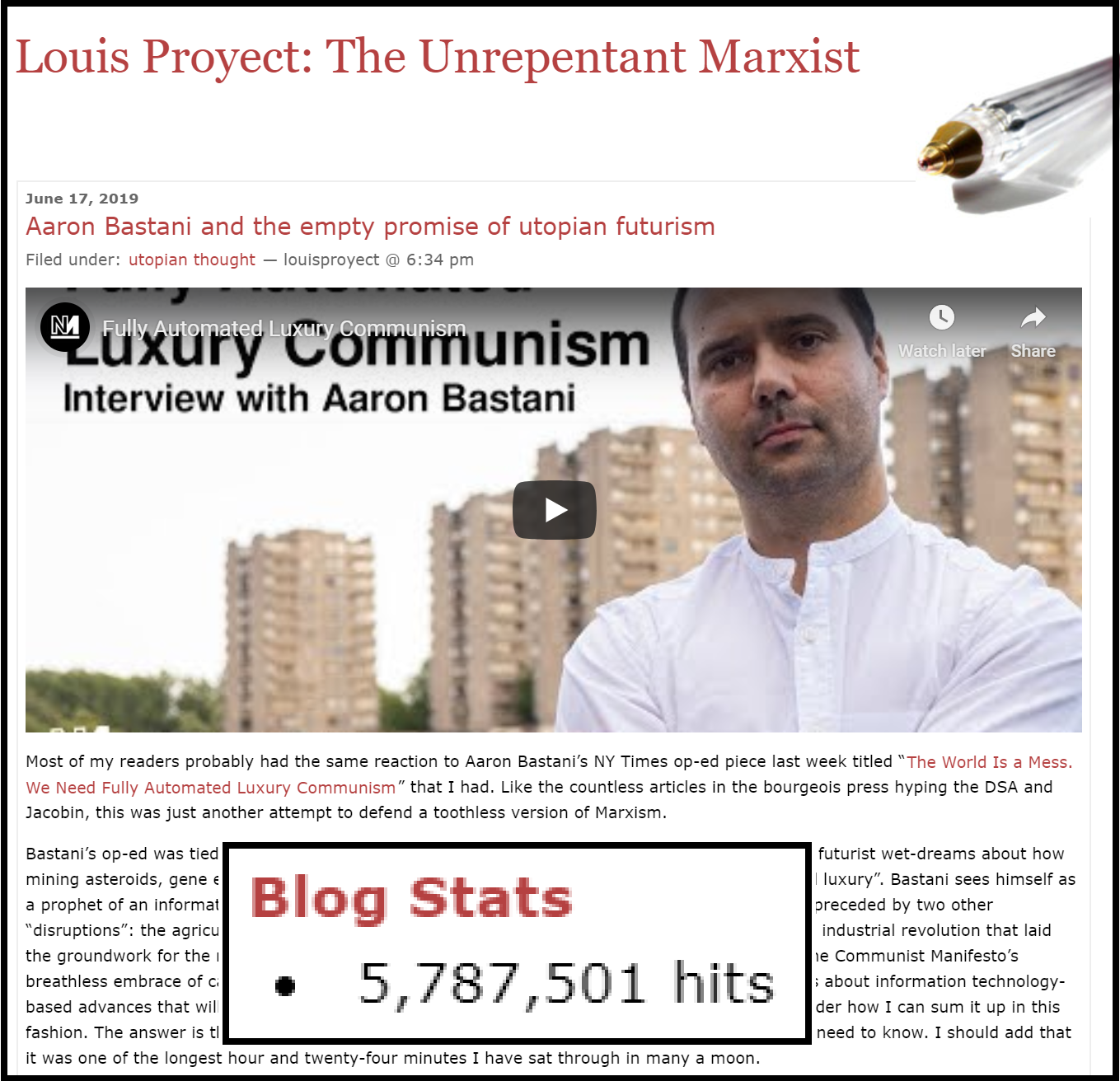
| ||
The New York Times is "the paper of record" in the U.S. You're not even dead unless it prints your obit. The Times decides what is "news", and sets the tone for how it should be covered by lesser news sources and TV news. The most notorious recent example of this was the promotion of the lie that "Iraq had weapons of mass destruction" (and cheerleading the U.S. invasion that led to the deaths of a million people and unleashed the current round of instability and civil wars in the Middle East). All other news outlets were free to repeat these obvious lies--because they had appeared in the Times. More than this, the NYT is the acknowleged voice of capital--and is not, to say the least, friendly to the idea of expropriation. So why would the voice of capital promote communism? | |||
Proyect's answer to this question is that the NY Times is "defending a toothless version of Marxism" as part of its promotion of the political trend centered around the "Democratic Socialists of America" (a group based on the futile idea of moving the Democratic Party to the left) and the DSA's flagship magazine: Jacobin. All of this, of course, is true. But Proyect is missing what is important. This would be like saying, in 1865: "But other than that, Mrs. Lincoln, how did you like the play?" Let's break this apart. It is certainly true that (1) the NYT is promoting the DSA/Jacobin project. And it is certainly true that (2) the DSA and Jacobin are promoting a toothless version of Marxism. And it is also true that (3) the reformist politics of Jeremy Corbin and Aaron Bastani in Britain are substantially similar to the reformist politics of the DSA/Jacobin here in the U.S. And it is also true that (4) many of the ideas that Bastani is promoting (such as asteroid mining, and so forth) are somewhat silly techno-utopian fantasies in the context of a world of increasing austerity, violent racist attacks, threats of war, and further dark clouds on the horizon. The help we need is not going to come from the heavens. But we still have a responsibility to think. It's a tough world. Tougher if we are stupid. It does not follow from any of the 4 points above that the fundamental idea at the core of FALC is wrong: humanity has the ability to make use of the vast and expanding productive potential of technology to meet every fundamental human need -- when it gets rid of the rule of capital and learns how to organize production for the good of all -- without the restrictions of capitalism. This is a principle that all of the "marxist" groups claim to uphold--even while they bury it in the fine print in order to (supposedly) better focus on what can be done "now". | 
| ||
So why would the NYT publish such a summary of an updated communist manifesto? We need to understand how the institutions of class divided society work--in order to maintain the necessary illusions: political trends need to be trained--and this requires that small amounts of truth must be doled out as a reward for playing ball. In particular: (1) the ruling class is not afraid of a manifesto that puts its emphasis on asteroid mining and synthetic meat rather than the expropriation that will be necessary to separate the capitalists from their capital (if not their heads) and (2) the NYT is a newspaper, after all, and it must include a drop or two of truth in all the swill they publish in order to maintain credibility and influence. In other words, tidbits of the truth are a carrot to use with reformist trends that are being trained to be obedient puppies in the system of bourgeois rule. | 
| ||
Bastani is promoting the idea of FALC because he recognizes that it is a set of ideas that are fully in alignment with the long-term needs of the proletariat and humanity as a whole. Bastani himself may be a petti-bourgeois reformist social democrat, but he has stumbled onto the truth, and is promoting the most fundamental of marxist theoretical principles because the rest of nominal "left" has been too bankrupt--and too busy shoving its head up its rear end--to be bothered (at least on the level of theory) with anything approaching real marxism.
This is the irony. It was left to a petty bourgeois
| |||
I should probably point out that, as an isolated activist and theoretition, I have been doing the best I can along similar (and I hope deeper and more solid) lines as FALC, having written The Self-Organizing Moneyless Economy (1995) and various follow-up essays such as in the "Anarcho-Leninist Debate on the State" (2001 - 2003). In these works, I outlined how society will function with no money, prices, wages or centralized bureaucracy, and where all work would be unpaid volunteer labor. I also made some reasonable guesses and described a scenario or two reflecting the nature of the transition to such an economy in a lengthy period of stability following the overthrow of the rule of capital. My work was built around answers to 7 questions that were given to me as challenges by my polemical opponent, Joseph Green, who asked how, for example, disputes concerning what to produce and how to produce would be resolved without either the market or a centralized authority. Comrade Green did not pose these questions with the idea of initiating a theoretical collaboration -- but that is what it turned out to be. With the passage of time, if not the wisdom of age, I recognize that if anything at all comes from my lifetime of work--it will be due to the considerable effort, struggle and sacrifice of comrade Green--who, in spite of his errors of judgement--did a lot to build the organization that gave me a political education, class consciousness and experience in serious political struggle. | The chart below is from the "Anarcho-Leninist Debate on the State" (2001 - 2003). (I can't link to these essays because the struggle.net domain name where thet were hosted was hijacked via identity theft. I am working to find a way to put all this material online again.)  (click chart to view full-size) | ||
We have a choice. We can build a movement focused on what is possible tomorrow--or what we can do today. We must choose one or the other. At least that is what is Proyect implies:
As (to use Proyect's words) "revolutionary activists and thinkers" we need to be cautious and skeptical anytime we are told, by some authoritative thinker, that we must choose between two options. This comes up a heck of a lot. In the US, we are told we must choose between the Trump and the Democratic Party--because we live in a "two party system". In the first world war, workers were told they needed to choose sides: the English and French -- or the Germans. During the recent civil war in Syria, many on the left insisted that we must choose between supporting US imperialism and the butcher Assad. Today, we are being told that, in Venezuela, we must choose between Maduro and US imperialism, and in Hong Kong, between supporting "Western democracy" and Chinese dictatorship. Tomorrow, if US imperialism and a rising China go to war--we will be told we must make a similar choice. So, when we are asked which of two sides we support, often the correct answer is a simple "fuck you". There are times, of course, when there really are only two choices. But we have a responsibility (and the ability) to think things through for ourselves, and not be stampeded into unthinking support for whichever side we believe has created smaller piles of bodies. So the answer to the question of whether we should build a movement which ignores what is possible tomorrow--or ignores what is necessary today--is that our movement must be a solid partnership, a marriage, a genuine integration between tomorrow and today. | 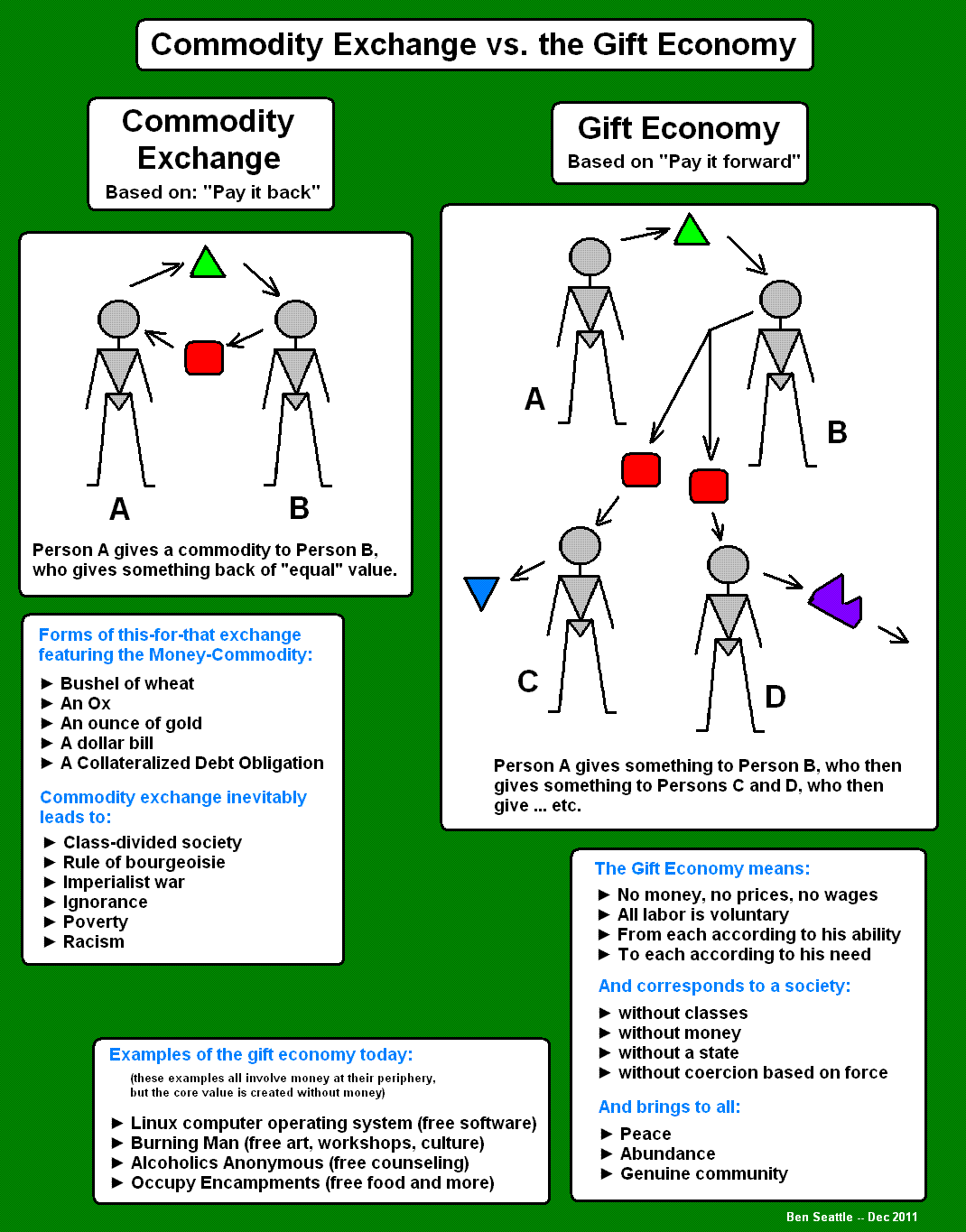
(Click image above to view full-size) (Below) The Simpsons explains how the "two party system" works | ||
All of the self-styled "marxist" groupings today claim that they represent an integration of current work organizing struggles today and the goal of our movement tomorrow. As activists and thinkers, however, we must train ourselves to avoid taking things at face value and, rather, look beneath the surface. First--why is the goal of our movement important? As I noted in chapter 1: The French Revolution could not have happened without the development of ideas that gave people confidence that there was a better way to run society than to place supreme authority in the hands of a king. We are in need, today, of clear ideas that will give millions confidence that there is a better way to run society than to place supreme authority in the hands of capital. Humanity cannot overthrow the rule of capital without having a realistic understanding of what an alternative to the rule of capital would look like and how it would work. Simply put: we cannot get from here to there without knowing that there is a "there" to go to. Instead of a realistic alternative to the rule of capital, groups on the left today talk endless bullshit about "socialism", which is a word that no group can explain or answer questions about. This word, "socialism", has evolved today to mean "social democracy" -- which amounts to a somewhat less bad version of capitalist rule. This word is also used to mean "something better than what we have now", in a way that is as hazy as a thick fog. And this word is also used as a tranquilizer, of sorts, to take our mind off the fact that no one can explain what it is or how we will achieve it. In short, the word "socialism" today is utterly fucking meaningless, and is mainly used for purposes of deception and/or making people feel good. We cannot avoid the need to understand what an alternative to the rule of capital would require. It would, for example, require an economy that is not based on commodity production (ie: goods and services created for the purpose of sale or exchange), wages, prices or money of any kind. It would require that all human labor would be voluntary (ie: freely given without the threat of the whip, or the threat of starvation or homelessness) and a whole new way of organizing large-scale economic activity. This is because commodity production inevitably leads to money, money leads to capital, and capital leads to the rule of capital. And the rule of capital leads to meat puppets feeding us fairy tales while the world burns, the icecaps melt and the oceans rise. | 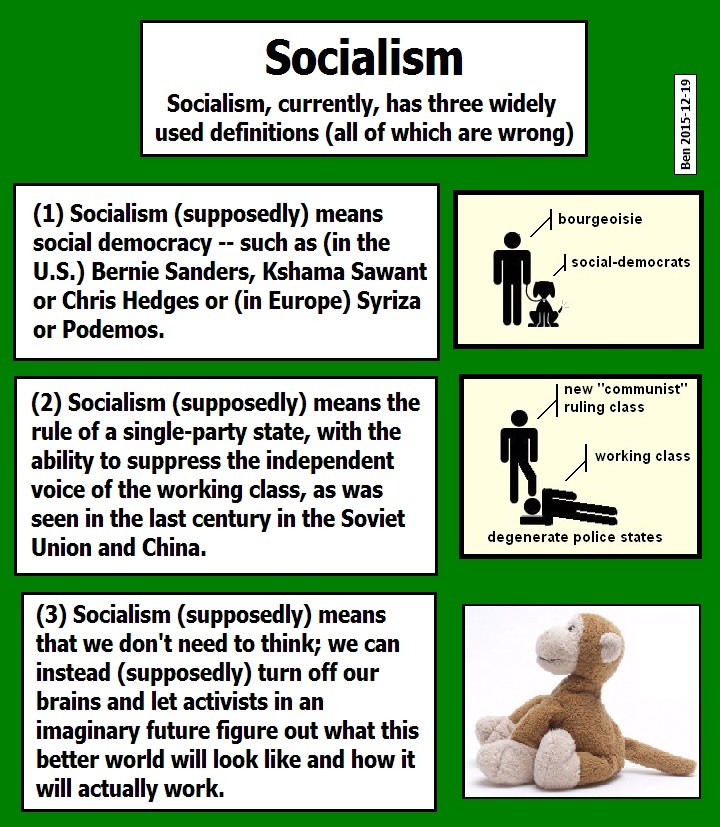
(Click image above to view full-size) | ||
None of the great revolutions of the 20th century, in Russia, China, etc. created an alternative to the system of commodity production -- other than a form of state capitalism or a centralized feudal bureaucracy. We need to understand what a realistic alternative to commodity production would look like, how it would work, and how humanity will make the transition from here to there. In the absence of the kind of confidence -- in a realistic alternative to the rule of capital -- that would help to mobilize millions for the overthrow of this rule -- groups on the far left fall into hoping and waiting for the day when people will finally get desperate enough to listen to them and flock to their ranks. It is true that most people come into political life only when the normal functioning of their lives is disrupted and threatened to the point that they are essentially forced into thought and action. Here is Proyect:
My own experience, by the way, was similar, except that, being a decade younger than Proyect, I was forced to think about the draft when I was in High School, as the Tet Offensive raged in 1968. And rather than having a classmate in the SWP, I was on my own and gravitated to the seeming clarity of the thought of Mao Tsetung -- for the simple reason that the answers I got from that direction seemed to create more clarity on the most important questions than the answers I got from anywhere else. But let's return to Proyect (I have added boldface):
| 
(Click images to view full-size) 
(Click images to view full-size) 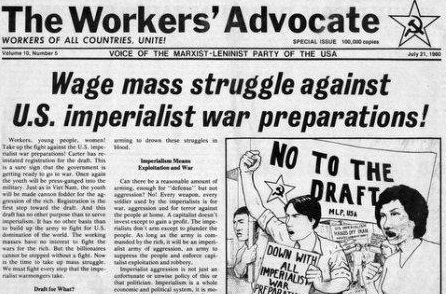

On November 7, 1979, I applied for membership in the Central Organization of U.S. Marxist-Leninists (COUSM-L) which soon became the Marxist-Leninst Party, USA. The MLP voted to dissolve itself in November 1993. | ||
But we need to think about more than what forces people into action. We need to think about where they go and what ideas they can find once they decide to "do something". People are not robots, and most of them cannot be fooled forever. If people do not get answers to their questions that are more than the usual bullshit or evasion--they eventually go elsewhere or simply go back to being politically passive. Until we have a movement that can give people real answers -- until we have an independent, democratic, and politically transparent movement based on an authentic integration of our future goal and the struggles of today -- we are like a man desperately searching for more water to pour into a bucket that has a thousand leaks. For those who have made up their minds to confront the material reality that humanity faces in this century--I suggest we look at why it was that Karl Marx asserted, in the Communist Manifesto, that the overthrow of the rule of capital by the proletariat was inevitable. | 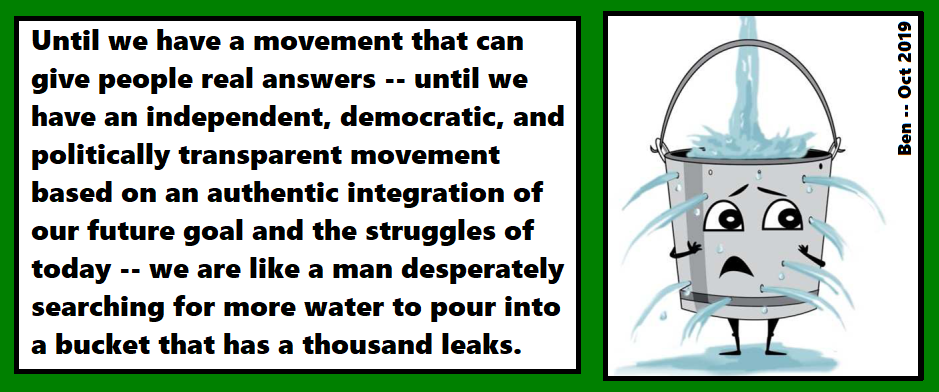
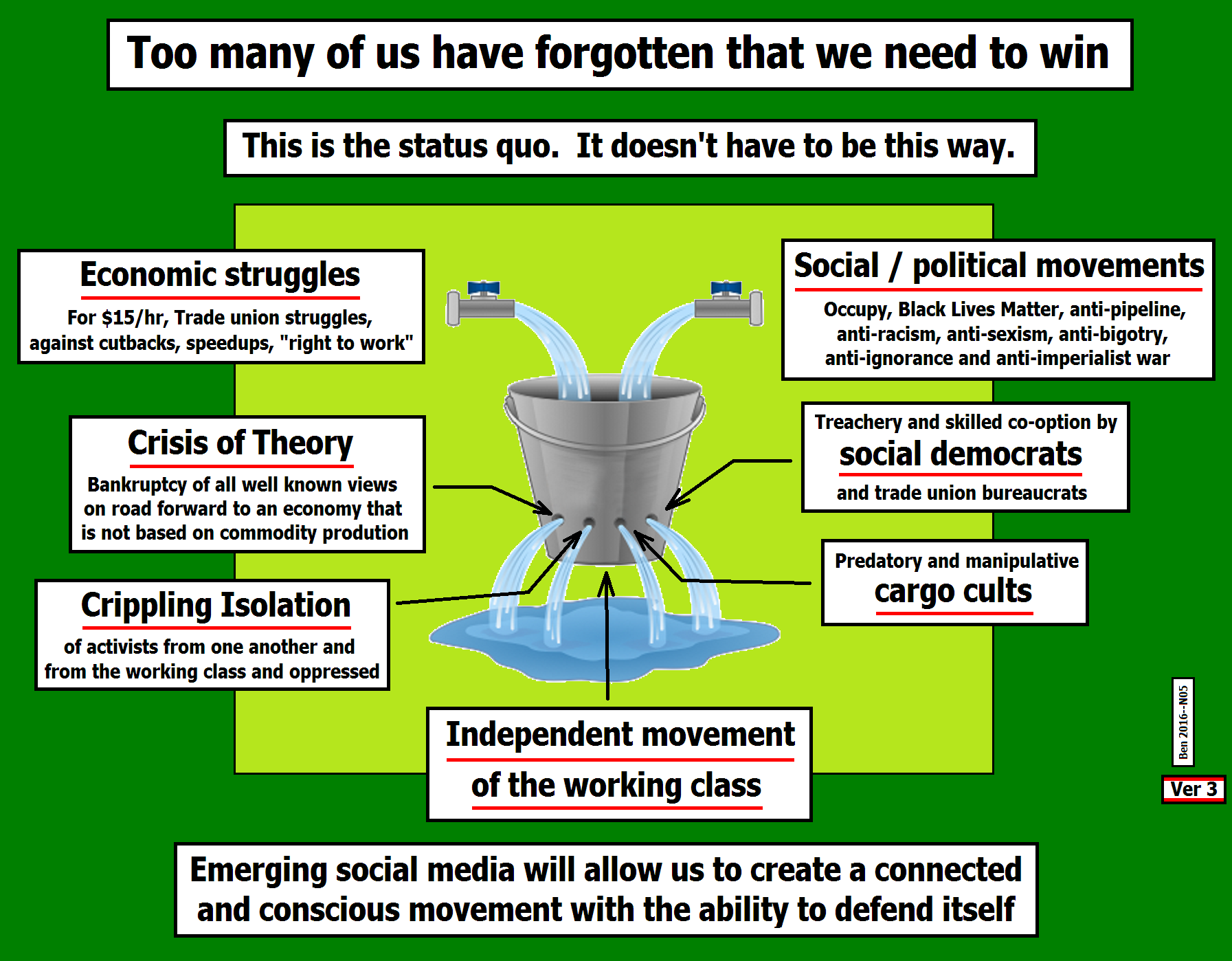
(Click images to view full-size) | ||
The standard bourgeois, liberal or social democratic response to Marx's assertion is that "Marx was wrong because he failed to anticipate ... blah, blah, blah ...". This is what is taught in our schools and so forth, and is only what can be expected in a society ruled by capital. However, even among activists who consider themselves to be "marxists", fewer than one out of a hundred (in my experience talking to them) know or understand why Marx said this was inevitable. The answer to this question revolves around a term that is usually only used by economists: the productivity of human labor. |
-- Chapter 3 --
|
The term "productivity of labor" sounds like a dry, academic phrase. What does this term mean? This term is an answer to the question of whether a man or a woman, in an hour of work, can produce enough food to feed one person, or ten, or a hundred, or a thousand. Ditto for whether an hour of human labor can create shelter, clothing, transportation, health care, or anything else -- for a few -- or for multitudes. This term describes how much "stuff" a man or woman can produce in an hour. Obviously, this is an important question. If the productivity of labor was a hundred times higher, for example, this would mean that everyone could have ten times more "stuff" than they have now--even if the average work week was reduced from 40 hours to 4 hours. Is it realistic to talk about the productivity of labor increasing by a factor of a hundred? Certainly. It has happened already several times in human history, and it will be happening many times again. Increasing productivity is not a question of the worker sweating more, or taking shorter coffee breaks. It is a question of the worker being able to amplify his or her efforts by commanding an army of hardware and software robot slaves. But before going further into this question--I need to bring up a related topic--because under the rule of capital--a hundred fold increase in productivity would not be likely to give everyone ten times more stuff and a 4 hour workweek. The rule of capital would be more likely to maintain something closer to existing conditions: an exhaustive workweek for those lucky enough to remain wage-slaves -- and misery for the unemployed -- mitigated only by the need to prevent revolt. That is what has been done in the past. | 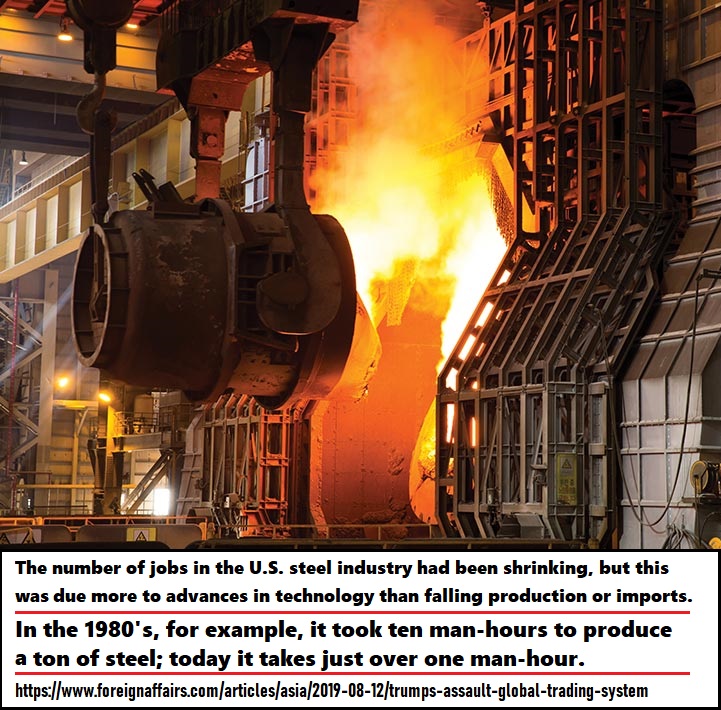
( Click images to see full-size )  | ||||||||
Obviously - we cannot ignore questions of political and social organization. So it is not only a question of producing more "stuff" -- but of what stuff is produced -- for whom and under what conditions.
There are countless examples of the waste and distortion of priorities that result from all the big decisions being made on the basis of maximising profit. For example, the resources that are spent on what is called "Defense" could easily feed all the starving people on the planet. And the rule of capital means that our politicians, institutions and culture are all subservient to capital and work together to keep us ignorant and fighting one another. But having said that -- I want to get back to the question of creating more "stuff" -- because we need to get beyond an exclusive, obsessive focus on a more "fair", "just" or "equal" distribution of the stuff that humanity is creating today. Such an obsessive focus tends to be a trap that leads to illusions and a kind of reformism that will never be able to deliver more than tiny drops of fairness, justice or equality. We are better served avoiding this detour--and considering instead--the revolutionary argument that Marx used to explain WHY the overthrow of rule of capital was inevitable. | 
What kinds of transportation systems do we end up with when the auto monopolies own the government? 
-- Warning -- Video below begins and ends with a paid endorsement (ie: a commercial) for a company that markets education videos | ||||||||
Bastani's article captured attention because he asserted (correctly) that humanity has the ability to create more stuff (ie: plenty for everyone). This follows directly from Marx. Marx asserted that humanity needs to get rid of the rule of capital in order to create more "stuff". Marx asserted that it was the rule of capital that was holding everything back, and that in order to fully unleash human productivity, it was necessary to replace the system of commodity production (ie: the soil from which the rule of capital grows) with something better. I know that the attention-span and patience of my readers is finite -- and this essay is not the place to summarize Marx's conclusions concerning the laws of commodity production (I have done that elsewhere, including The Laws of Commodity Production for Dummies). But I will briefly summarize the main argument here: Irreconciliable contradiction between capital and labor Under the capitalist mode of production for profit, human labor is steadily reduced to a commodity--and this creates an irreconciliable contradiction in the workplace between capital (which is driven to increase profit by minimizing the cost of labor) and the workers. This irreconciliable contradiction of material interests emerges in countless ways.
This contradiction in material interest obviously affects the motivation of workers in a thousand ways--and means that workers must be motivated by trickery (ie: "this company is like your family") or that attempts must be made to somehow measure a worker's output--and then apply all kinds of carrots and sticks. But how do you measure output in a complex operation? Maybe the worker is spending time teaching another worker how to do something--or documenting something (ie: sharing knowledge and increasing the productivity of the entire team) ? Moreover--the contradiction in material interest also creates a material incentive for each side (ie: capital and labor) to restrict the flow of information to the other. (More on that in the next section.) The internal compass There is something deeper here: For any phenomena, the basis for change, development and motion is always internal -- is always on the basis of the working out, interplay and resolution of internal contradictions. Maybe, for example, the decisions involved in creating something (ie: what to create, how to create it, who to create it for, etc.) might in some way, large or small, be related to global warming--or a host of other problems. The actions of labor will be more productive when they are the result of the internal consciousness, conscience and compass of the worker acting to reflect, refine and redeem, on the largest possible scale, the contradictions of the entire world--rather than originating from external measurement, carrot, or stick aimed at increasing the profit of some exploiter. | (local cache) (wikipedia page) 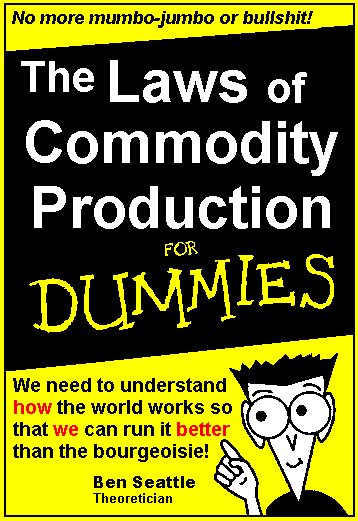
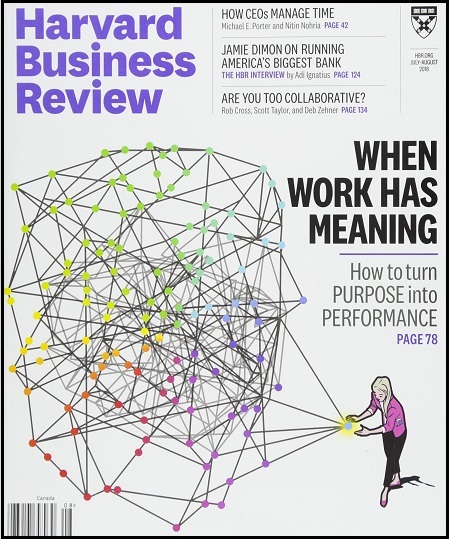

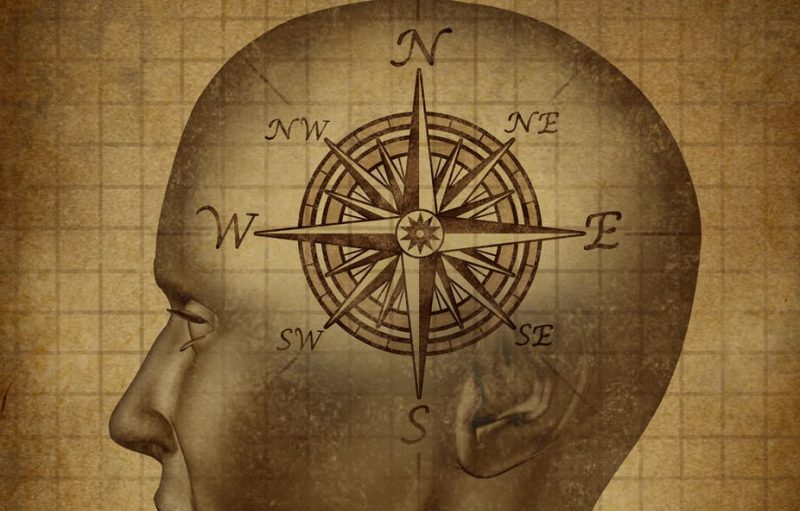
(above) Who makes the decisions? (below) Production decisions may impact global warning 
(below) The decisions needs to made by the people who do the work 
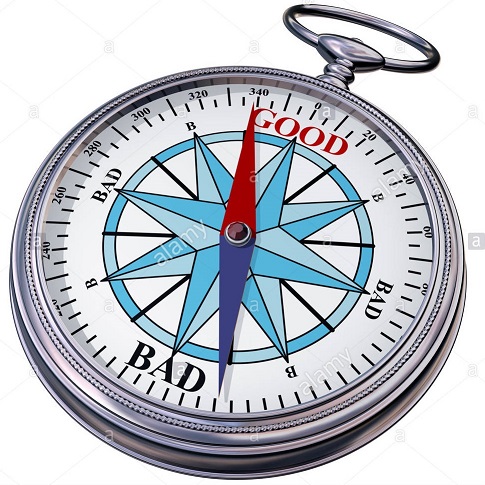


| ||||||||
Free flow of information required for productivity Under modern conditions, the flow of information becomes particularly important to increasing productivity because the production of goods and services requires the coordination and integration of: (a) the work of many people and (b) the use of many kinds of rapidly evolving technology and this requires the free flow of all kinds of information between the team of people working on a project--as well as between different teams. For example: workers need to know the real priorities of a project, so that team members can adjust plans as things change in a fast moving environment--without the need to halt what they are doing and wait for new instructions. And information needs to flow fast regarding how to follow procedures and work around software problems--and all the shit that continually pops up in a fast-paced modern workplace. Restrictions on the flow of information In other words, we can view the contradiction that Marx described in terms of the flow of information, and observe: (1) Productivity requires the free flow of information (2) The free flow of information requires the resolution of the contradiction in the workplace that blocks it: the contradiction between dead labor (ie: capital) and living labor. Like the flow of electrons in a metal I consider it helpful to consider an analogy to the flow of electrons between atoms. In most materials, the electrons tend to stick around the atoms to which they are bound. But in metals, things are different, and the electrons flow much more easily between atoms. In modern capitalist society, and the capitalist workplace, relations between management and workers, and (to an extent) even between the workers themselves are characterized by alienation and mistrust. We live in a society in which we are forced to exist as isolated atoms, engaged against our will in "a war of all against all". In contrast, in the period before civilization and class-divided society, the bonds between members of the early human tribes were based on an intensity of sincerity and trust that is rarely experienced in modern society except in extreme or unusual conditions--such as the bonds that are known to be forged between groups of soldiers in prolonged combat--or sometimes between activists or small groups engaged in some kind of serious struggle. In post-capitalist society (I am going to avoid the booby-trapped and much abused word "socialist") the bonds in the workplace (and outside the workplace as well) would become more like those of early human society. In these conditions, the flow of information in the workplace, and in society as a whole, would be closer to the flow of electrons in a metal. In a world in which the creation of goods and services is based on the flow of information--this is the basic requirement for maximizing productivity. | 
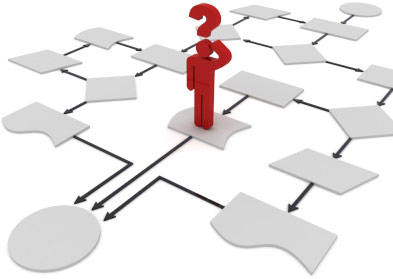

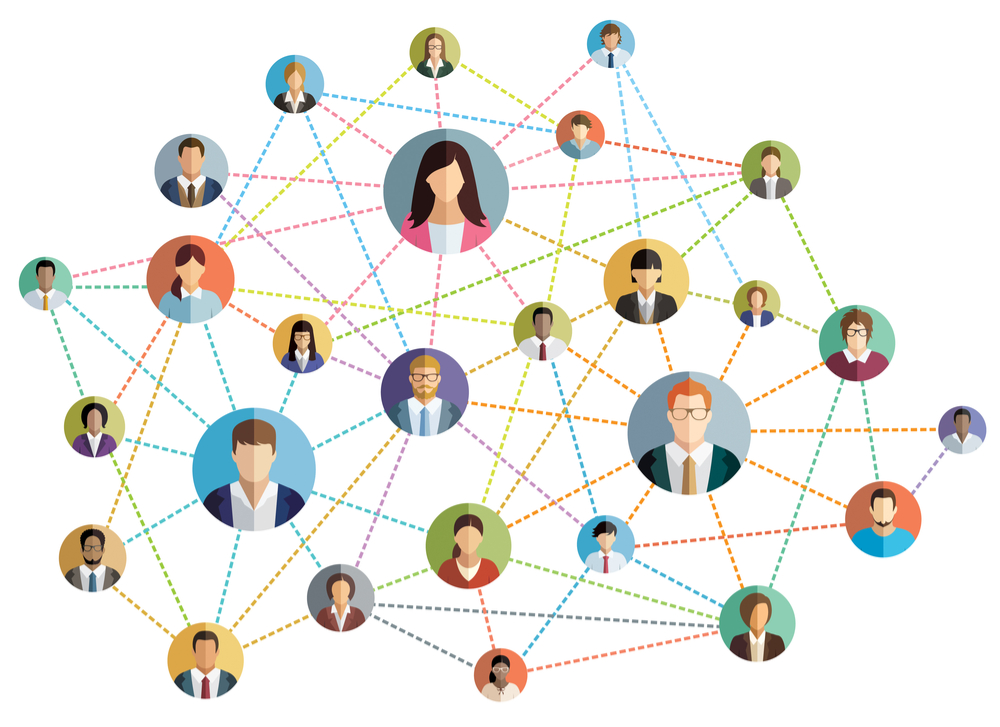

(Below) Animations of electrons flowing through metal 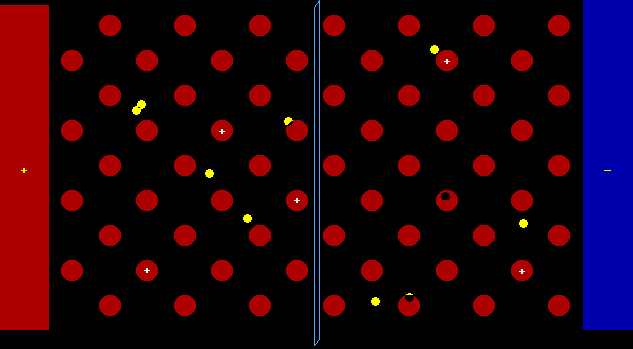 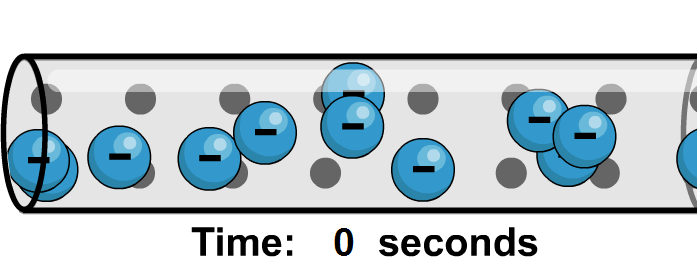  | ||||||||
Karl Marx was excited about the potential of steam-driven machines before Bastani was excited by asteroid mining because, in Marx's time, such machines had become real and were doing work that would have required hundreds of people. In order to understand the future--we must start with the past. The first forms of technology were rocks--and fire. They changed everything--and made possible the evolution of our large, energy-hungry brains--because they made more calories available in the proto-human diet. |   | ||||||||
Hundreds of thousands years later--everything changed again--at the dawn of civilization, as the domestication of animals, the development of agriculture and the use of metal tools made it possible for fewer men and women to feed, clothe and house many. In the long run, the productivity of human labor overwhelms all other factors. Primitive communal tribes of equals were replaced by hierarchical class society, based on rulers and ruled, slaves and masters, leaders and led, haves and have-nots. Matriarchal society was violently destroyed by patriarchal society, and for the first time, humans became property and objects--which needed to be manipulated and controlled. All the institutions of oppression and ideological control originated as a result of this increase in the productivity of labor. 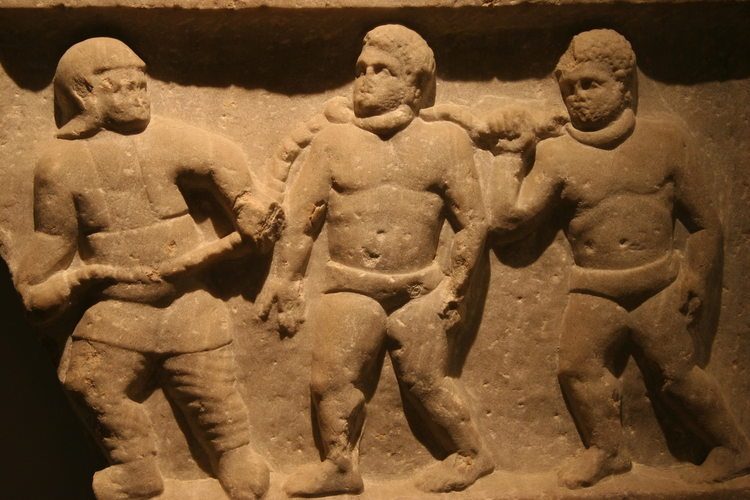
(above) A marble relief panel from Smyrna showing Roman slaves in chains. 200 CE. (Ashmolean Musuem, Oxford, UK) 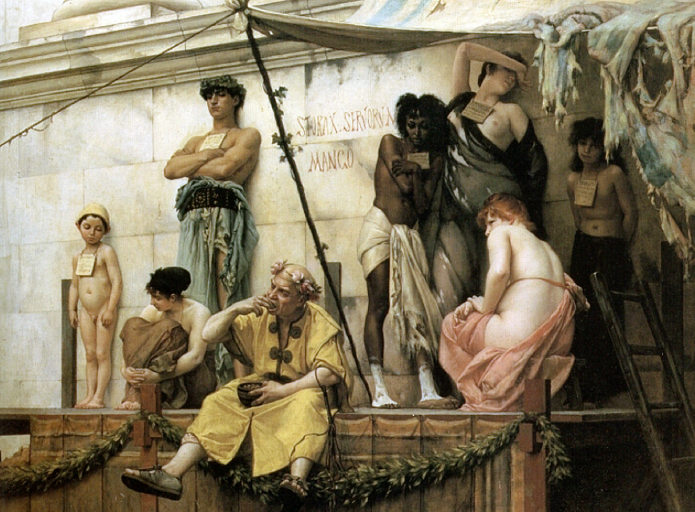
| 
(above) The violent destruction of matriarchal society by patriarchal society is represented, symbolically, by the myth of Perseus, who slew the Gorgon ("guardian, protectress") Medusa. (below) The reality of patriarchy is represented by this sculpture of a woman who has been captured and has become property 
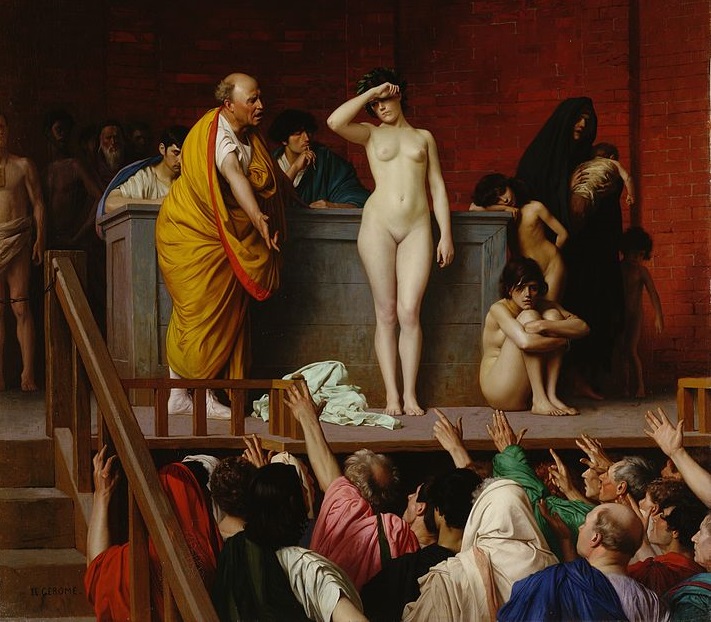
| ||||||||
All these changes took place roughly 10 or 12 thousand years ago, in the emerging centers of civilization, before the beginning of the bronze age. More recently, about 500 years ago, capitalism emerged in a big way around trading cities such as Venice and Amsterdam. Capitalist development was made possible by and accelerated the growth of the productivity of labor. And the ideas that were needed to serve the interests of this capitalist development emerged in the periods we know today as the Renaissance and the Enlightenment ("the age of reason"). Then, in the period roughly around 1800, the industrial revolution emerged with the mass production of iron and machines powered by steam. This period is considered the birth of the modern era, and led to the growth of the working class as a major social force. All of the huge changes in economics, politics and culture that led to and followed from this period were connected to or driven by increases in the productivity of labor, helped by the development of electric power, the chemical industry, the internal combustion engine and, eventually, the transitor and integrated circuit. With this foundation, humanity has entered what is being called the "information age" with the internet, algorithms that can be trained (or that can create more complex algorithms -- called machine learning, or artificial intelligence) and robots that threaten to eliminate most factory workers (and increasing numbers of service workers and knowledge workers) in the same way that tractors eliminated most farmers. And it is now possible to forsee the development of AI robots and nanotechnology machines that, imitating nature, are made out of molecules and atoms.
|  (Above) The ideas that were needed to serve the interests of capitalist development emerged in the periods we know today as the Renaissance and the Enlightenment 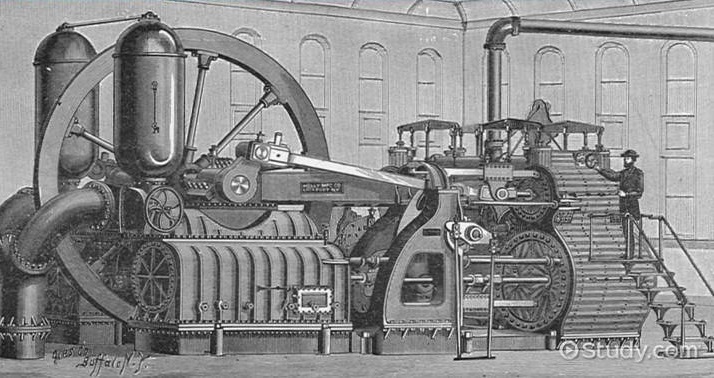 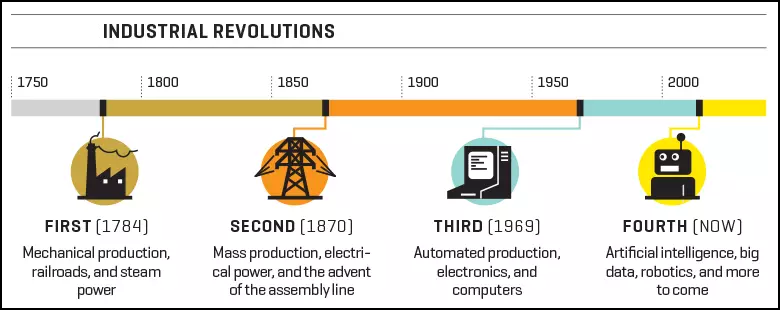 (Below) A worker uses an "Augmented Reality" app on his smartphone to understand the function of all of the valves he is looking at.  | ||||||||
How far can this go? Humanity is only beginning to build robots, and has already created Mindar, based on the Buddhist deity of mercy, which has been designed to teach the tenets of Zen Buddhism. Here is a YouTube video of Mindar preaching sermons at Kodaiji temple in Kyoto. Thousands of books and articles, from a variety of viewpoints, have been written about the coming next leap in productivity: Science fiction has given us Blade Runner, Ex Machina and, of course, The Terminator, along with a number of other movies and TV series, such as Westworld and I, Robot. Verner Verge and Ray Kurzweil wrote, respectively, The Coming Technological Singularity (1993) and The Singularity is Near (2005).
Coming from the perspective of the business community, Erik Brynjolfsson and Andrew McAfee wrote "The "Second Machine Age" in 2014. Two Democratic Party candidates for the 2020 election, Andrew Yang and Bill de Blasio, have proposed a "Universal Basic Income" and a "robot tax" that will (supposedly) help protect workers from the threat of automation. The Venus Project and the related Zeitgeist movement (which is better understood as a project, rather than a movement) appear to represent an attempt to come to terms with these developments, although these projects are not based on a class independent perspective of how society works and what needs to be done. For example, the Venus Project attempted to trademark the phrase "resource based economy" (their application was denied as "too generic"). This was silly in many ways. The overthrow of the rule of capital will require a democratic movement free of efforts to use the bourgeois legal system to restrict the use of words or phrases. There are other projects also, with similar weaknesses, such as the Money Free Party, which calls itself a political movement and claims to have parties in 16 countries. The main significance of these kinds of projects may simply be in what they represent: a widespread striving to look ahead at where humanity is headed -- and to understand and shape our future. | 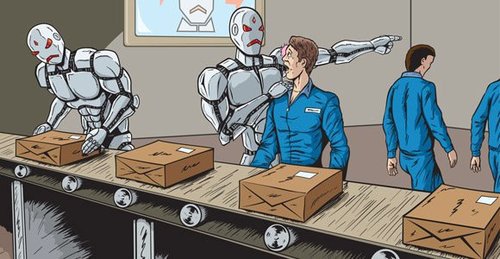 Robots to kill you 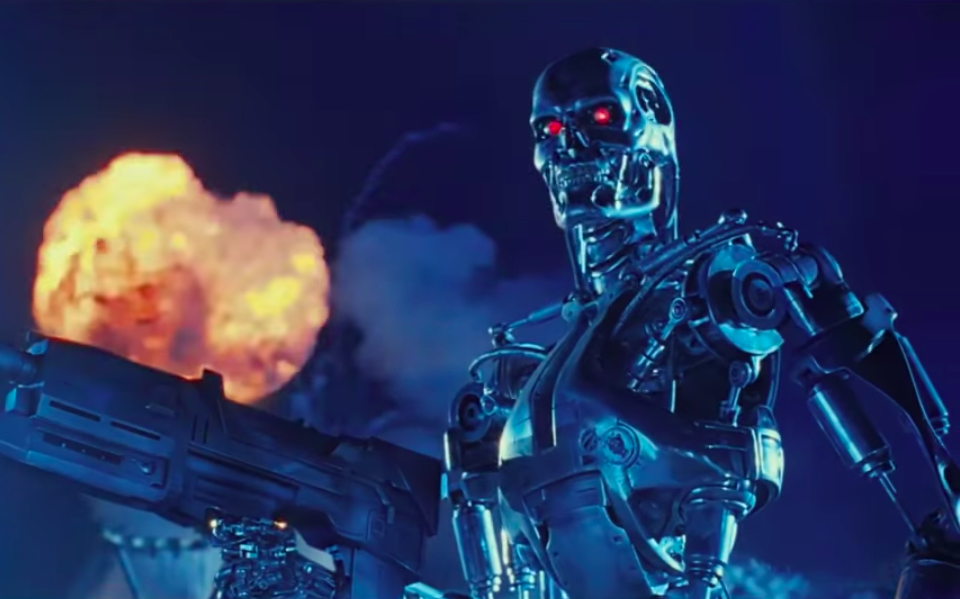
Robots to protect you -- Robots to seduce you 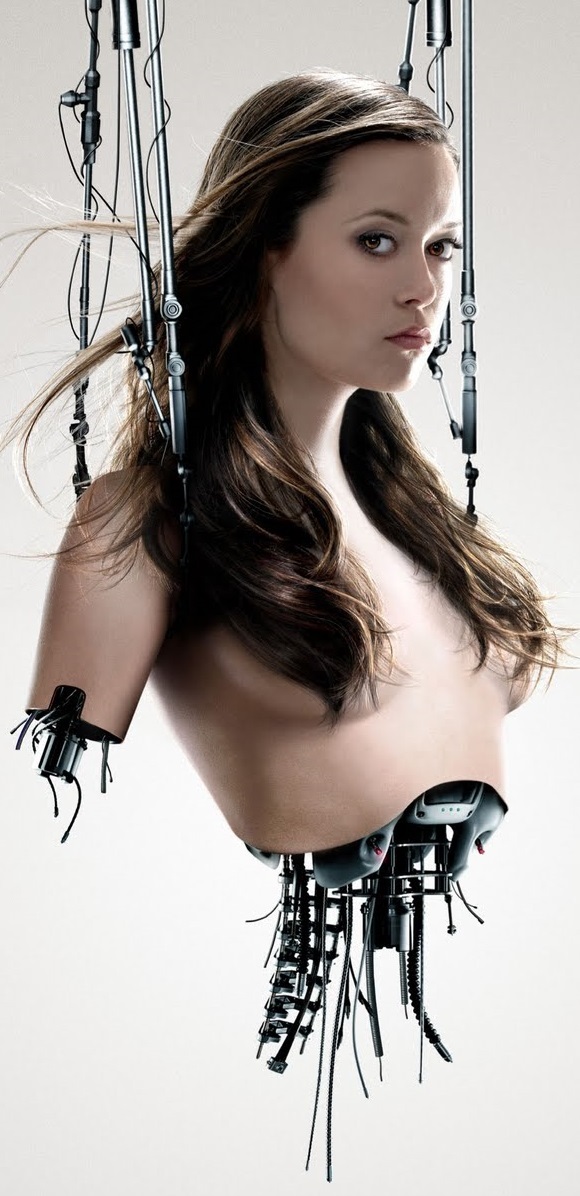

Robots to have sex with 
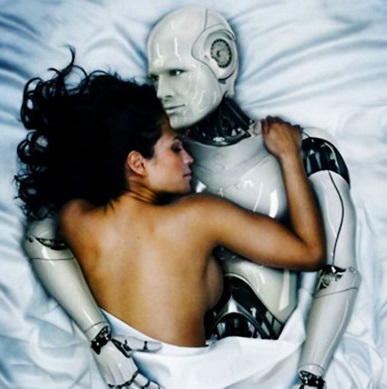
Robots to serve breakfast -- Robots to probe your soul 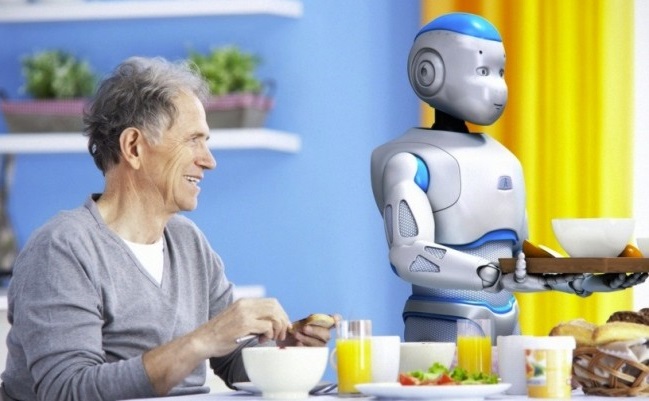

Robots to teach your children -- Robots to worship 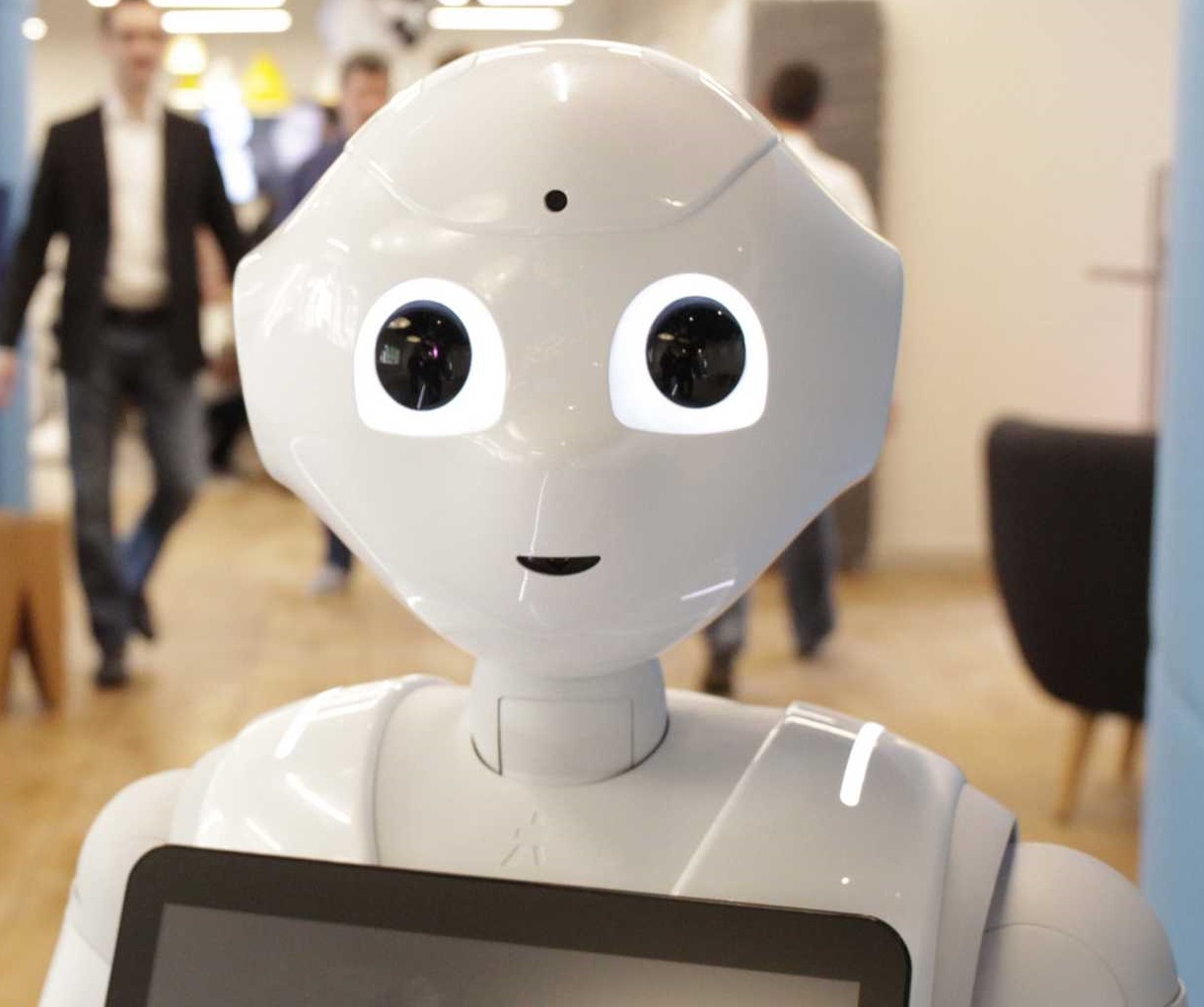


| ||||||||
In July, the Atlantic magazine carried an article, The Metamorphosis, by a trio of authors, including no less than Henry Kissinger, Eric Schmidt (who used to run Google) and the dean of the computer department at MIT. The illustration of the Atlantic article reflected well the class outlook of the bourgeoisie: a giant glowing orb (representing our new master) towering outside and above the circle of humanity--which worships it as an external, alien force--because that is the only thing that is possible--in a society ruled by capital--where the laws of commodity production and the rule of capital stand outside and above humanity--as an implacable ruler--without pity--keeping us passive and ignorant while demanding ever-increasing tribute. The illustration reminded me of a popular joke about computers in the early 1960's: Scientists had built a huge computer into which they had programmed all the world's knowledge. Then they began to ask this computer questions. One by one, it answered every question--easily solving the most difficult problems that had stumped the most learned men for ages. Finally--they asked the computer the ultimate question: "Is there a god?" For the longest time, the computer buzzed and the lights flickered. Finally the teletype clattered out the answer on a sheet of paper: "There is now."
But the vast productive force which is emerging will not stand outside and above humanity.
| 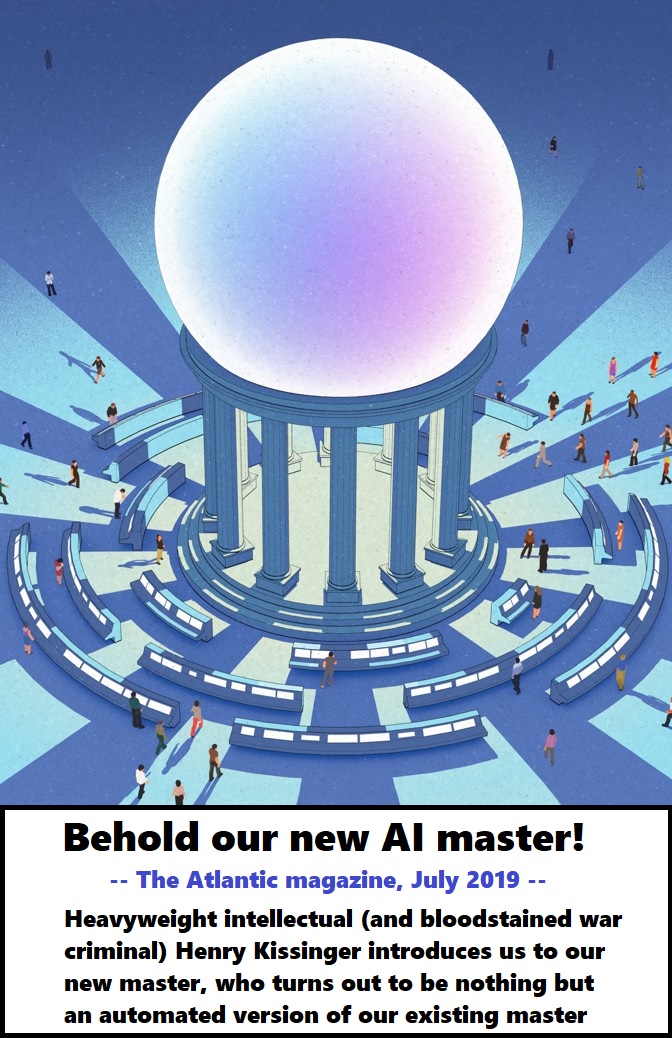
(above) The Metamorphosis (local cache) (The Atlantic, July 2019, Henry Kissinger, Eric Schmidt, etc) (below) Modified version of Kissinger's mysterious glowing orb 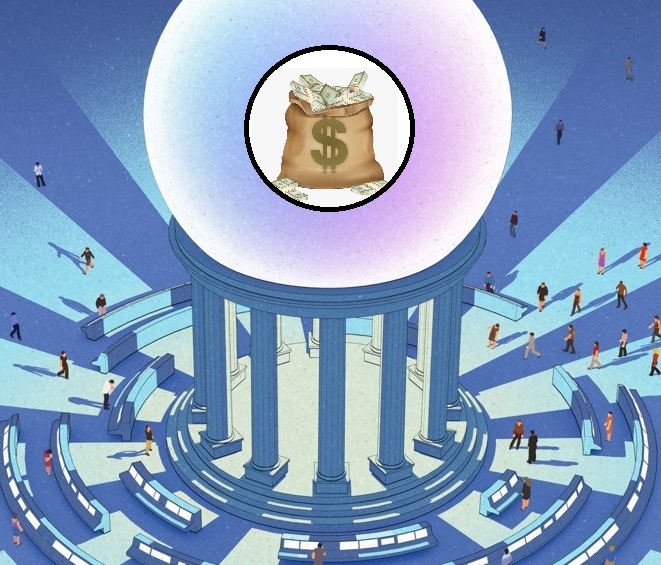
| ||||||||
The inevitability of an economic and political system which does not depend on capitalism or commodity production has been greatly confused and muddied up because of how "marxism" was revised into a state religion by the new ruling classes which captured control of the Russian and Chinese revolutions of 1917 and 1949. For example, I first learned that the overthrow of the rule of capital was inevitable 40 years ago, when I was in a study group that read Stalin's Dialectical and Historical Materialism (which was part of The History of the Communist Party of the Soviet Union). At the time, I (and the organization I had joined) were Maoists, and we supported Stalin. (In the years that followed, we repudiated first Mao, and then Stalin, although the organization collapsed in 1993.) 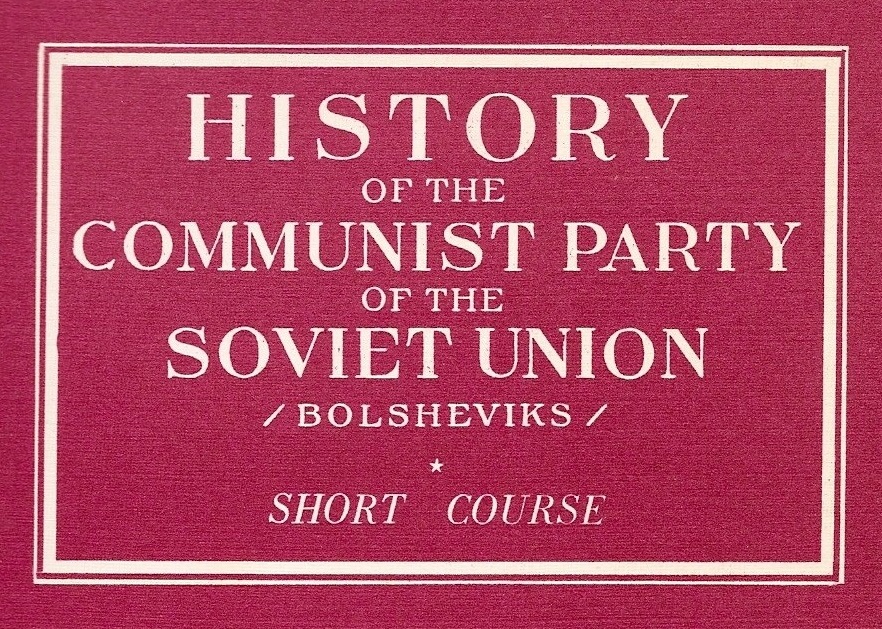
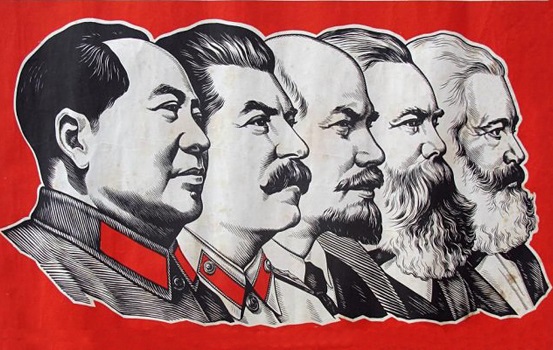
So where does this leave the question of inevitability? How much of what I studied genuinely represented the thinking and conclusions of Marx and Engels? And are these conclusions correct? And how much of what I studied was nothing more than the catechism of a state religion? I think that, as activists, our most important right and responsibility is to think for ourselves, rather than to accept views or arguments on the basis of the prestige or authority of whoever made them. My conclusions are: (1) The biggest fraud of the (supposedly) "marxist" state religion is the idea that the working class can run society by means of the rule of a single party with a monopoly on truth and and the power to decide who is allowed to speak in the public square--and what ideas you are allowed to read or even know about--and the ability to enforce this by suppressing the fundamental democratic rights of speech and organization of its opponents and the working class as a whole. (2) The actual arguments of Karl Marx, himself, hold up pretty damn well, even after more than 170 years. Marx notes that historical epochs that have followed one another (ie: primitive communal, slavery, feudalism and capitalism) represent economic advances in the direction of a higher productivity of human labor.
I think that most readers will be able to understand that, as production processes become more complex and interconnected, the coercion and antagonism that are inevitable under capitalism will increasingly get in the way--and hold everything back. This is why humanity will need to get rid of it. | 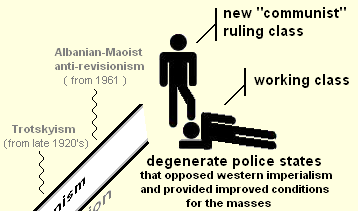
(Click to view entire chart) Dialectical and Historical Materialism (Stalin, 1938) (local cache) (wikipedia entry) History of the Communist Party of the Soviet Union (Stalin, 1938) (wikipedia entry) (Note by Ben: On some browsers--you may need to right-click on links and select "open link")
|
-- Chapter 4 --
|
Along somewhat parallel lines as Bastani, but with greater depth and political maturity, a well-known British journalist, Paul Mason, wrote "PostCapitalism: A Guide to Our Future" in 2015. I have not read Mason's book, but did study his lengthy summary that appeared in the Guardian and (aside from a few questionable formulations) found it to rank among the best I have seen on this topic. In a nutshell, Mason tells us: the economy of the future will be based on information--and information wants to be free.
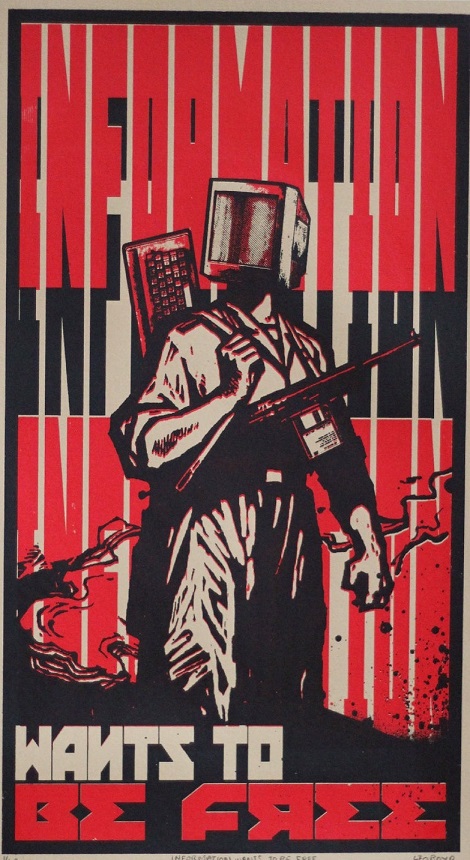
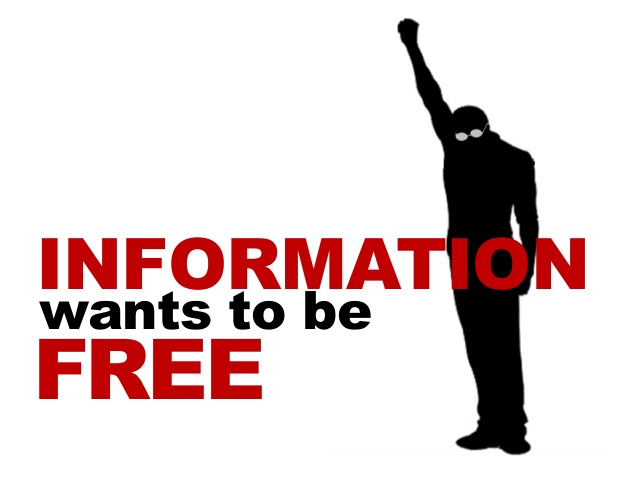
The slogan that "information wants to be free" was quite popular in the mid-1990's, when the internet reached critical mass. But this slogan can only be fully understood as a principle relating to the productivity of human labor. Information is not just an item of consumption--it is rapidly becoming (in marxist terminology) the "means of production". In other words, Mason tells us that the internet is both the ship and the ocean--as well as the compass and the cargo. And he adds:
Mason starts by describing the best-known example of the kind of collaborative effort that will replace goods and services created as commodities: Wikipedia, an information product based on volunteer labor--which has essentially eliminated the encyclopedia business and deprived the advertizing industry of $3 billion a year in revenue. Mason briefly describes a few other projects and notes that, collectively, these "seem a meager and unoffical and even dangerous thing from which to craft an entire alternative to a global system, but so did money and credit in the age of Edward III". | (Paul Mason, 2015, Guardian) (local cache) I have not actually watched these videos (Paul Mason talking to Bastani, David Harvey and Peter Taaffe, etc.) but plan to do so soon. 
| ||
Mason continues:
Note Mason's key phrase here: "the most basic need of humanity ... is to use ideas freely". But for ideas to be free--so must information--because ideas can only be communicated and reproduced by using information. One might think that Proyect would recognize this as important--inasmuch as totally irrational restrictions on the use of information have affected him personally--at least twice: (1) Proyect's own political Odyssey was chronicled in a collaboration with famed folk illustrator Harvey Pekar (whose own life was made into the movie "American Splendor"). The resulting graphic novel gives readers of today valuable insight into the period of the 1960's and 70's, when the exploding movements against the war in Vietnam and racist repression saw a generation of young people dedicating their lives to building the kinds of organizations they believed would be able to lead the working class to the overthrow of capitalism. The process of how Proyect became political--and the totally dysfunctional secrecy and manipulation of information by the organization with which he got involved--is part of history and full of lessons for those aspiring to build independent or revolutionary organization today. (2) Everyone who was in the movement, myself included, has a similar story--but Proyect's life was turned into a compelling graphic novel, and represents the experience of all of us. However, other than a few excerpts on his blog as permitted by "fair use" provisions in copyright law, the Proyect-Pekar collaboration is kept locked up and no one can see it--because Pekar died before everything was finalized and the copyright holder (Pekar's widow), as part of a personal feud against Proyect, has prohibited the release of this history of our movement. Let's continue with Mason:
| 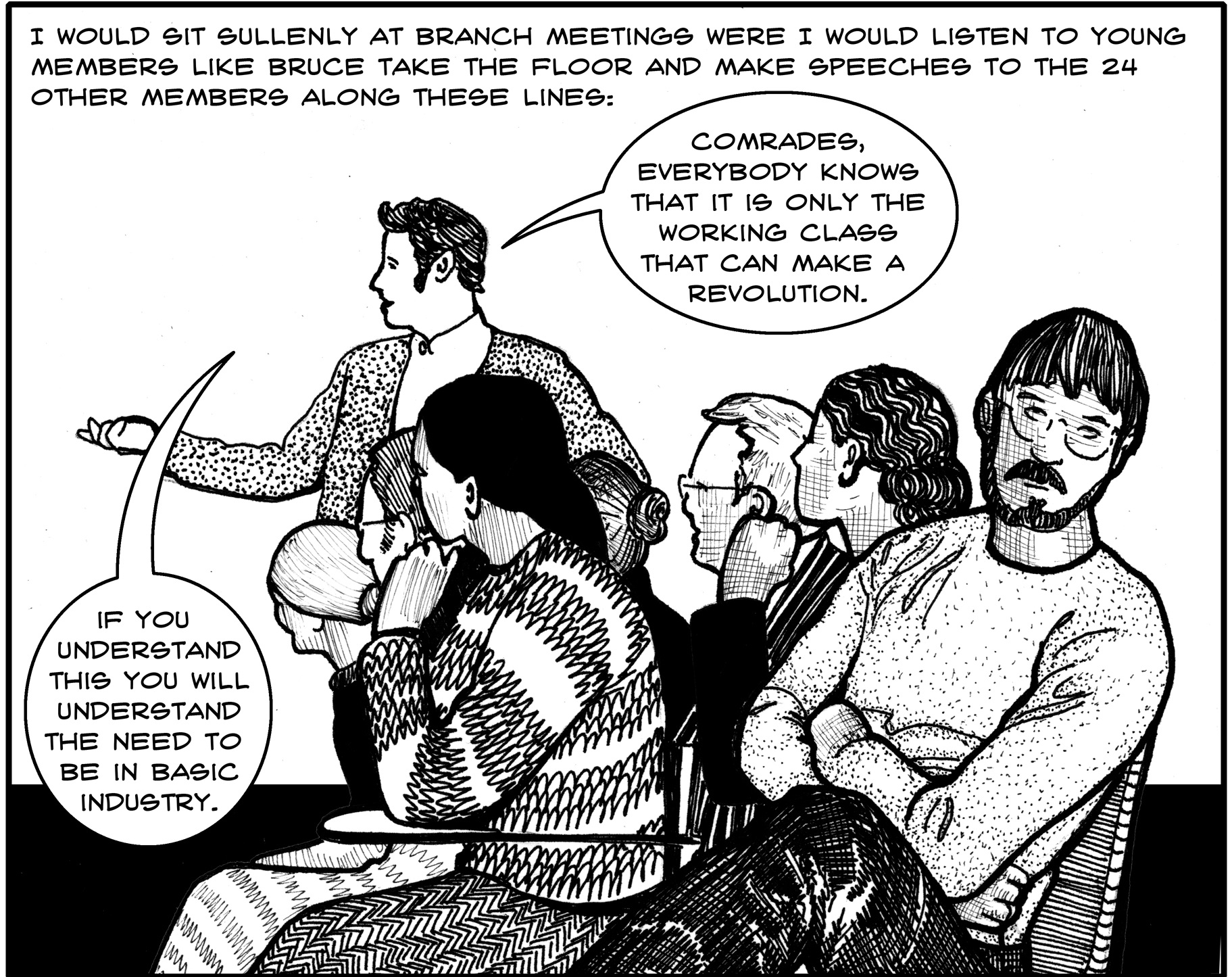
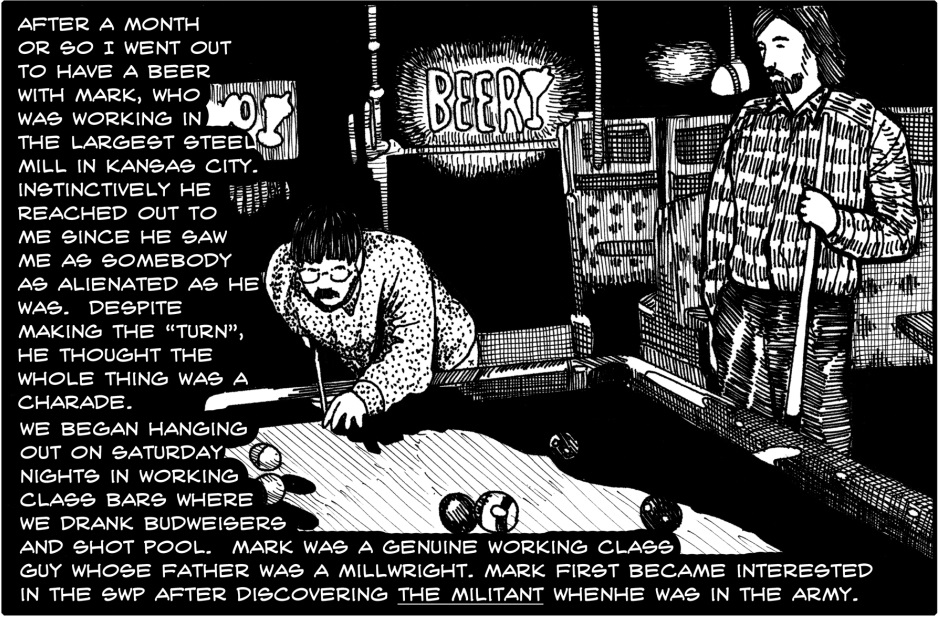






| ||
Mason writes that it was Karl Marx who first described, in an obscure set of notes now known as "The Fragment on Machines" the impact of abundant, socially owned information. These notes, written on a cold night in February 1858, around 4 am, were not published for nearly a hundred years. In them, Marx noted that the effect of what he called the "ideal machine", which lasts forever and costs nothing, would be to steadily and rapidly reduce the prices, profits and labor costs of everything it touched lower and lower, and that this would "blow capitalism sky high". Today we know this perfect machine as software--and have seen how it is eating the world and reducing costs to zero. I can tell readers that, even in the gift economy, there can be labor discipline. I felt lucky to get a shift working as an unpacker at the main espresso stand at Burning Man. It paid zero--but I was looking forward to it because it is an exciting place to be--right at the center of everything. The guy in charge of the crew warned me: "show up on time". I was there the next morning at 7:03 am (3 minutes late) and got told they did not need me. Next time I will be early. |  Marx's
fragment on machines
(local cache)
Marx's
fragment on machines
(local cache)
(1858, from The Grundrisse, pp. 690-712) | ||
Mason writes:
Mason tells us that feudalism was an economic system structured by custom and law around obligation. Similarly, capitalism is structured around the market. Postcapitalism, based on abundance, will be structured around human liberation. I consider this to be a concise and damn accurate summary of what is to come. Of course, as revolutionary activists and thinkers, we need to keep in mind that the transition from feudalism to capitalism was lengthy, complex, confusing, and at times extremely violent. This, also, appears to be in humanity's future. Our choices are limited in how this transition unfolds. Many believe there must be some way to make certain that this transition can unfold gradually and peacefully. That, of course, would be wonderful. The problem is that this generally amounts to an attempt to neutralize a lion by pulling out one of its claws at a time. Naturally, the lion (ie: the ruling bourgeoisie, the custodian and servant of capital) becomes enraged--and fights back. This does not end well for those who underestimate its strength, experience, fighting capacity and willingness to take whatever action it believes is necessary to avoid extinction. The passage on the lion was taken from John Reimann's description of the folly of Chile's President Allende, who was murdered, along with tens of thousands of activists, by the US-backed coup in 1973. My perspective, as far as what is to come later in this century, is that there is good news and bad news. The good news is that, in the long term, humanity is heading toward a future that will be far brighter and more wonderful than most people today can even begin to imagine. The bad news is that, between now and then, there is going to be a lot of pain. It is possible that this century will unleash more violence, and more horror, than the last one. | 
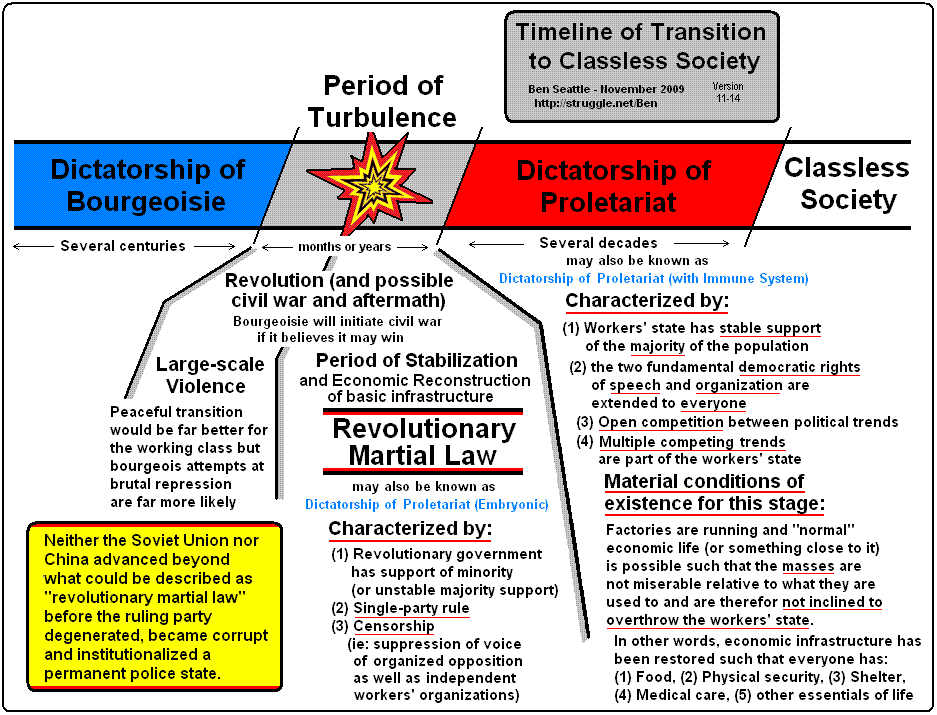
(Click images to view full-size) 
| ||
The overthrow of feudalism by capitalism is generally considered to have taken roughly five centuries -- beginning (approximately) with the growth of the banks in northern Italy and the Renaissance, given life and energy by the plunder of gold and silver from the Americas, and the profits of the slave trade, and culminating with the French Revolution and Napoleon's march through Europe--and the Soviet and Chinese revolutions in the century that followed. The Soviet and Chinese revolutions of the last century,
| 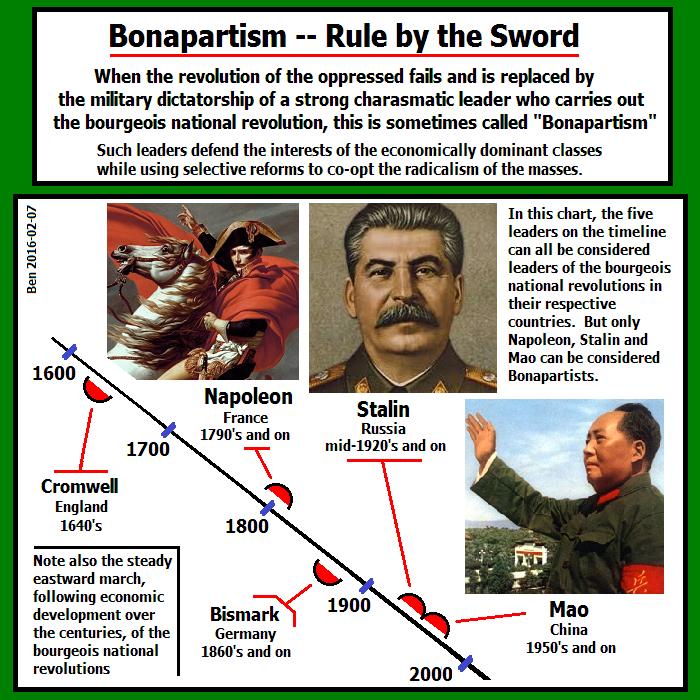
(Click image above to view full-size) | ||
The overthrow of capitalism will not take as long as the overthrow of feudalism. Things move faster now that we are all beginning to get connected. My guess is a century--or less. But it is helpful to understand, at least in broad outline, what is to come, and where we stand in this process--because when we can appreciate what is emerging--we can better understand everything else--including the development of culture, technology, economics and politics. | 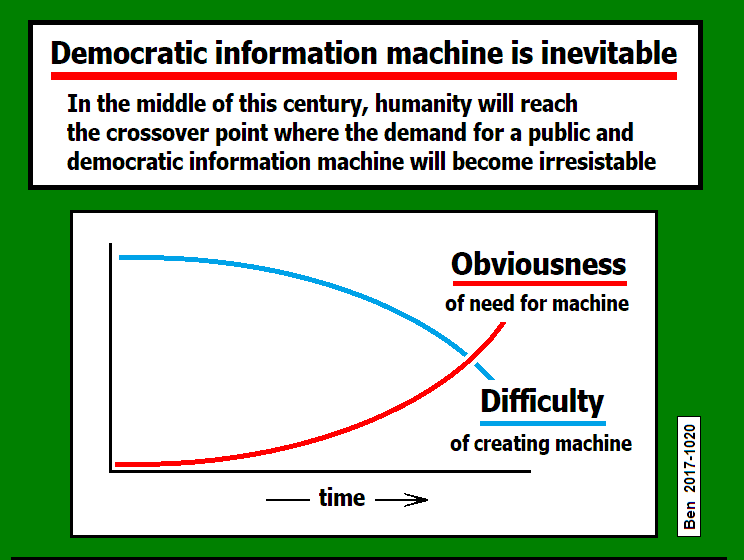
Chart above is from: Spartacus Ex Machina (2017) (Click image to see the section of chart not shown here) | ||
What we can do now--is to work--with dedication and integrity--to develop the clear and powerful ideas that (1) will allow us to understand our situation and (2) can guide our efforts. The deeper the clarity of these ideas--and more widespread they are--the more unnecessary pain can be avoided. Whatever is to come will need a foundation of solid ideas--with the ability to stand up to intense and ceaseless public challenge and debate--so that activists will be able to understand what they are struggling for, and are not so easily manipulated and swindled. Marx lived too far in the past to do more than give us the barest outline of future society. Lenin was, of necessity, focused on the survival of the 1917 revolution, and died too soon. We do not have these excuses. We need to be active, of course, in the here and now, but we also need liberation from the straightjacket of authoritative voices, like Proyect, which insist that we look forward no further than the end of our nose. In addition to the countless struggles for partial demands, there is also a struggle to understand, in more than a shallow way, the nature of the world we are working to create--and to popularize this understanding. Until we have a movement that can lift its eyes beyond partial demands--and beyond the recruitment of warm, living bodies--we will never have anything more than food chains and cargo cults. | (Maybe on November 17, 2011) via Kasama Project 
(Click images to view full-size) 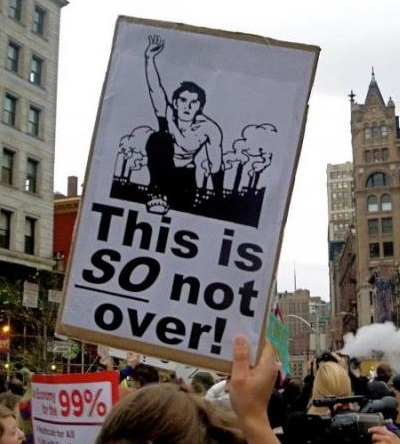
| ||
Mason continues:
We have the right to a life free of exploitation, war, racist attacks, artificial scarcity and ignorance. We have the right to work to build a world of peace, abundance and genuine community for everyone. And we have the right, and the responsibility, to dream about and speak out about these things. But keep in mind that, when we do these things--we can expect our fair share of abuse. | |||
Bastani's article was popular because it represented an attempt to confront (in a more direct way than we usually get from the groups based on food chains and cargo cults) this central contradiction of our time: the contradiction between:
Proyect, the "unrepentent Marxist", seems to have lost sight of this. He sees the sillyness in Bastani's article and calls it "a compendium of futurist wet-dreams" and so forth--but sees nothing else. Proyect also has nothing good to say about Paul Mason's more grounded work--other than to note that it is "the same kind of futuristic scenarios" that he advises us to "avoid like the plague". But the contradiction that Bastani and Mason talk about is the same contradiction that Marx talked about, and it is intensifying. It appears to me that Proyect's problem is not really with either Bastani or Mason. Someone needs to say it: Proyect's problem is with Marx. What Proyect (and much of what remains of the organized and supposedly "marxist" left) cannot see is that the central truth of our time is emerging (even if, initially, in incomplete and one-sided form) and nothing can stop it.
Everyone needs to know that the next leap
| 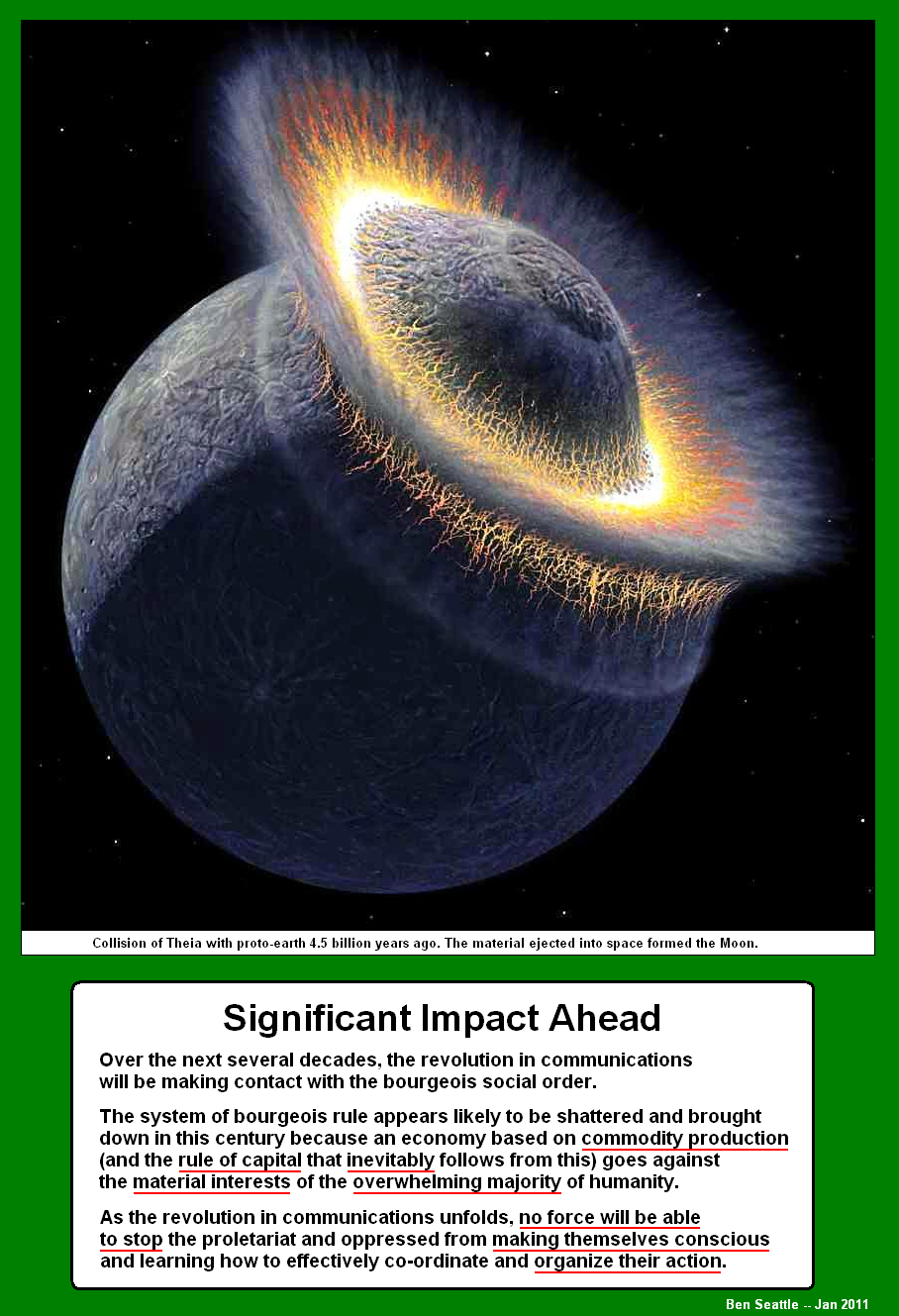
Click image to view full-size 
Proyect's rant against "utopian thinking" sounds to me like "get off of my lawn" or (see above) a tirade by Abe Simpson | ||
Today, nearly all purposeful human activity must be organized for the purpose of making money, selling a product or service to the market, paying wage slaves to do what they are told, and upholding all of the customs, laws, institutions and thinking that are part of modern bourgeois society. The result is that money rules, we are kept ignorant and fighting one another, and our dreams (and parts of ourselves) are sold to us one tiny drop at a time. The greater the potential abundance that swims before our eyes when we think of the limitless possibilities of robot assistants (ie: robots that respond to our will, robots that do our work, robots that generally extend the boundaries of our ability to be human) the greater the contrast with our bleak present and bleaker future. This growing potential abundance is held in check, is constrained, contained and enclosed like air in a large soap bubble -- except that the amount of air is constantly increasing. The bubble cannot last forever. It is bound to burst. Between our dreams and our bleak present lies a chasm full of hunger, pain, misery and death. Capital is like a cancer. It must grow or die. It grows so that it may rule. It rules so that it may grow. Until its doom. The division of society into capitalists, small business owners and wage slaves will be gone forever -- just like the days in which society was divided into kings, knights and serfs are gone forever. The principle here is simple. Work that is done by wage slaves, is work that is done by coercion, by the threat and fear of homelessness, hunger and the destruction of families. Compulsory work bears the same relationship to work freely given (ie: voluntary, unpaid labor) as prostitution does to free love. We have been conditioned to accept as "eternal" the fact that more than 99% of the organized work on this planet is slave labor (ie: performed by wage slaves) at the command of the greedy corporations who make all the rules of society and who then throw a blanket of ignorance over the whole thing and condition us to believe it is "democracy". And guess what? None of this is really eternal--any more than the divine right of kings was eternal. This whole system by which capital rules--is likely to be gone before the end of this century. Put that on your calendar. | 
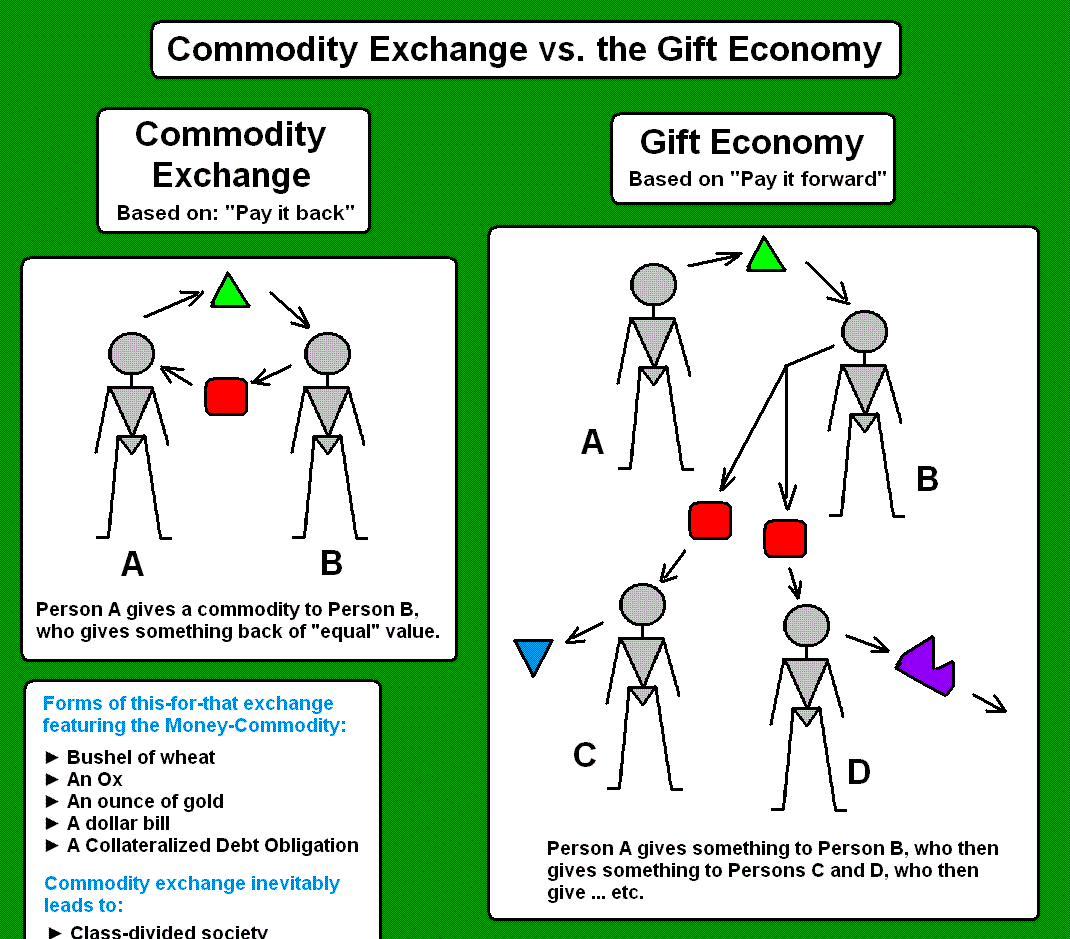
(Click charts to view full-size) 
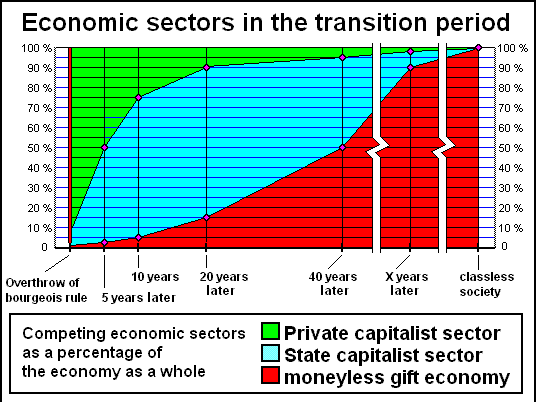
|
-- Chapter 5 --
|
The biggest question being asked and debated, in a thousand ways on a thousand forums in leftist circles, is this one:
In other words: should our efforts be centered inside or outside the Democratic Party ? |

I know this is possible because I got an email from a Nigerian prince who carefully explained it all |
||
We can see reflections of this debate everywhere. I have seen it in recent posts by Louis Proyect, who argues eloquently against placing our hopes in the Democratic Party:
|

|
||
Both naive activists and (behind them) seasoned hacks are saturating discussion channels with illusions about a "historic opportunity" to "move the Democratic Party to the left". It is helpful to keep in mind that the Democratic Party was engineered, under FDR's "New Deal", in the depths of the 1930's depression, to make it appear that--with sufficient effort--it could be moved to the left. The Democratic Party was engineered in this way so that it could act like a black hole and absorb independent movements and safely liquidate revolutionary energy. That is why it has long been said that the Democratic Party is the graveyard of mass movements; it is the place where they go to die. So attempting to "move the Democratic Party to the left" is essentially a form of political suicide from the perspective of activists who want to work for fundamental change--and that is why all the flunkies of our ruling class urge them onto this path. They will give us progressives like Bernie Sanders and radical and exciting personalities like AOC and the "squad" and so on and so forth to make the Democratic Party look like it is real. Make no mistake, it is good to have shit-kickers like Bernie, AOC and the squad around--as long as we keep in mind that our ruling class makes personalities like this possible, and gives them publicity and the limelight--only because activists are rejecting the Democratic Party. So if we want more personalities like this--we need to avoid this black hole--and continue to reject the Democratic Party. | 
( Click on images to see full-size ) 
| ||
At the same time, we also need to remember that even a full-fledged social democratic party with formal independence--would still be on a leash that was firmly held by our ruling class. The main difference is that it would be a longer leash. The history of social democracy in Europe and elsewhere shows us that a social democratic party could emerge from a split in the Democratic Party--but this would only mean that instead of having two parties (Republican and Democratic) controlled by our ruling class, we would have three parties (Republican, mainstream and social democratic) controlled by our ruling class. This would certainly represent a huge improvement over what we have now--but would not represent genuine independence--as the new party would still be dependent on the layer of institutions and the social strata of trade union bureaucrats, non-profit heads and the other typical misleaders that are part of the bourgeois political ecosystem. I have written about this at length elsewhere. So the debate on inside/outside the Democratic Party boils down to wearing a short leash or a long leash. Left unsaid is that we have the ability to work for what we really need--an independent movement--and organization--that refuses to wear a leash at all. Keep in mind what I said earlier: when you are told that you must make a choice between two options--many times that is a lie. |

( Click on images to see full-size ) 
|
||
-- Chapter 6 --
|
In 1977 a trotskyist group, the "International Socialist Organization" (ISO) was founded during the consolidation phase of the movement of the 1960's and 70's. By 2009, it was virtually unchallenged in the US left. Now, after repeated and predictable crises, it has disintegrated. Meanwhile, the main trotskyist rival of the ISO, the "Committee for a Workers International" (CWI) which was probably the largest international grouping of trotskyist organizations since the second world war (claiming to have sections in 35 to 40 countries, some of them with thousands of members) is breaking apart in a bitter faction fight that was kept secret. The US section of the CWI is a group called "Socialist Alternative" (which I have discussed earlier in this essay) that is best known for getting one of its leaders, Kshama Sawant, elected to the Seattle city council, and for promoting Democratic Party candidate Bernie Sanders. I spent a little time carefully reading the description of these "tragic" events in the blogs of Louis Proyect and John Reimann (a respected trade union activist from Oakland who was also deeply involved with the CWI for several years) and an article by Nathaniel Flakin from an intact (so far) trotskyist group in the US calling itself "Left Voice". All of these posts provided history and some insight. |
• John Molyneux, Hal Draper and the organizational question (Louis Proyect/Unrepentent Marxist, July 3, 2019) • Another crisis in socialist movement: The split in the CWI (John Reimann/Oakland Socialist, August 11, 2019) • The Split in the CWI: Lessons for Trotskyists (Nathaniel Flakin/Left Voice, August 9, 2019) 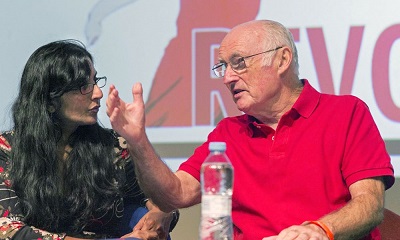
Kshama Sawant and Peter Taaffe, before the split 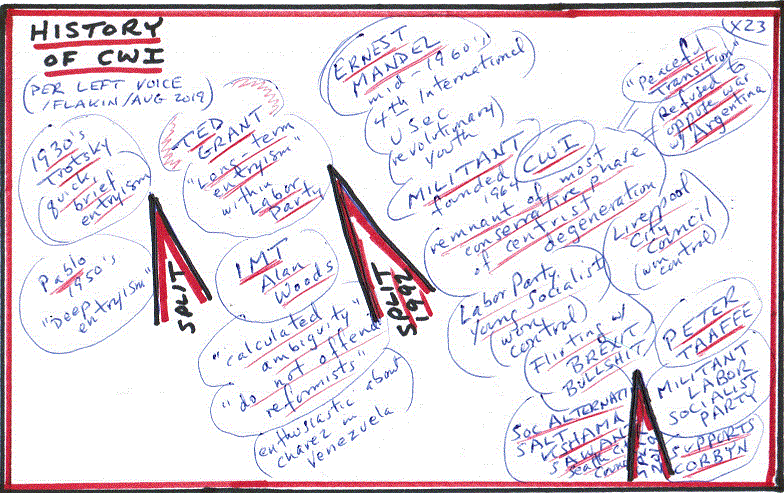
(above) crude notes I made from Flakin's Left Voice article | ||
These groups all follow a similar model: they are recruitment machines. All principles are subordinated to preserving and growing the organization. Generally, a central circle (or honcho) makes the decisions--which are then rubber stamped by the membership (after a show of supposed democratic discussion and decision-making). Those who refuse to rubber-stamp are shown the door. The decisions by the central circle/honcho mainly revolve around how best to recruit warm living bodies to sustain the organization in the cutthroat dog-eat-dog competition with rival (and similar) groups. The "line" (and the illusions) that the group promotes are tailored for:
Speaking strictly as an outsider--I will say that groups like this are best known for their manipulation and treachery. That, at least, is the opinion of myself--and countless others. I will spare readers any stories--other than the concise description I heard from one ex-supporter: "The ISO is a disease". Of course the group I was part of was largely better than this (in my mind) but (see below) had its own problems. I should probably make a quick note regarding a potential material basis for some of the notorious behavior in this milieu. Groups like this generally have a paid staff, or bureaucracy, which runs the show and is supported by dues and other contributions. And there can be a tendency for the central leadership to subordinate the organization to its own interests. I think this often plays some role, but we should not overlook far more important factors--such as the lack of political transparency that makes all this abuse possible in the first place. |

Click to view full-size 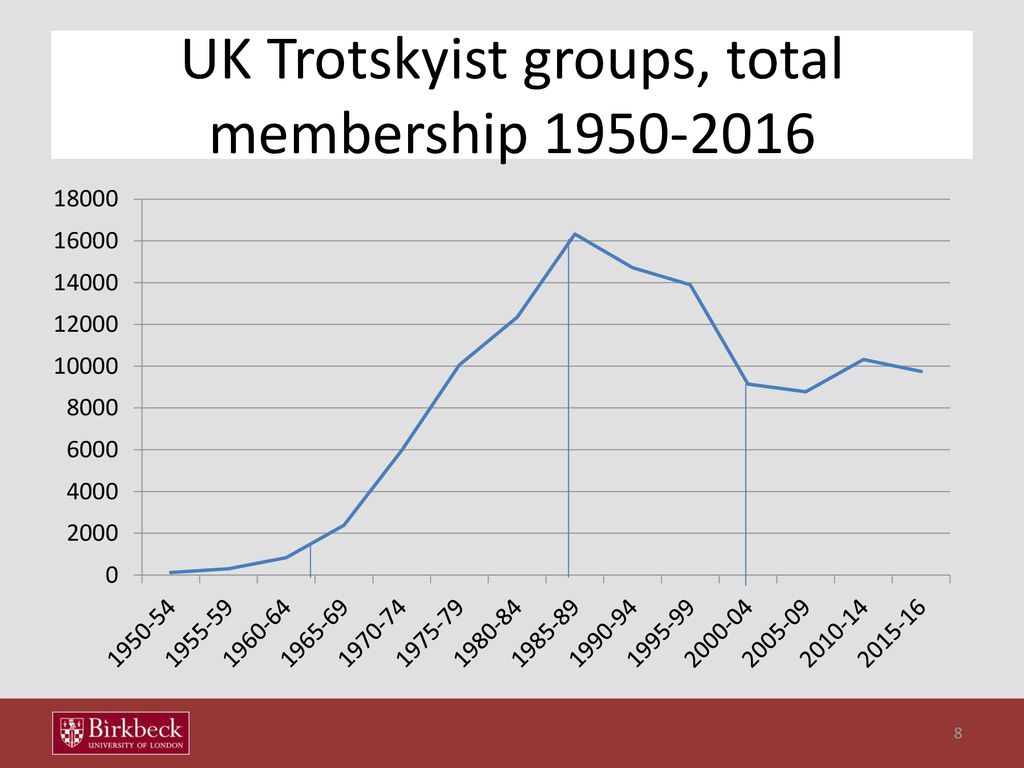
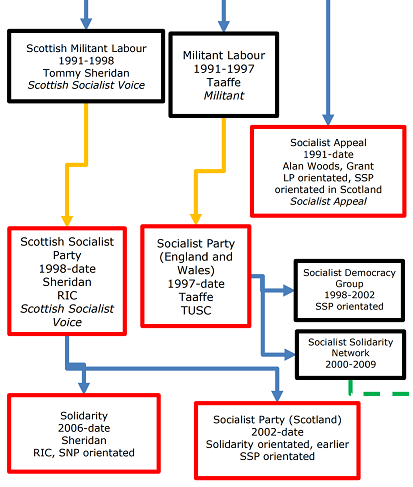
Click above for zoomable (ie: control key + mouse wheel) family tree of UK trotskyism |
||
The Left Voice gave a good summation of the split in the CWI:
| In some cases I have no clue who created this stuff, the story behind it, or how much of it is bullshit. Ben -- Oct 11 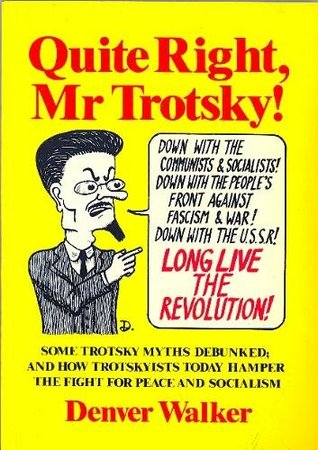
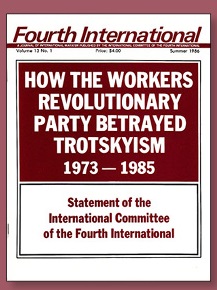
| ||
Louis Proyect's post gives insight into the the fetish for secrecy that dooms projects like the ISO and CWI. Independent worker organizations in capitalist society have a legitimate need, of course, to maintain a "security culture" to protect themselves from harassment or worse at the hands of the state. But the secrecy practiced by most of the so-called "marxist" or "socialist" organizations was of a completely different character--and was mainly used to hide dysfunction and the kinds of manipulation that were routinely practiced. Here is Proyect (I have added boldface):
Both the ISO in the US, and its sister organization in Britain (the SWP), experienced similar and parallel crises as a result of rapes that were committed or covered up by top honchos. It should be obvious that a lack of transparency and accountability makes inevitable these kinds of problems--which resulted in wholesale defection from both these organizations and precipitated or contributed to their collapse. | 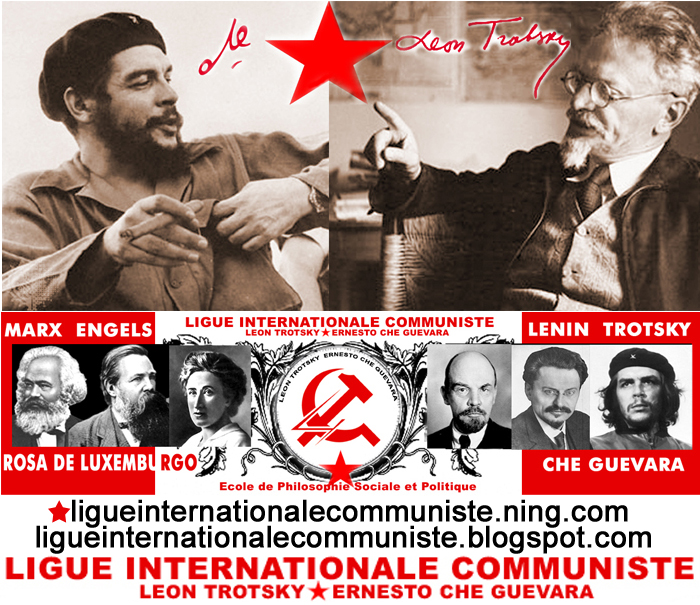 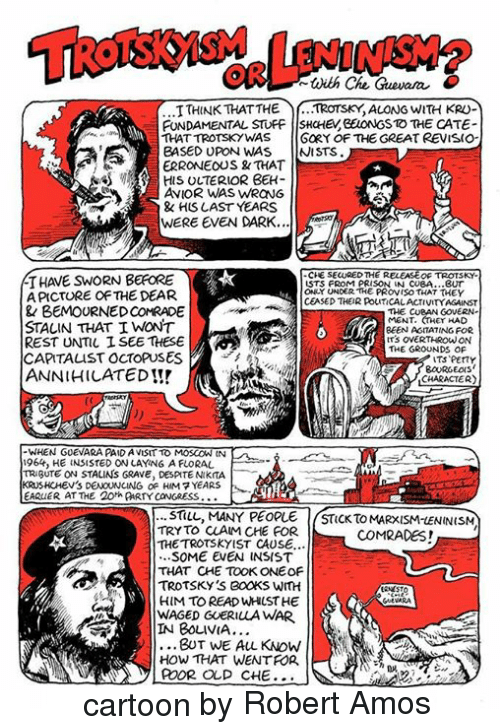
| ||
I had my own experience, in 1992, with numbered xerox copies of a modern analysis of the Kronstadt rebellion and the crisis in Lenin's party in 1920. Why did this analysis of events that took place 72 years earlier (long before any of us were born) need to be kept secret? The answer is ... because my organization (ie: the Marxist-Leninist Party, USA) failed to appreciate the need for political transparency. The idea was that the organization keeps most information bottled up--and only releases information of any kind when it serves a specific purpose. There were historical reasons for these kinds of practices. But in the information age, where the internet is at everyone's fingertips--we can see that this is deeply fucked up. Things should be the opposite. Information should be kept secret only when there is a legitimate reason to do so. Documents aimed at an analysis of events need to be publicly accessible -- rather than stage-managed in secret behind the scenes until the final product is ready to be rolled out with maximum fanfare to the waiting world. | 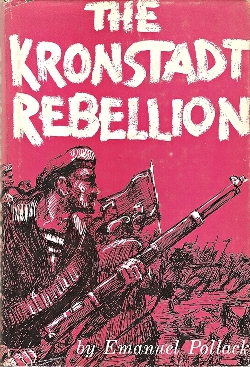
| ||
The real impact of the fetishization of secrecy is:
What happens next is:
And it gets worse. Because the organization conceals from itself its dysfunction:
Instead:
In this way, organizations to which comrades
As they say in the recovery movement: denial is not a river in Egypt. And the elephant in the room does not go away by itself when everyone pretends it does not exist. | 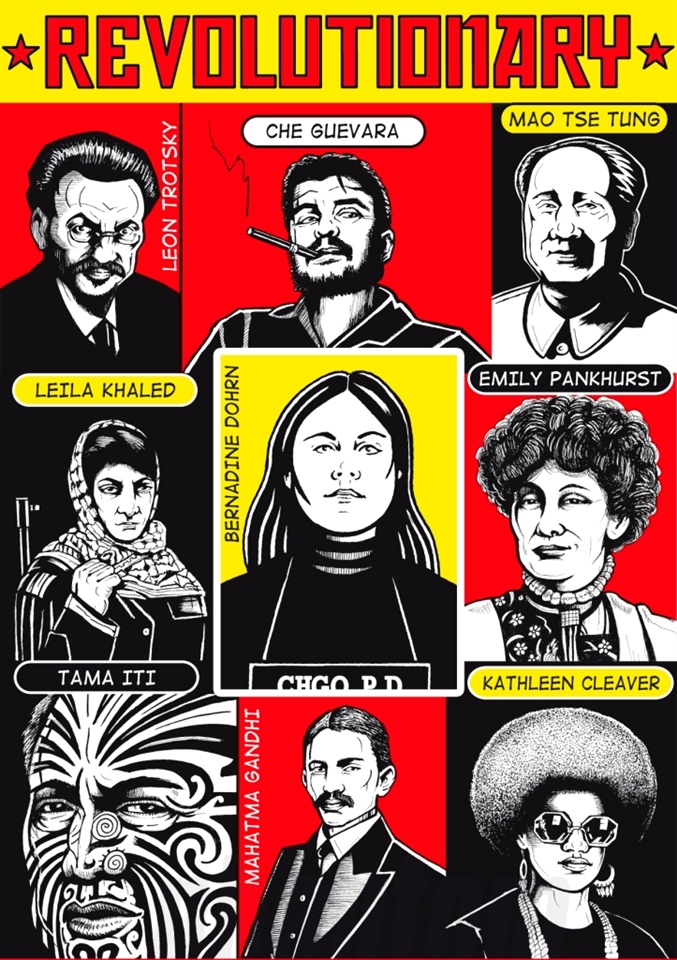


| ||
My organization (the MLP) collapsed in 1993 because the theoretical crisis of our movement affected our basic orientation (ie: "what do we need to be doing?") and the central body of the organization kept its disagreements over this bottled up and hidden from members and supporters until--inevitably--it exploded in a fight that became too bitter to be resolved. It was my experience with this, as well as other manifestations of obsessive secrecy (I had ten years earlier allowed myself to be pressured to break off counselling sessions with my estranged father because of concerns that I might leak organizational information) in the context of the imminent outbreak of the revolution in communications (ie: this was the period in which the first web browser, Mosaic, hit the news) that led me to the unshakable conclusion that the working class needs an independent organization--and a culture--that is committed to political transparency. Without transparency--we end up with nothing. Interestingly enough, the 1917 revolution that created Soviet Russia was suffocated in the 1920's due to a lack of oxygen. That is a story I have written about at length elsewhere. But it underlines the necessity of building a movement based on political transparency. | 
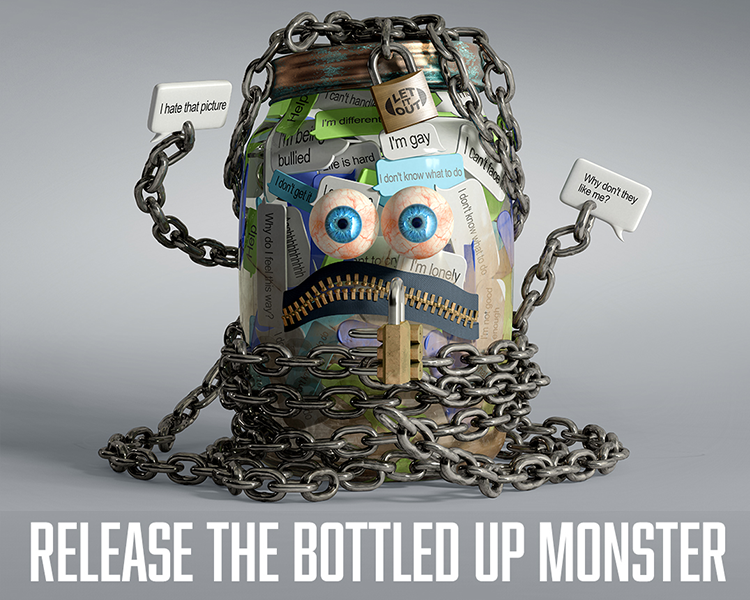
| ||
When I was on email discussion lists with Proyect, in the late 1990's, I learned from him that the organizational norms and (so-called) "democratic centralism" practiced by my own organization (which by that time had collapsed) had been based on principles promoted by Zinoviev after Lenin had a stroke and was incapacitated. More than this, Proyect used the phrase "cemocratic dentralism" to emphasize how ass-backward was the kind of "democratic centralism" being practiced by small groups like my own. I concluded that this word usage by Proyect was clever and, later, used the phrase "cemocratic dentralism" myself on many occasions to make the identical point. I will note that it was kind of weird for me (ie: someone from a Stalinist background) to learn from Proyect (ie: someone from a trot background) the real origin of the most basic practices of the organization to which I had devoted my life. (For readers unfamiliar with the bad blood within the left, I will explain that trots and stalinists were notorious for not getting along--both before and after Stalin had Trotsky murdered in Mexico in 1940.) The guiding organizational principle, for organizations in this century, in the information age, will not be called "democratic centralism". It will be something closer to "democratic communication", meaning a set of principles where members and supporters have the unrestricted right to publicly communicate to one another and self-organize, including for the purpose of influencing or correcting the course of the organization if they believe it has gone (or is going) off-track. | 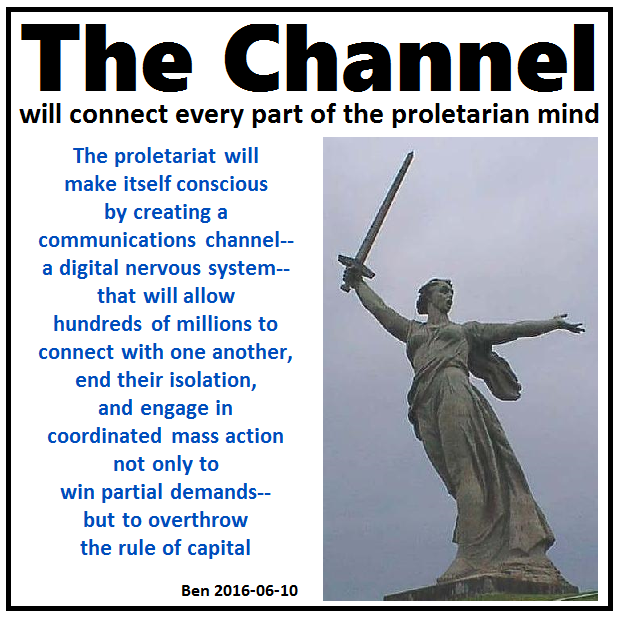

| ||
My own description of the trajectory and inevitable disintegration of the ISO is based on an analogy from a branch of physics known as "orbital mechanics". Planets like Saturn have rings because, when an orbiting moon comes too close to the planet, tidal forces tear the moon apart as the side of the moon that is closest to the planet enters a faster orbit than the side of the moon that is further away and in a slower orbit. (Physics dictates that orbital speed depends only on distance, and the closer you are the faster your orbit.) The distance from the planet at which a moon disintegrates is known as the Roche limit. When a moon is further away than the Roche limit, these differential tidal forces still exist and may deform the shape of the moon--but the internal gravity of the moon is greater than these differential tidal forces. In other words, the ISO came too close to the Democratic Party, and was torn apart by the resulting tidal forces. This is how we can understand the orbital dynamics of the supposedly "socialist" groups in orbit around the Democratic Party. At a safe distance, outside the Roche limit, they are still in orbit, but their "internal gravity" (ie: the "sectarian glue" of their special religious beliefs, totems and taboos) is powerful enough to hold the group together. But as they approach the Roche limit, the reformist culture, traditions and beliefs around the Democratic Party become more powerful and overwhelm their internal gravity. This makes perfect sense if you think about it. A young, relatively naive activist wearing a cool jersey printed with Lenin's name on it is likely to feel more comfortable with a change of clothing the more he moves in Democratic Party circles. Outside roche limit = predominance of cargo cults Inside roche limit = predominance of food chain politics What this means is that the ISO was successful, in the current political climate, in recruiting lots of young people who were attracted to the idea of progressive change. But these younger activists resented the "cemocratic dentralism" (ie: manipulative mindfucking control) that the ISO leadership exerted over members and supporters--and essentially rebelled--so that they could act on their real inclinations--and follow their hearts (and the biggest political illusion of the moment) and jump whole hog into the efforts of Bernie Sanders and the DSA to "move the Democratic Party to the left". And this kind of thing is inevitable when an organization is built on a foundation of sand. | 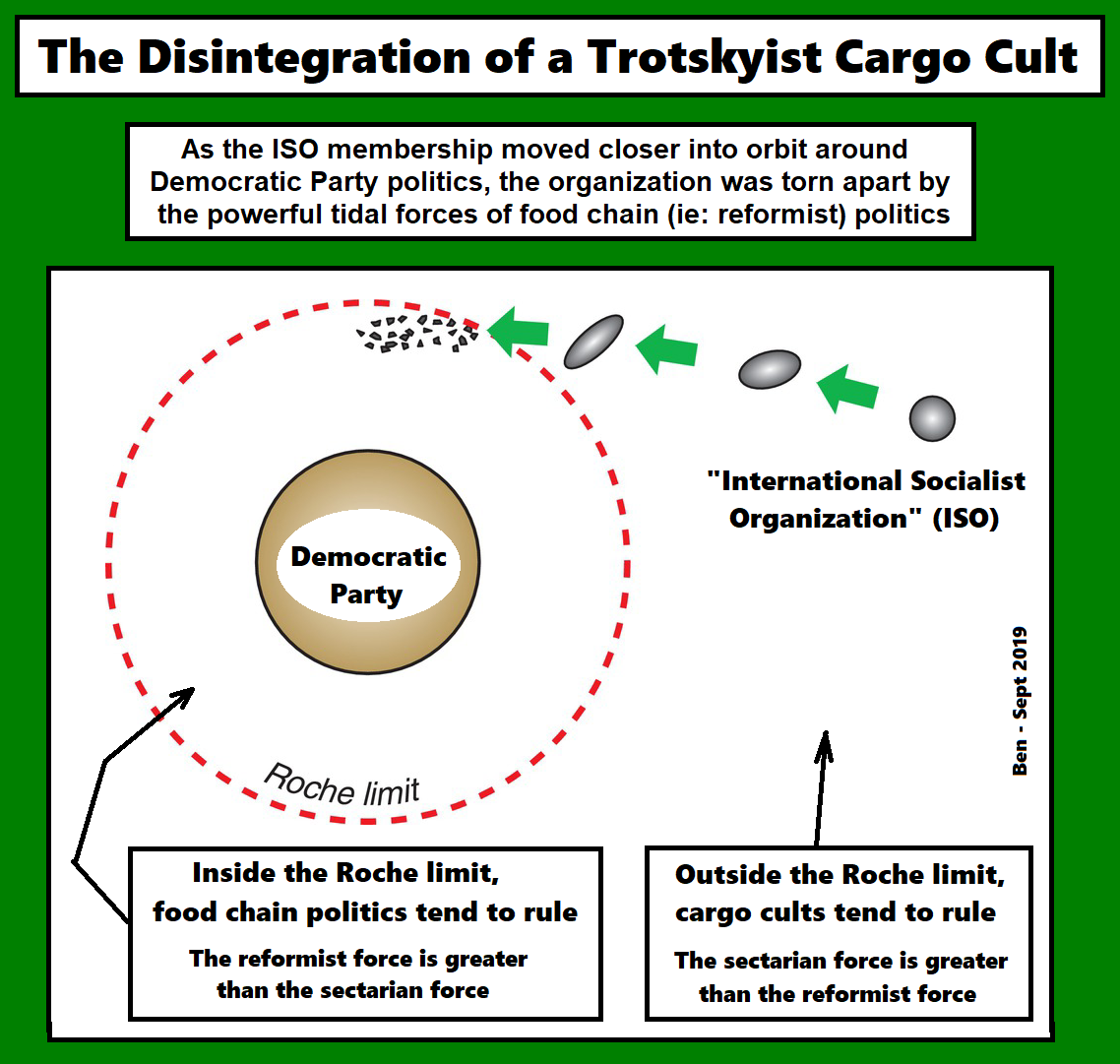 ( Click to see full-size ) 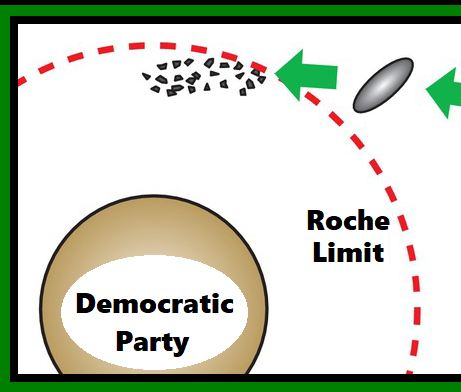
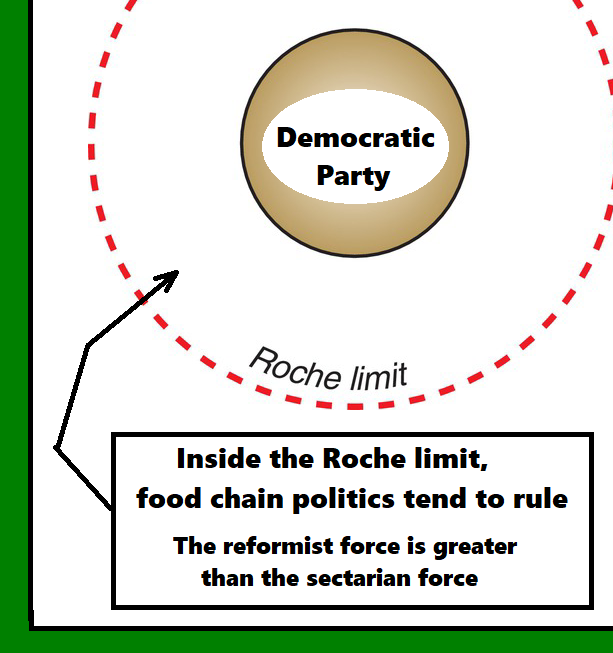
| ||
"Left Voice" draws the following conclusion from this sinking ship of fools:
Sure. Strain every muscle to lift the heavy rock--again. Hold it exactly over your foot--again. Now drop it. Things will be different this time. The title of their post is "Lessons for Trotskyists". So activists like me, who are not trots, are not even in their intended audience. Why? Because I have seen too much. I know too much. I am not recruitable into this kind of insanity. I am only interested in doing something that is real. The "Left Voice" post is addressed to the activists who have been part of this shitstorm and haven't learned anything from it. It reminds me of some of the people who are involved in MLM (multi-level marketing) projects. Some go from one project to another--like addicts looking for their next fix. John Reimann's conclusion sounds better. He says we should be:
Doesn't this sound wonderful ? I need to let readers in on a little secret: a lot of what you hear from leftists is total bullshit, and we need to train our minds to look beneath the superficial appearance of what we see. Is John sincere or does he just want to recruit warm bodies for his next project? I would probably be less skeptical if John would accept my facebook friend request. But the idea of a genuine network, comradely discussion, open disagreement and a genuine dialog is a good one. More than that--it is necessary. Nothing will go forward until we make this happen. I will have more to say on this in the next chapter. | 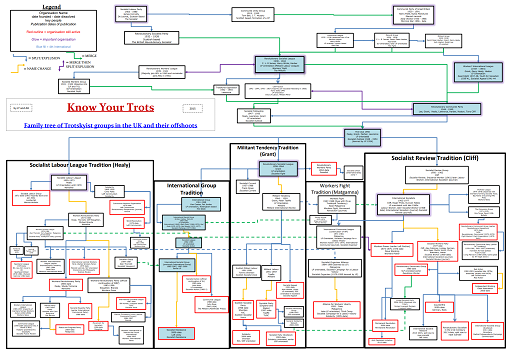
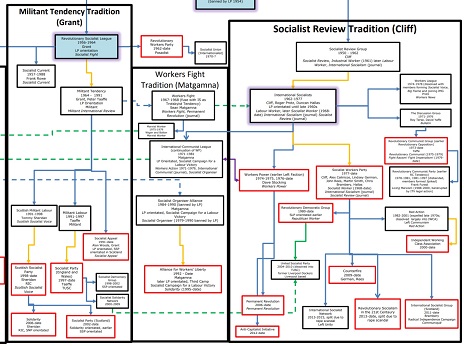
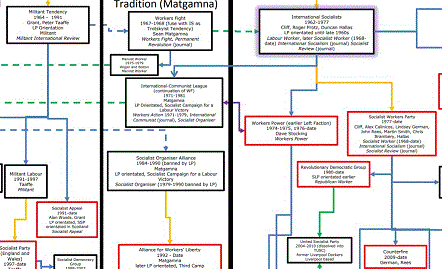

|
-- Chapter 7 --
|
When I wrote the title of this essay, I intended to center it around this chapter. I also intended to keep the length of this essay below 3 thousand words (it is now about 20 thousand). When I write, at a certain point all I can do is channel ideas that have a life of their own. But now I am now out of steam and out of time. Maybe that is good. I will keep the rest of this essay short. | 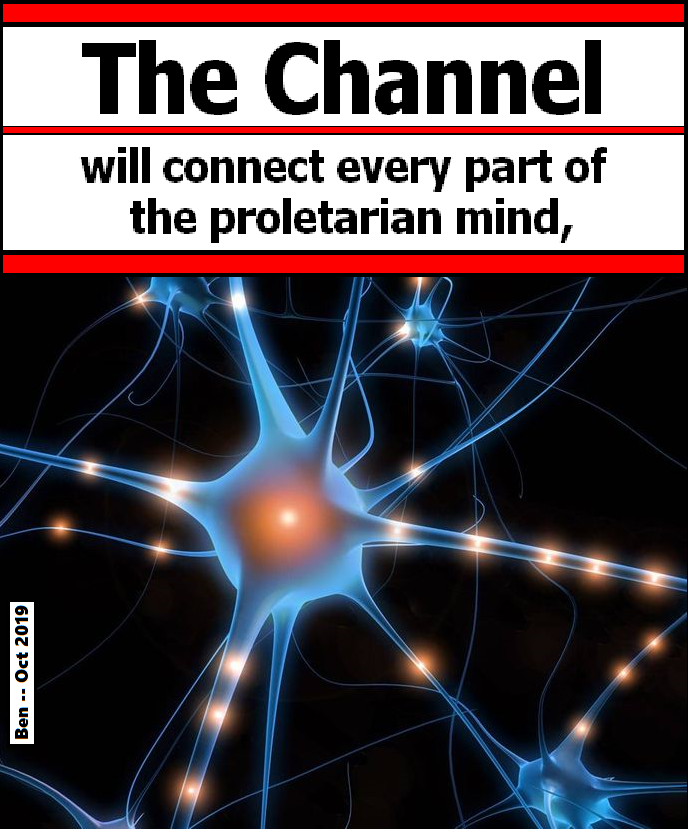
| |||
The working class will not create the class independent organization it needs by attempting to move the Democratic Party to the left. Nor will it create this organization by supporting some trot fantasy. Nor will the organization we need emerge from the creation of a social democratic party that has formal independence--but is on a real leash held by institutions and social strata that are not independent. We need to be clear about these things. | 
| |||
The proletariat will win when it (and activists who are tired of getting kicked in the face) recognize that we live in the information age, and take action on that basis. 
Aren't you getting tired of getting kicked in the face? The clear and certain path forward is to create a democratic social media platform based on democratic algorithms If one percent of the energy that was being poured into futile and hopeless attempts to "move the Democratic Party to the left" was invested instead in the creation of a democratic social media platform, powered by democratic algorithms that served the needs of our movement for political transparency--that would be a good thing. The existing platforms (facebook, reddit, wordpress, twitter, etc) are shit. We need something that is designed to serve a democratic movement--rather than being designed to make a pile of money for venture capitalists with algorithms that maximize the time we are "engaged". We need to be able to find shit. We need to be able to filter shit. We need to be able to find one another. We need to be able to filter out time wasting idiots. We need algorithms that work for us--not against us.
I do not claim that such a project would lead to the overthrow of the rule of capital tomorrow.
The independent organization the working class needs will emerge from the work to create such a democratic social media platform--and to use it not only to mobilize support for the various struggles for partial demands--but the struggle to understand and popularize our place in the world--as a class--and our historic mission and destiny--as a class--to sweep away the present rulers of our planet just like the kings and queens of yesteryear were swept away. The democratic platform we need will not be created overnight. It will take decades. But it will happen. I have written about this at length in Spartacus Ex Machina (November 2017). |
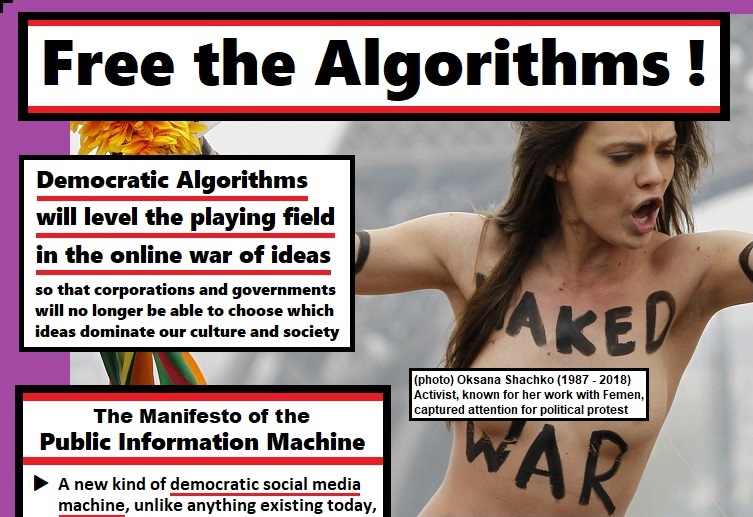
(above) from my video: The Century of Information War (below) Spartacus Ex Machina (Nov 2017) View PDF (or local cache) 
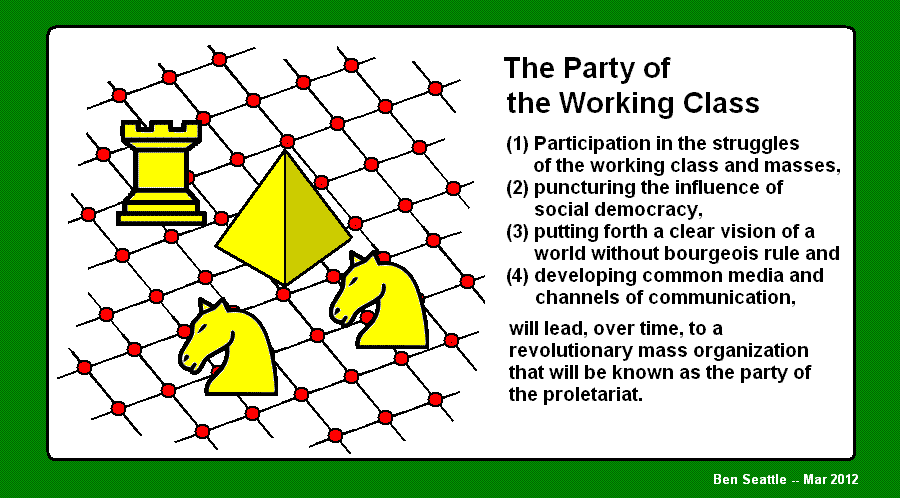
( Click to images to view full-size ) 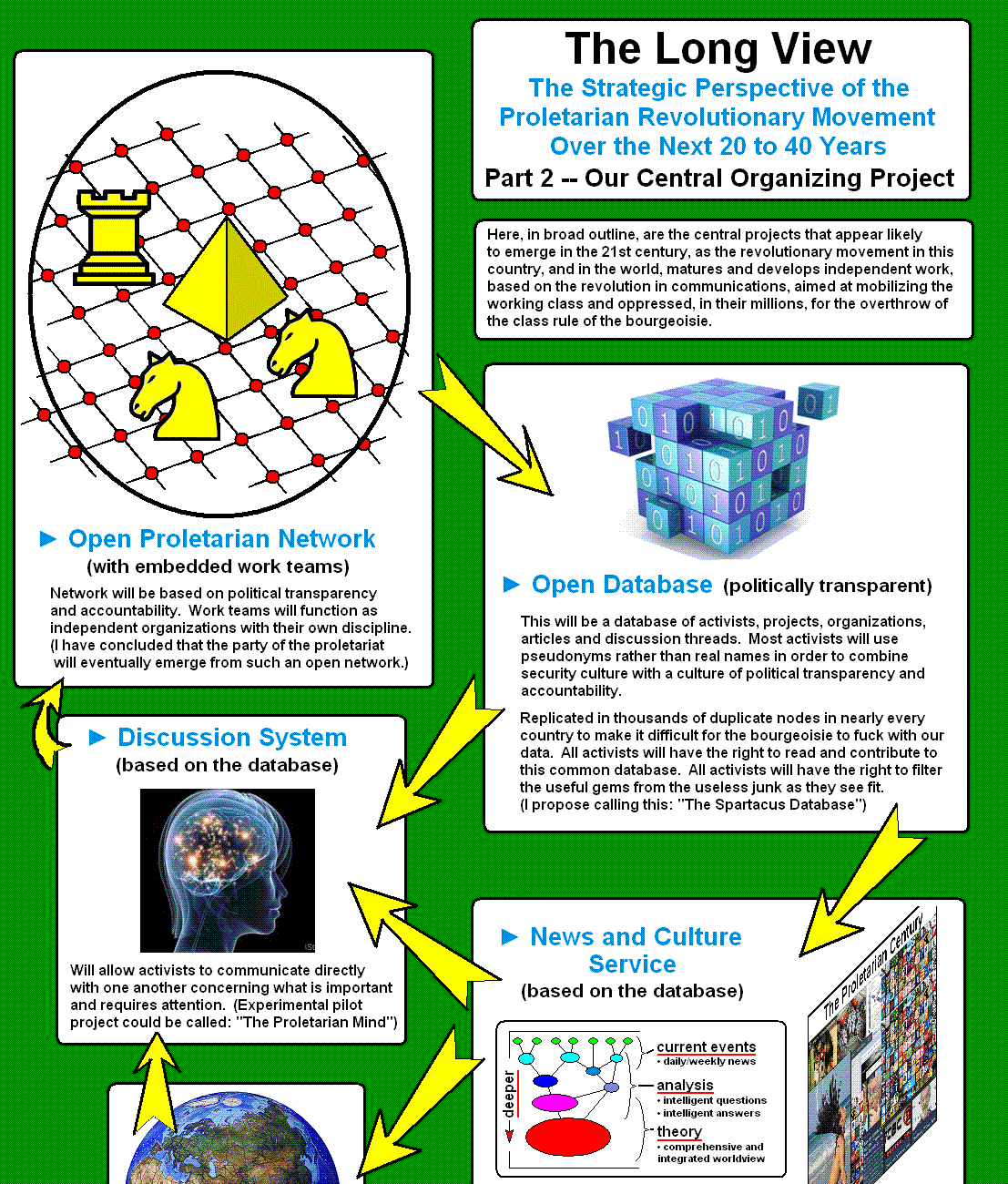
|
|||
For now, I am interested in creating a democratic forum, for activists who want to work to create the class independent organization we need. This is a forum that will need to make it possible for every serious activist to have the right to participate, the right to make their views known on every topic, and the right to either filter out or view the posts (and requests for attention) made by others. I would like to create this forum at communism.org, of which I am the custodian. (I was also the custodian of communism.com but it, along with struggle.net and pix.org, were hijacked by means of identity theft and I may not be able to regain custody of those domains unless I can get free legal assistance.) I will need help to create this forum, which will need to make use of software algorithms that are designed from the ground up to be democratic and transparent and to serve the efforts of activists to place our movement on a principled foundation. As I said, I do need help. I cannot do by myself what needs to be done. I need help from serious people, starting (most likely) simply with discussion of how we can make this happen. The first real step--would likely be to forge a consensus concerning the principles that would need to guide this effort. At the very least, we need an online journal/forum that could in some ways function similar to Counterpunch except that:
If you would like to help, or think you can help--let me hear from you. (After a recent computer crash--I am working on getting my email, wordpress blog, facebook and other channels of communication functional again. As a temporary measure in the meantime--you should be able to connect with me via the reddit at: https://www.reddit.com/r/Marxists_USCA/ ) And, last but not least:
Our democratic forum I am committed to making this domain ( http://communism.org ) available for serious discussion to all activists who want to see a world that is not ruled by capital--and who are willing to back up their dreams with solid work. Any person I have criticized in this essay--or any member (past or present) of any group that claims to be working for the overthrow of the rule of capital--has a right to space on this domain and a democratic right to fight to win visibility for their views by means of being accountable and defending their views in the public arena with words, integrity, and humility. There are, of course, practical matters to work out in order to make this happen. But those are details. Ben Seattle | 
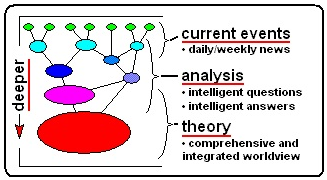
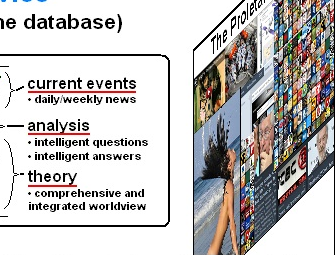
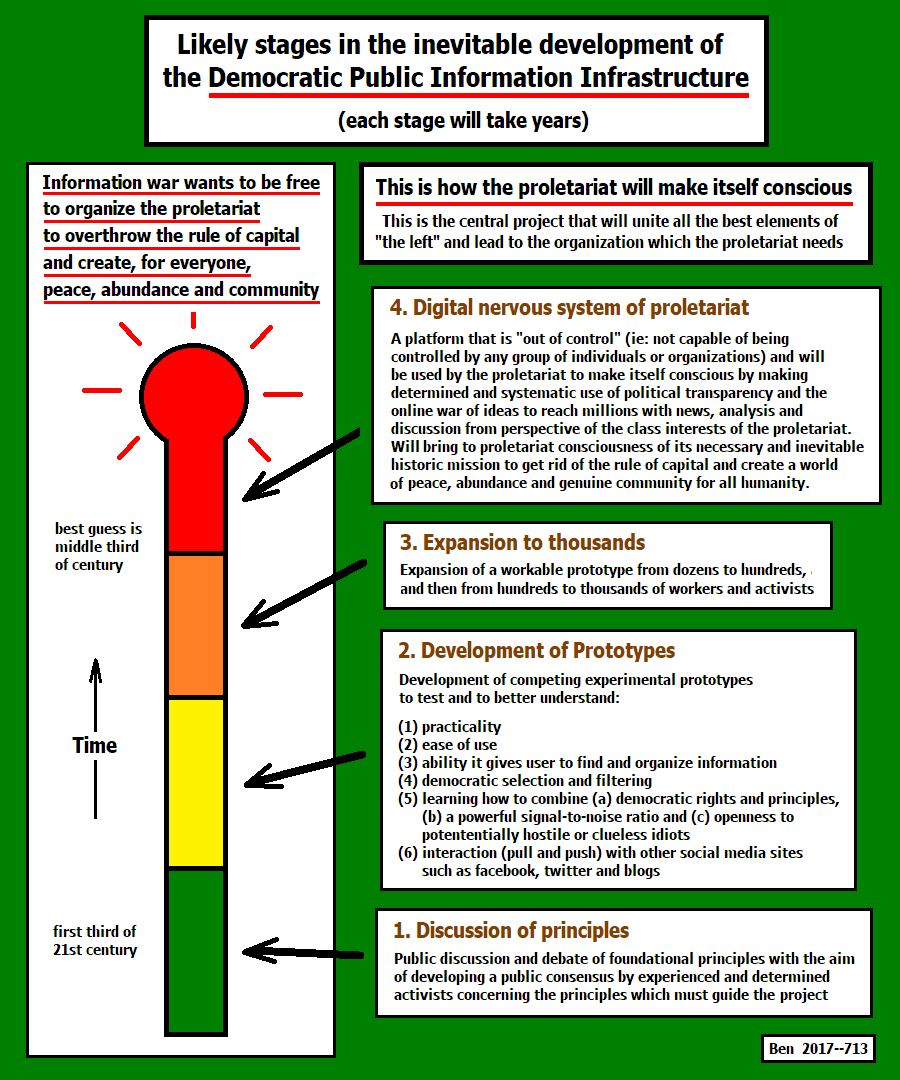
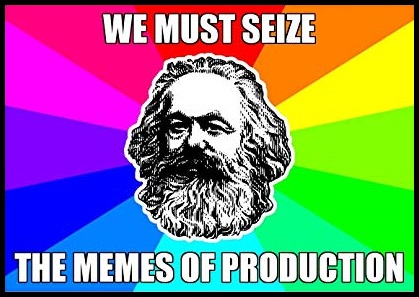
|
|
to regain the domain names that were taken from my possession by means of identity theft: Last time I checked these domain names were being offered for sale (in the case of communism.com, for more than $200,000). belong to the movement I have been the custodian of these names for more than 20 years, and have met all legal requirements and paid fees each year to maintain them. I used the struggle.net domain to archive 20 years of my theoretical work and political writing. This theoretical work and political writing is no longer available and thousands of links all over the internet are now broken. The pix.org domain name was intended to function as a URL shortener for the movement. The hacker/thieves stole communism.com but they failed to steal communism.org and I intend to use communism.org as a platform to organize a public campaign to regain these names for the movement. I will need your help to make this happen. I need free legal assistance. I need someone with a legal background to help me draft:
I need people to write letters and help spread the word. I need activists to help me figure out how to make use of these domains to serve the movement if or when the campaign to take them back is successful. If you would like to help, or think you can help--let me hear from you. After a recent computer crash--I am working on getting my email, wordpress blog, facebook and other channels of communication functional again. As a temporary measure in the meantime--you should be able to connect with me via the reddit at: Ben Seattle, October 23, 2019 |
 to return to table of contents
to return to table of contents

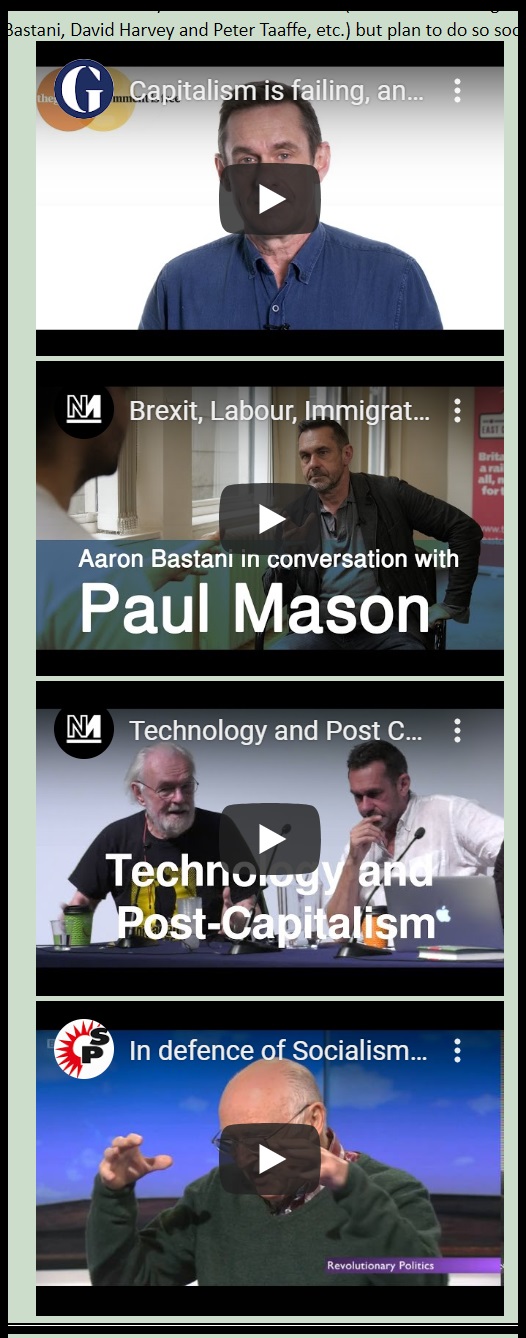
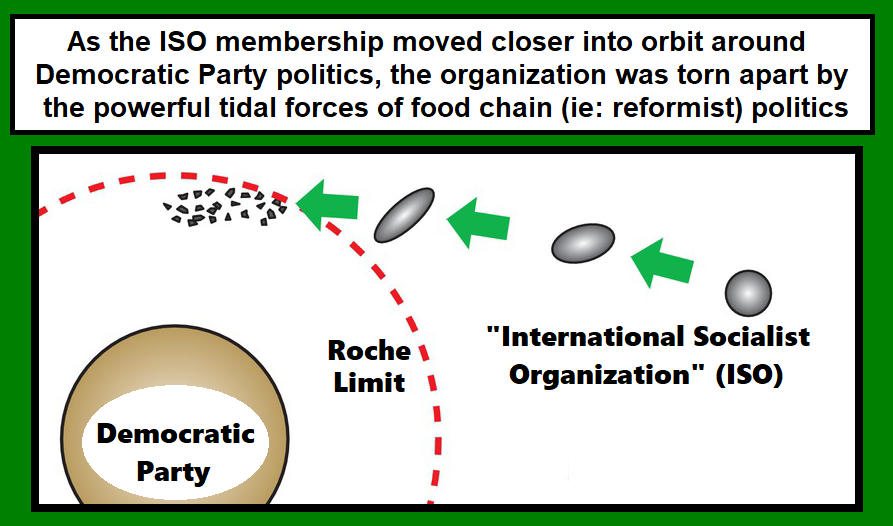
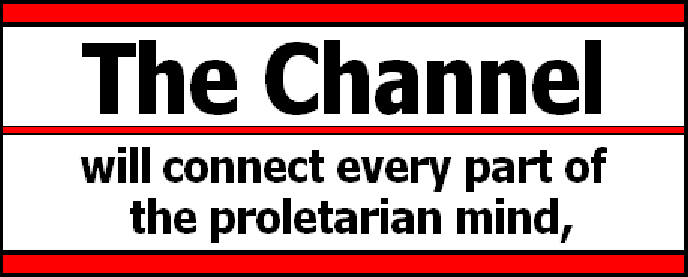
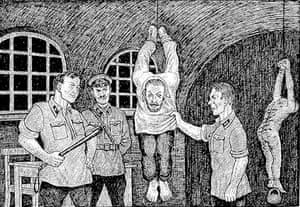
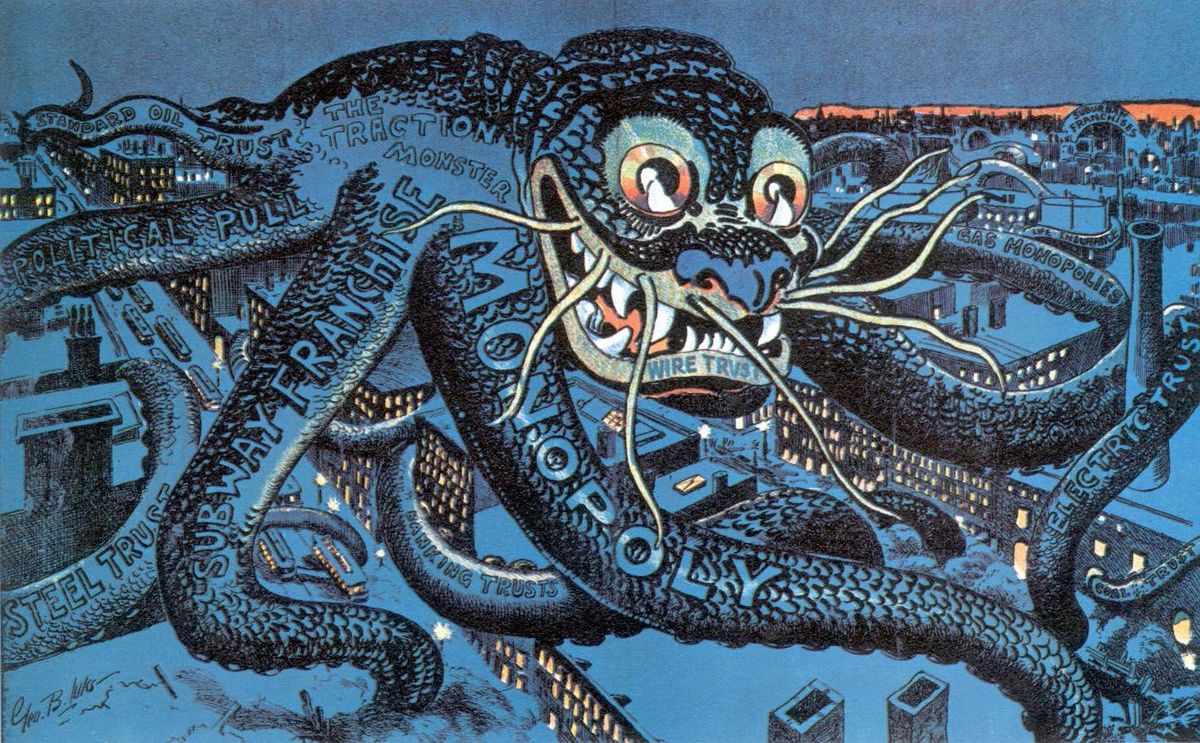 For example, in the 1930's the big auto manufacturers in the U.S. were able to successfully destroy most of the public mass transit systems in the U.S. They did this in order to sell more cars and make more profits, and were able to do this because big money controls Congress and other governmental institutions. The result was suburban sprawl and changes in the way that cities were designed--resulting in hellish commutes and increasing social isolation (not to mention pollution and greenhouse gases).
For example, in the 1930's the big auto manufacturers in the U.S. were able to successfully destroy most of the public mass transit systems in the U.S. They did this in order to sell more cars and make more profits, and were able to do this because big money controls Congress and other governmental institutions. The result was suburban sprawl and changes in the way that cities were designed--resulting in hellish commutes and increasing social isolation (not to mention pollution and greenhouse gases).
 When I worked in an iron foundry, for example, a worker there noticed that I had become too focused on getting something done quickly. He suggested that I calm down a bit, and told me: "the faster we work, the more they will expect from us every day". He was letting me know that I was hurting my own interest (and the interest of other workers) by pushing myself too hard.
When I worked in an iron foundry, for example, a worker there noticed that I had become too focused on getting something done quickly. He suggested that I calm down a bit, and told me: "the faster we work, the more they will expect from us every day". He was letting me know that I was hurting my own interest (and the interest of other workers) by pushing myself too hard.
